pulse
← now and around →
Artist Residency & Worklab @ mur.at and Collective Intelligence Association
01-05 December 2025
Graz (AT)
Session of “School of algorithmic solidarity”
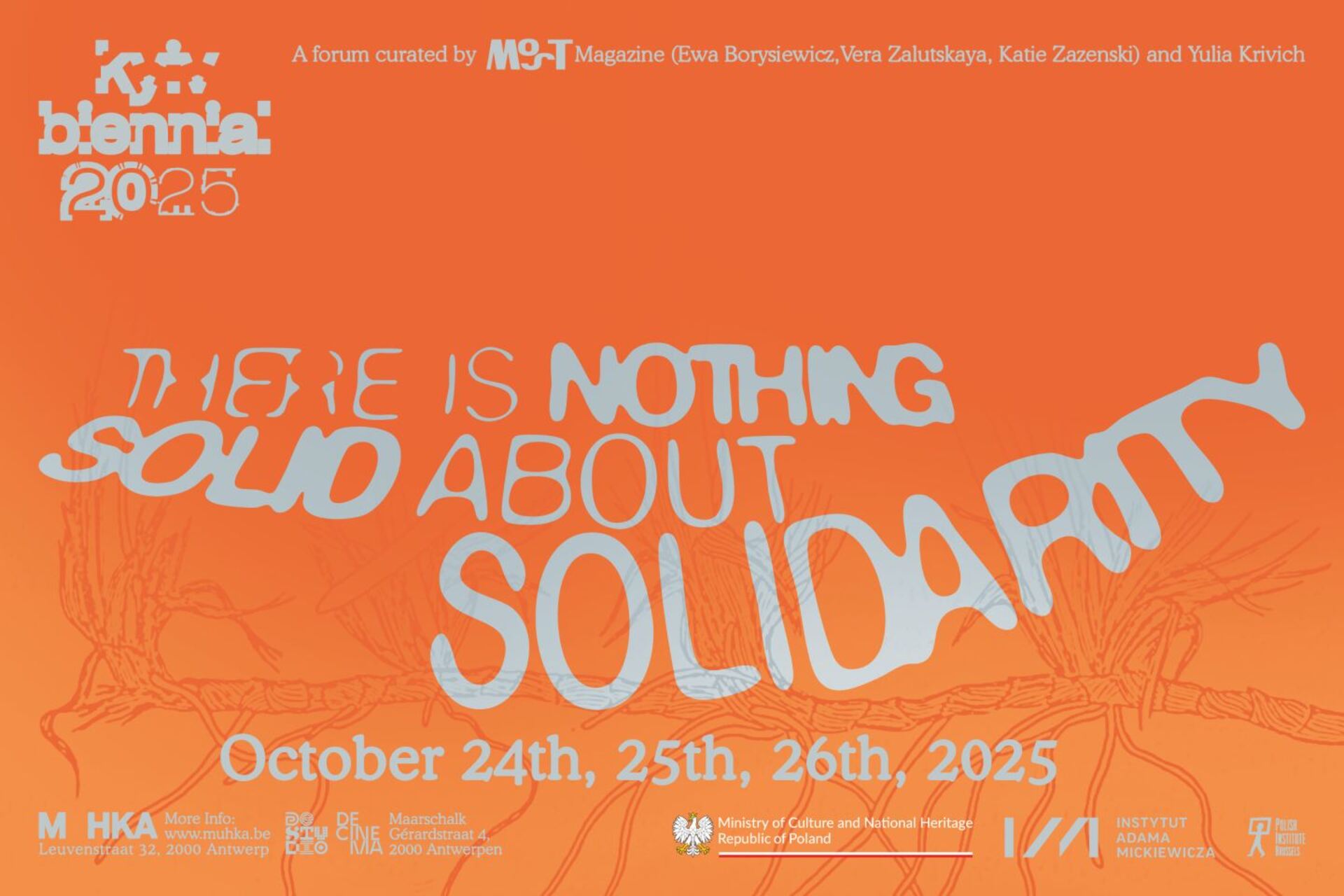
24-26 October 2025
Forum | There Is Nothing Solid About Solidarity | Kyiv Biennale 2025
M HKA, Antwerp (BE)
What does solidarity mean today, in a world increasingly marked by war, migration, and nationalist tendencies? During There Is Nothing Solid About Solidarity, you can experience three days of exhibitions, films, talks, and performances that offer fresh perspectives on connection in a changing world.
A program taking place at Muhka, De Cinema, and De Studio.
There Is Nothing Solid About Solidarity is a satellite program of Kyiv Biennial 2025, developed by the editorial team of MOST magazine (Ewa Borysiewicz, Vera Zalutskaya en Katie Zazenski) together with artist Yulia Krivich.
Through both historic and contemporary frameworks, the programme seeks to further contextualise the idea of Middle East Europe. The notion, which is central to this edition of the Kyiv Biennial, is analyzed through the post-socialist experience – meaning, on the one hand, failed attempts at constructing modern utopias and painful political, ideological and economic transformations; and on the other, the strong cultural exchanges and state-animated “friendships” between, for example, former Socialist Block and Middle East nations in the 20th century.
Today’s reactionary tendencies towards nationalist and fascist movements, together with human rights crises, genocides and wars, expose the frailty of our democratic systems rooted in profit-based alliances. In consideration of this, the programme gathers artists, curators, researchers and collectives who hail from regions widely known as Central and Eastern Europe, the Middle East and Central Asia, offering a space for interrogation of the institutions and frameworks that have led us to this current geopolitical environment and the initiatives that have flourished as a result.
There Is Nothing Solid About Solidarity presents a spectrum of organisational forms – from individual grassroots projects and community centres to research endeavours that examine historical expressions of solidarity, friendship and allyship.
The program includes:
Two days of talks and practice-based presentations
An exhibition in Muhka’s INBOX-space
A curated film screening in collaboration with De Cinema (friday, saturday & sunday)
A musical evening with local artists at De Studio
A series of texts published in MOST magazine
Through these activities, the program aims to be a catalyst for lasting relationships and fresh allicances that when woven together, reveal a rich ecosystem of resistance, care, and vision, and embodies the notion of solidarity as a commitment to risk with and to stand beside.
*Free entrance – a regular museum visit is not included
Programme
Friday 24.10
De Cinema & De Studio, Maarschalk Gérardstraat 4, 2000 Antwerp
18:00 – 18:15 curators’ introduction to the forum and to the video programme. The film programme, You Dream Better in the Dark, will be screened in a loop during designated times across Friday, Saturday, and Sunday.
18:15 – 20:15 What Does a Landscape Remember? Katarina Jazbec, Beatrice Moumdjian, Tytus Szabelski-Różniak, Driant Zeneli
20:30 – 23:00 DJ set/music programme with Nikolay Karabinovych and Floèmee
Saturday 25.10
M HKA, Leuvenstraat 32, 2000 Antwerp
10:00 – 10:15 introduction/welcome by the curators
10:15–11:30 Belonging and Surviving
Alaa Abu Asad, Oleksandra Pogrebnyak, Selma Selman
11:30 -12:30 Erasure and Repair
Dana Kosmina, Nour Shantout
12:30 – 13:30 lunch/coffee break (on-site)
13:30 – 14:45 Resistance and Resilience
Malaka Shwaikh, Antonina Stebur
15:00 – 15:30 Circassian Beauty
performance by Elif Satanaya Özbay
15:45 – 17:30 The School of Algorithmic Solidarity
session with eeefff
Sunday 26.10
M HKA, Leuvenstraat 32, 2000 Antwerp
11:00 – 12:00 As I’m going to bed, I think of the Lange Beeldekensstraat
city walk with Nikolay Karabinovych (starting from and ending back at M HKA)
12:30 – 13:45 Extractive Objectivity
Asia Bazdyrieva, Samah Hijawi, Basyma Saad
13:45 – 14:45 lunch/coffee break (on-site)
14:45 – 16:00 Misuse as Method
fantastic little splash, Firas Shehadeh, Kat Zavada
16:00 – 17:15 On Institutional Becoming
DAVRA represented by Dilda Ramazan, KRAK represented by Irfan Hošić
11:00 – 17:15 (running concurrently) The practice of Social Interaction
workshop with Yasia Khomenko
There Is Nothing Solid About Solidarity is a satellite program of Kyiv Biennial 2025, developed by the editorial team of MOST magazine (Ewa Borysiewicz, Vera Zalutskaya, Katie Zazenski) together with Yulia Krivich. The program explores the idea of Middle East Europe — a central concept in this edition of the biennial — and places it in both historical and contemporary contexts.
Participants
Noor Abed, Alaa Abu Asad, Nika Autor, Asia Bazdyrieva, eeefff (Nicolay Spesivtsev, Dzina Zhuk), fantastic little splash (Oleksandr Hants, Lera Malchenko), fantastic little splash, Floèmee, Samah Hijawi, Irfan Hošić, Saodat Ismailova, Katarina Jazbec, Nikolay Karabinovych, Dana Kavelina, Yasia Khomenko, Bogdana Kosmina, Daryna Mamaisur, Svitlana Matviyenko, Petrică Mogoș, Beatrice Moumdjian, Laura Naum, Elif Satanaya Özbay, Alpesh Kantilal Patel, Oleksandra Pogrebnyak, Maxim Poleacov, Dilda Ramazan, Basyma Saad, Selma Selman, Nour Shantout, Firas Shehadeh, Malaka Shwaikh, Antonina Stebur, Tytus Szabelski-Różniak, Asia Tsisar, Kat Zavada, Driant Zeneli
Curators and partners
The program is curated by MOST magazine (Ewa Borysievicz, Vera Zalutskaya, Katie Zazenski) and Yulia Krivich. MOST is an online English-language platform focused on art, culture, and politics in Central and Eastern Europe.
There Is Nothing Solid About Solidarity is organized by the Adam Mickiewicz Institute (Warsaw) in collaboration with Muhka, De Cinema, and De Studio. The project is co-financed by the Ministry of Culture and National Heritage of Poland, in partnership with the Polish Institute in Brussels, and takes place alongside the exhibition Kyiv Biennial 2025 – Homelands and Hinterlands at Muhka.
“International Tech Resistance” at Varia Space
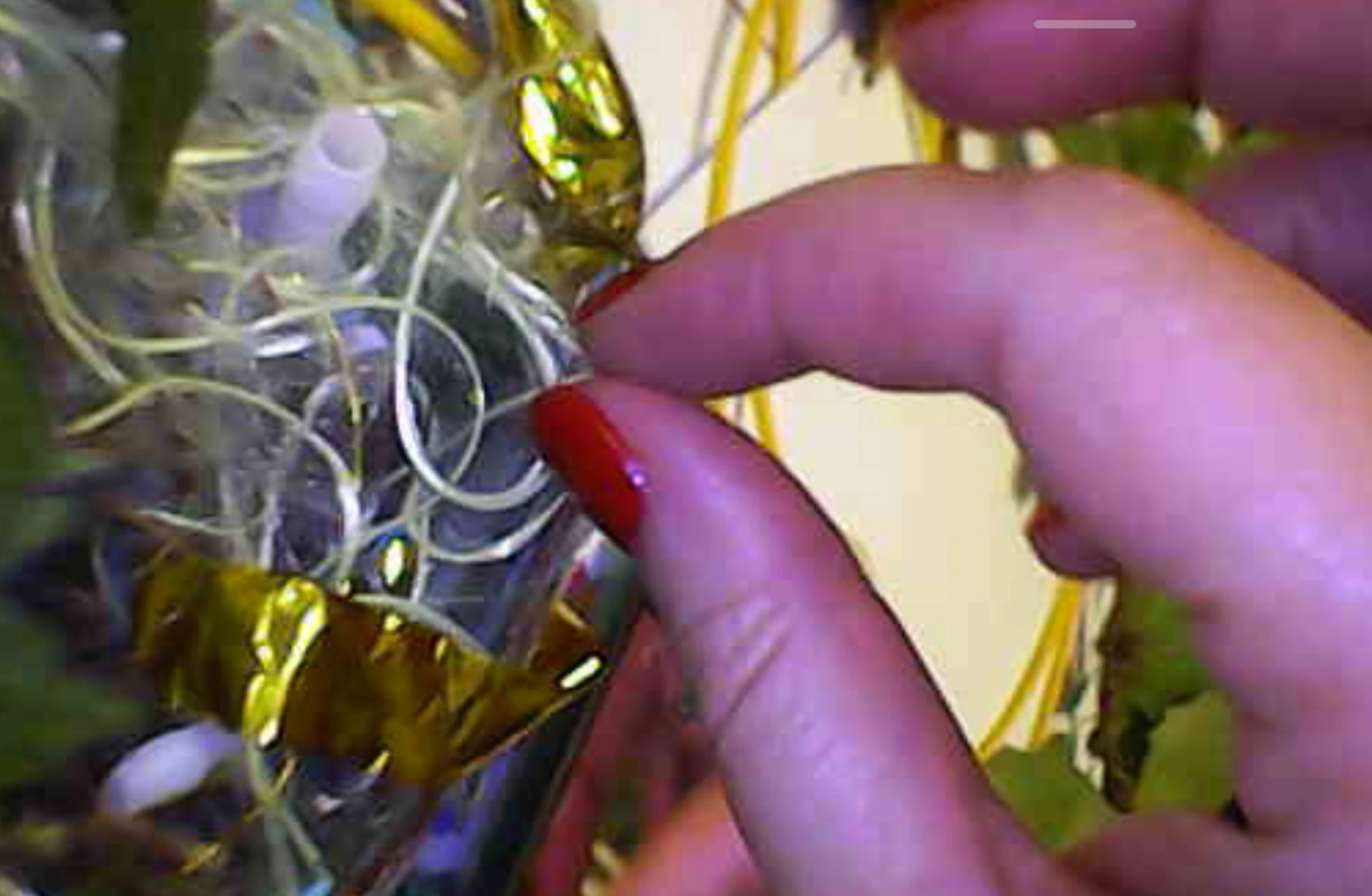
16 Nov 2025
laboratory: intertwined materiality of infrastructures
varia space, Rotterdam (NL)
Endless War on Earth? Developing a multi-level strategy toolkit for short, medium and long-term action
Facilitation of Workshop
16-18 October 2025
“Pluriverse of Peace”. Berliner Gazete Conference 2025, Berlin (DE)
Conditions of War, Fairytale About Love, fixDisputedCities, Total Metrics, Factory of the Map, Minimum Wage May Be Denied
17 Oct 2025
“Pluriverse of Peace”. Berliner Gazete Conference 2025, Berlin (DE)
Performative lecture
Forest Assembly of Educational Fictions
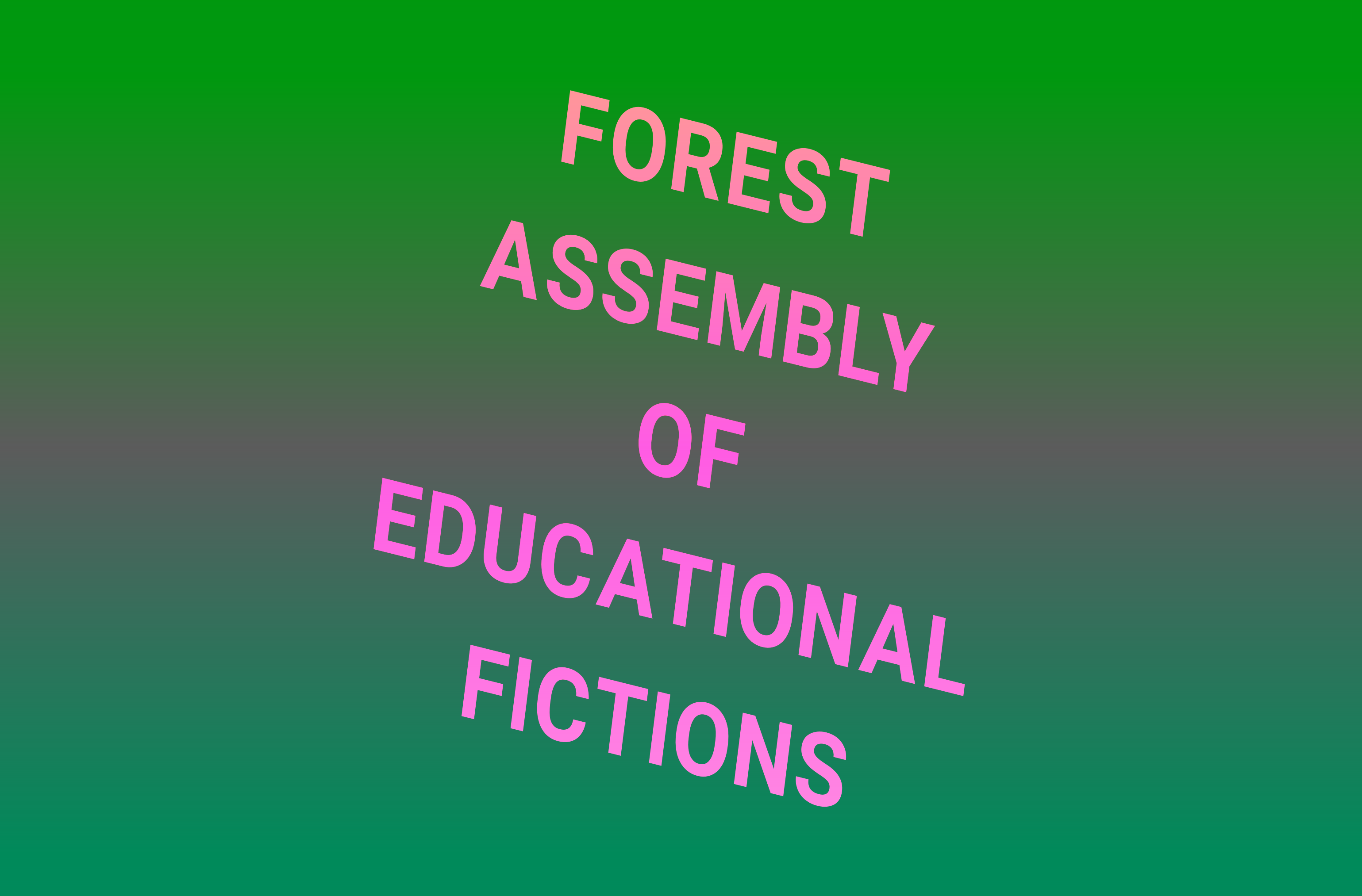
26 Sep 2025 — 02 Oct 2025
Week long assembly
we invite you to apply to Forest Assembly of Educational Fictions: https://workhardplay.pw/en/2025/invitation.html
To take a place as a starting point of imagining, of thinking and learning through other places that are now inaccessible, but close to the body. ↬ To see echoes of other forests, sea shores, borderlands, class-rooms (and exits from them), ↻ relating to the place as something unstable, always changing, fading and transpiring, flickering with with multitude of discrepancies, interdependencies, transnational solidarities. ⇝
This year’s assembly brings together spaces of a school and of a forest, in Massiaru and beyond. (Non)temporary places of immediate knowledges and wisdoms; mobile partisan and poetic technologies; ↯ fugitive spaces of refuge and withdrawals; ⤼ nesting tree houses protecting land from corporate annihilation; ⤰ classrooms full of fungi and weeds, maintained through collective efforts and desires. Schooling and foresting as leisures, spare, (non)productive fallow times.
School building is a place for Educational Fiction. The first word «навуковая» in «Science Fiction» (bel: навуковая фантастыка) could be understood not only as scientific, but also as educational. Through the lenses of fictioning, ⤤ its props and settings, we wonder how can the process of imagination be unfolded and supported, in particular in the contexts of ongoing wars, repressions and revolutions? And how does that correlate with places that are thought to be «not affected» by the latter?
The assembling follows the legacies of social uprisings, strikes, pop-up gatherings, yard concerts, sabotaging and hacking, overwhelming affection and wish to move stones. For us assembling does not mean the climax of political organisation, but rather everyday practice of negotiation, generating and being together.
During these 7 days we propose an assembly as a place of mixing different activities: scores, physical exercises, games, harvesting and planting, discotheques, meals, walks, reenactments, hacks, listening, doing nothing, something that is not yet named – suggested by all.
Working group:
🍏Aleksei Borisionok curates series of exhibitions and events, connected to the issues of the post-socialism, strikes and infrastructures, he also writes about arts and politics for miscellaneous journals and books.
🥦eeefff (Kolja Spesivtsev and Dzina Zhuk) works with emotional effects of the new economic regimes driven by computation, materiality of sensibility, affects within creative industries, frictions between user interfaces and protocols, test settings for collective imaginaries.
🥬Olia Sosnovskaya works with text, performative and visual practices between the festive and the political, intertwining collective choreographies, movement scores and (post-)revolutionary temporalities.
Assembly of Leisure Unrest
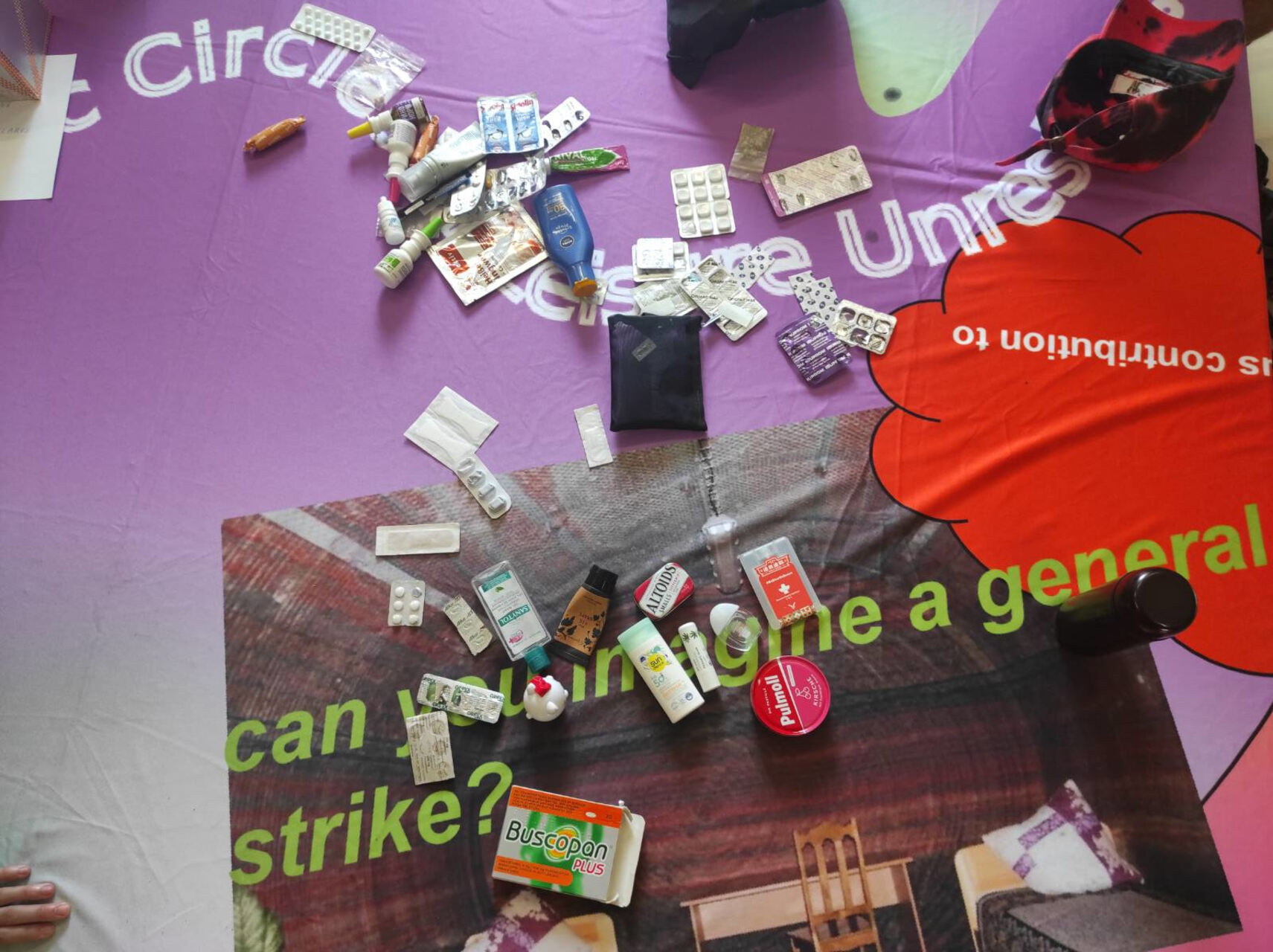
KEX, Vienna (AT)
28 Aug 2025
Assembly
Feel warmly invited to DO AS US USERS DO, an evening at kunsthalle exnergasse curated by adO/Aptive (@jan.w.e.i und @shoggoth_11)!
Participating artists/collectives:
WORK HARD! PLAY HARD! working group
@workhard.playhard.minsk
Jelena Visković
@jelena__viskovic
adO/Aptive
@adoaptive
We will host a discursive and performative evening in three parts. The program is conceived to reflect on gamification and different modes of immersion into game-realms - be they IRL or fully virtual.
Program:
4 pm: Assembly „Decentric Circles of Leisure Unrest“ by the WORK HARD! PLAY HARD! working group
6.30 pm: Film screening „Motonation“ by Jelena Visković
7 pm: Performance „WHEN IN RO/AM“ by adO/Aptive
[With: Martin Gius @polymorphic.engine (game mechanics, hardware), Iris Fabre (FR) @fabris._8 (costume), Tamara Zs. Vadas (HU)
@t_o_n_y_t_o_n_y_a (dramaturgy).]
Performed by:
Mel Berger @cases.suck
Felix Diefenhardt @felix_diefenhardt
Teuta Jonuzi @teutajonuz
Laura Oyuela @artfirstchild
Tamara Zs. Vadas @t_o_n_y_t_o_n_y_a
Imre Vass @_imrevass
+ suprise act.
Score for the Session of Algosomatics
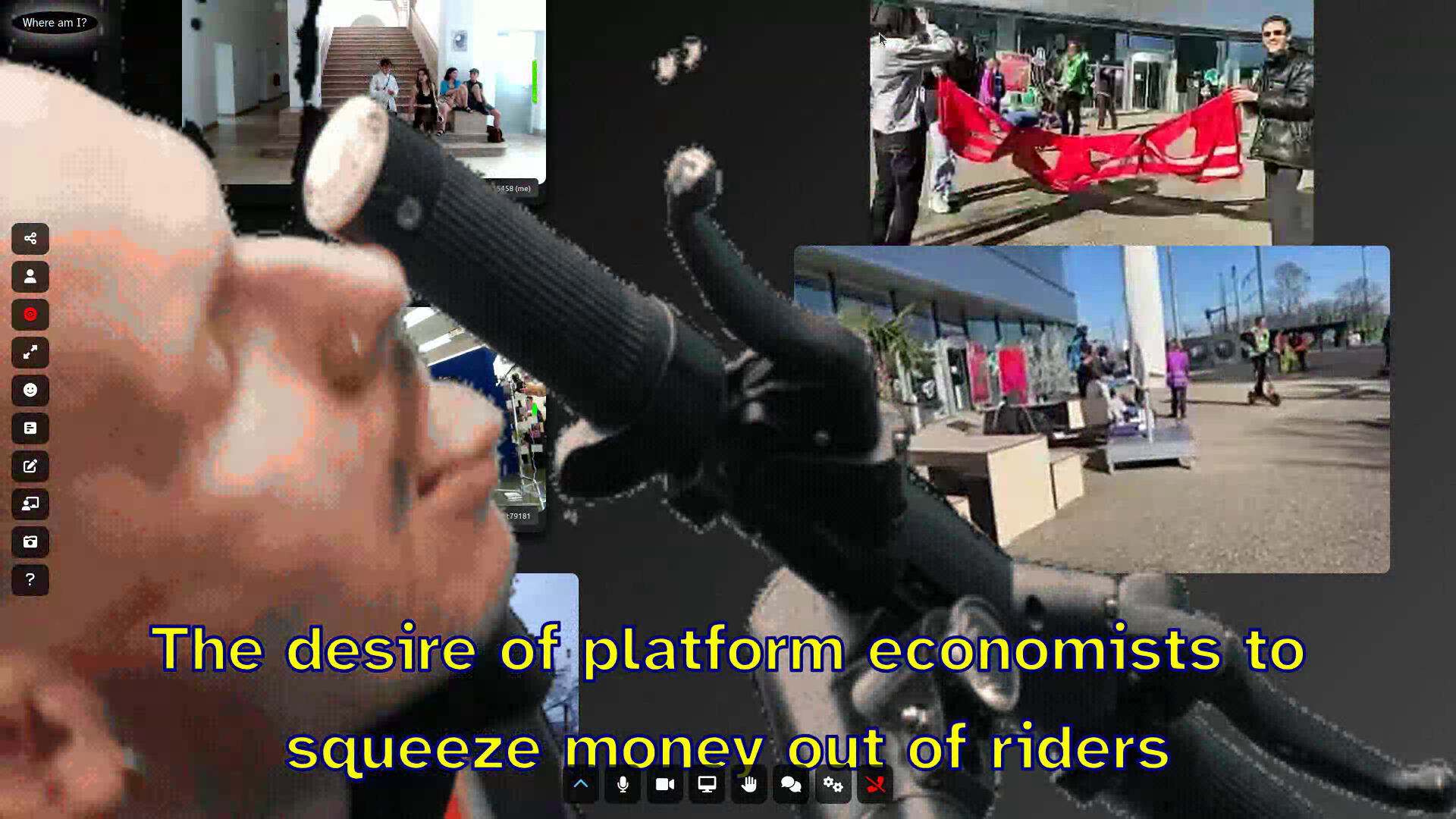
ongoing
Score to play-test
online
Outsourcing Paradise @ AY4R
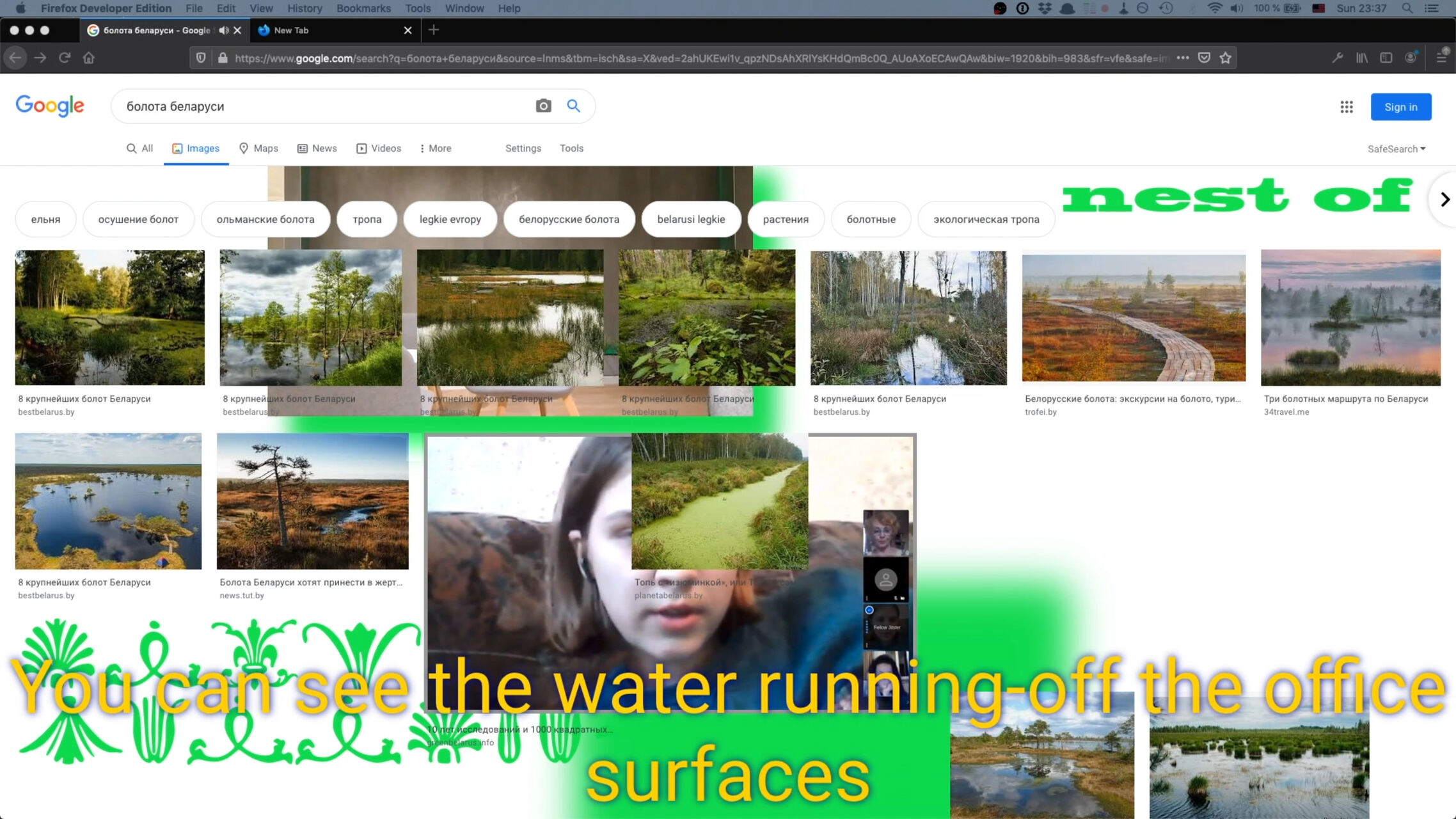
AY4R platform
ongoing
Parasite on interfaces
This Too Is a Territory Navigating Digital Frontiers @ Are you for real?
Computer-generated realms represent uncharted virtual territories, and a virtual territory is not just a map but a lifeworld with its own existence, intricately linked to the tangible ground beneath us. Just like that tangible ground, a territory can be subject to colonization when it is computer-generated and algorithmically powered; here a distinct form of extractivism emerges, for the valuable resource is the data supplied by human developers and users. Data colonialism, like other colonialisms, relies on the exploitation of individuals and the monetization of life through data, mirroring the appropriation of territory and resources for profit. In the ARE YOU FOR REAL 4th cluster, virtual or digital docufictions allude to negotiation, democratic decision-making, and social welfare while also unveiling a cosmogenic business strategy that engineers the future and pointing to the extractivist relationship that mankind (man as a proxy for the most powerful) has to every living thing.
The fourth cluster, “This Too Is a Territory – Navigating Digital Frontiers”, features artworks that explore uncharted algorithmic territories in a quest to critically uncover forms of agency, resistance, and resilience. They pose questions about whether Web 3.0 holds the promise of a decentralized and federated internet, yet also reveal its revitalization of extractive fantasies on the internet and marketing schemes. They suggest that world-building may give rise to tactical algorithmic agency—the capacity for people to actively shape the outcome of corporations’ algorithmic computation for their own benefit.
Drawing from past examples, this cluster examines the possible repurposing of hegemonic technological infrastructures towards more equitable economic and social practices; offers a hallucinogenic 3D platform collaging the “new worlds” of past colonial expansions with the new virtual territories of speculative real estate on the metaverse; speculates around the digital reappropriation of real-world territories affected by climate change acceleration; uses algorithmic strategies to reveal the complex structure of outsourced labor; and analyses how blockchain is used to cross borders and extract resources—including land, labor, data, privacy—from those most in need. As Nelly Y. Pinkrah’s text A matter of time… and other things that cannot be determined aptly states: “What this collapse has laid bare we ought to never forget again: power (belongs) to the people, and it resides in their relationships. It resides in their modes, movements, and (im)materialities in solidarity.”
Snowball Radio
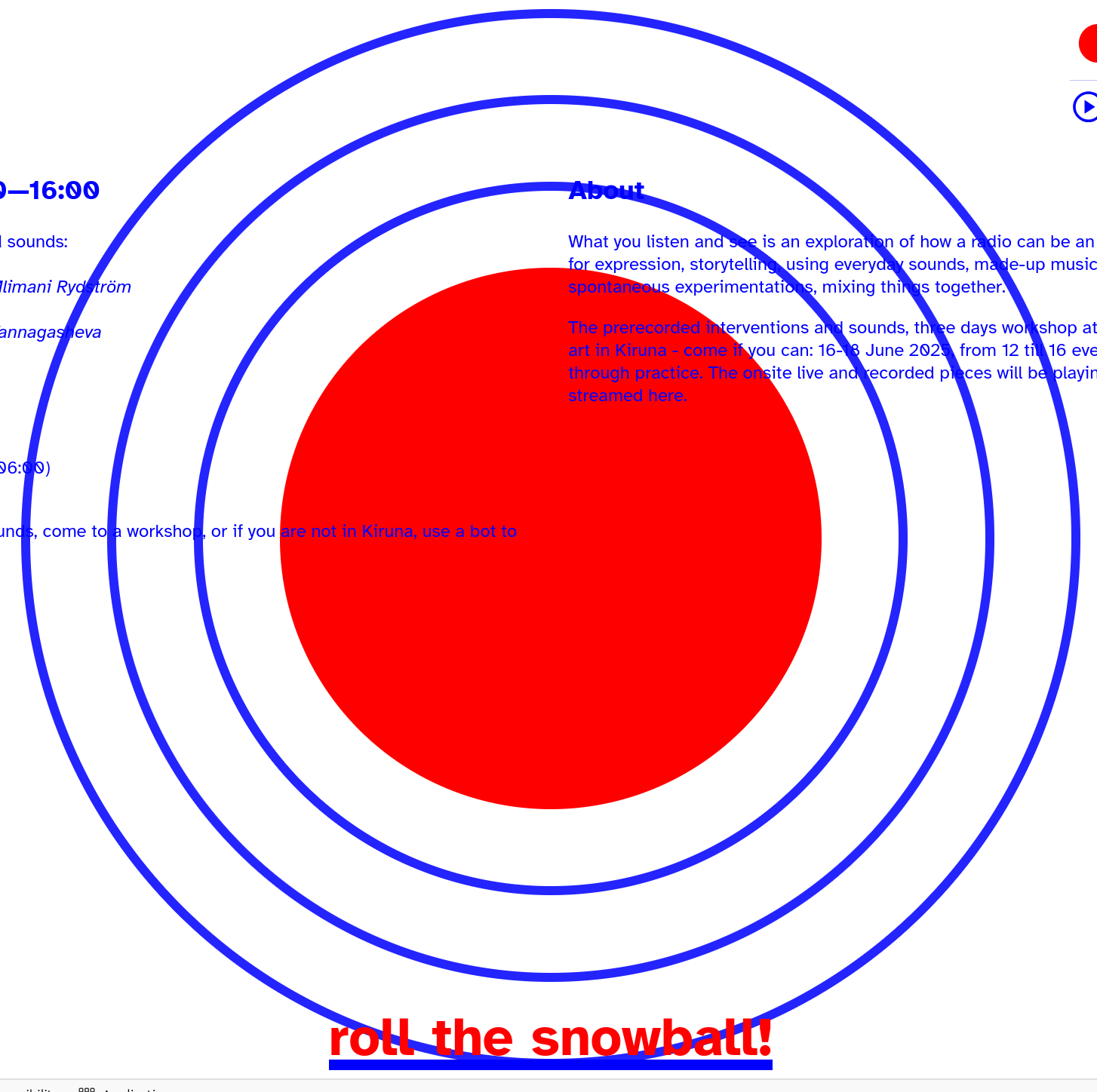
ongoing
Pop-up radio
online
What you listen and see is an exploration of how a radio can be an inventive, playful, and tactical tool for expression, storytelling, using everyday sounds, made-up musical instruments, field recordings, spontaneous experimentations, mixing things together.
The prerecorded interventions and sounds, three days workshop at the Kin museum of contemporary art in Kiruna - come if you can: 16-18 June 2025, from 12 till 16 every day. We’ll be creating broadcasts through practice. The onsite live and recorded pieces will be playing throughout the museum and streamed here.
About prerecorded interventions and sounds:
Don’t you dare by MONSTERA
Names of Kiruna’s houses by Lena Mlimani Rydström
Sounds of swimming pool
Poesie and vargan playing by Yana Tannagasheva
Sounds of graduation party
Sounds during Bike fest
Hardcore by Invader
Sounds of elite hotel opening
Walking by Lena Mlimani Rydström
Soundtrack of a horror film (23:00—06:00)
● recent →
Algosomatic Session @ UdK
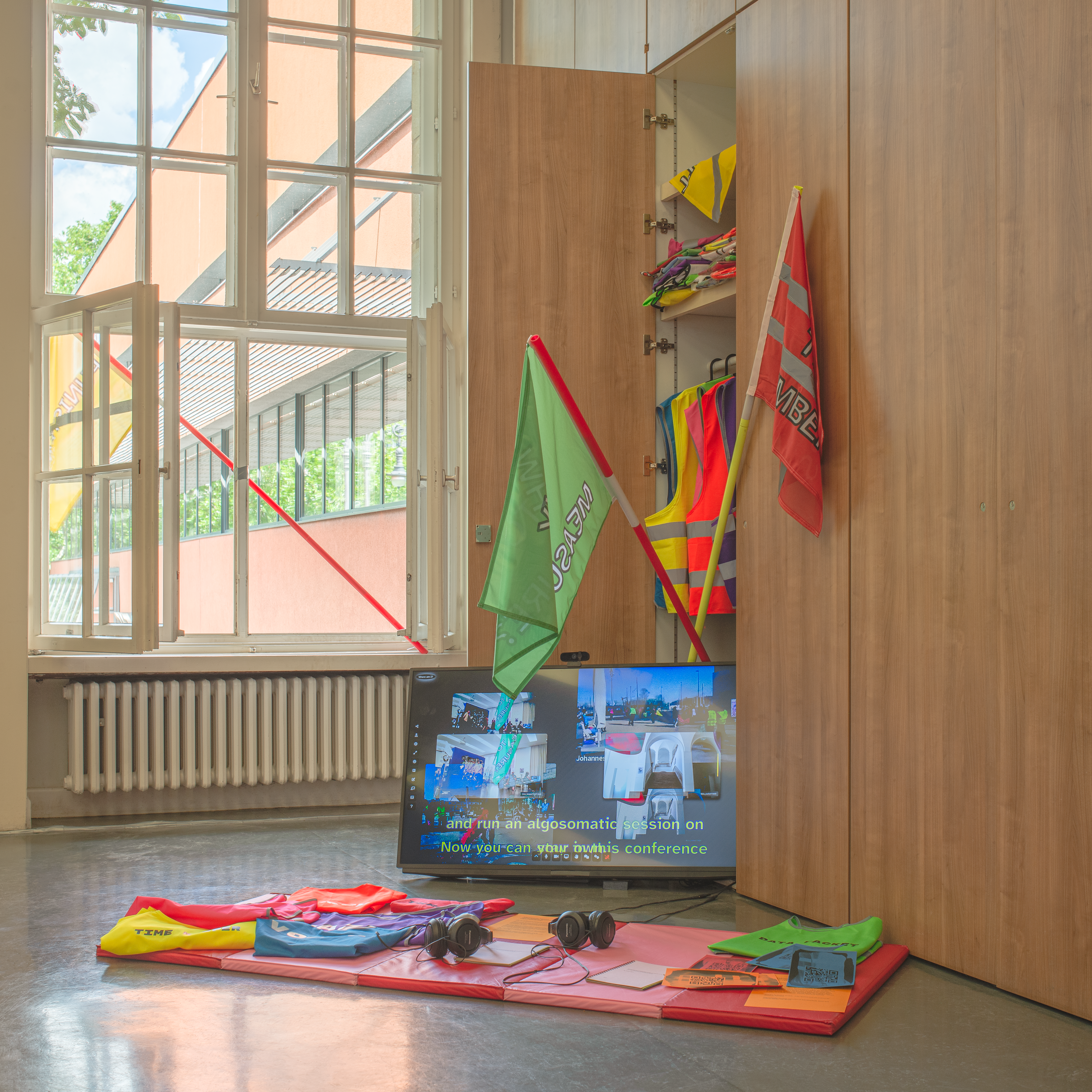
17-20 July 2025
Score
UdK, Berlin (DE)
Snowball Radio Workshop
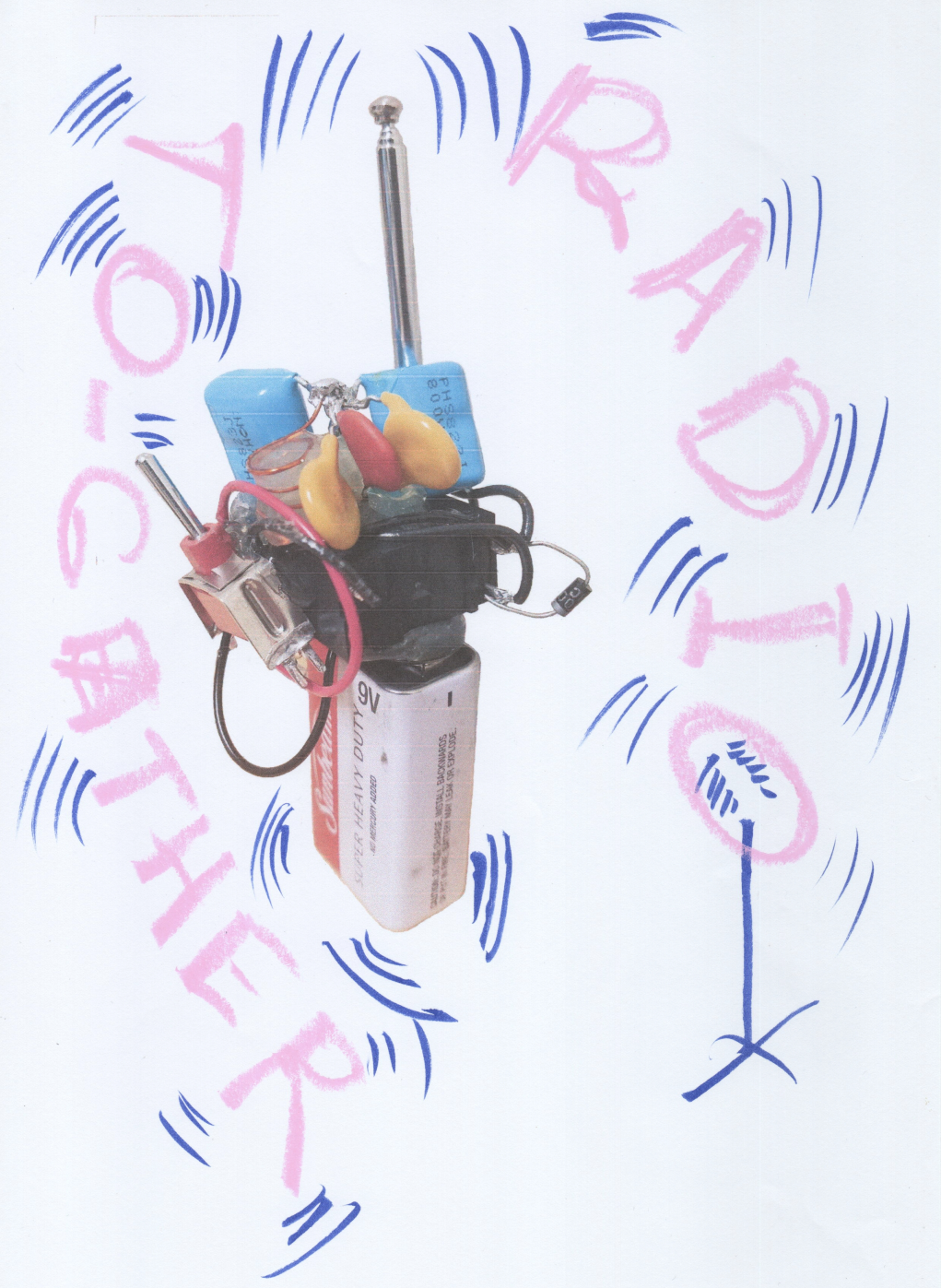
16-18 June 2025
Workshop / http://radio.eeefff.org/
KIN Museum / Kiruna (SE)
Residency
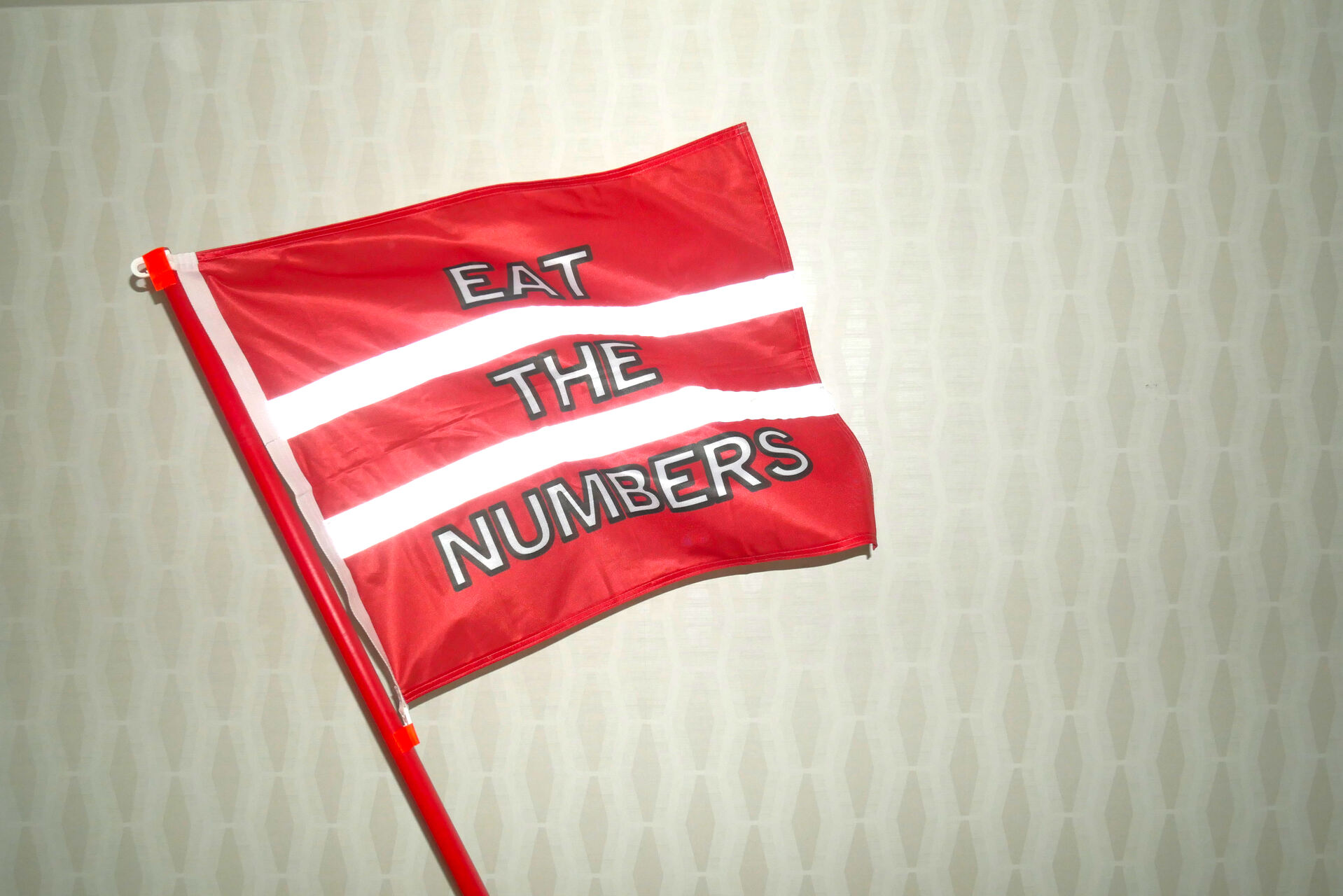
13 April–19 June 2025
2-months long residency
Kin Museum of Contemporary Art, Kiruna (SE)
Body Knotted in the Cables and Codes: Artistic Research of the (Cyber)War Infrastructure
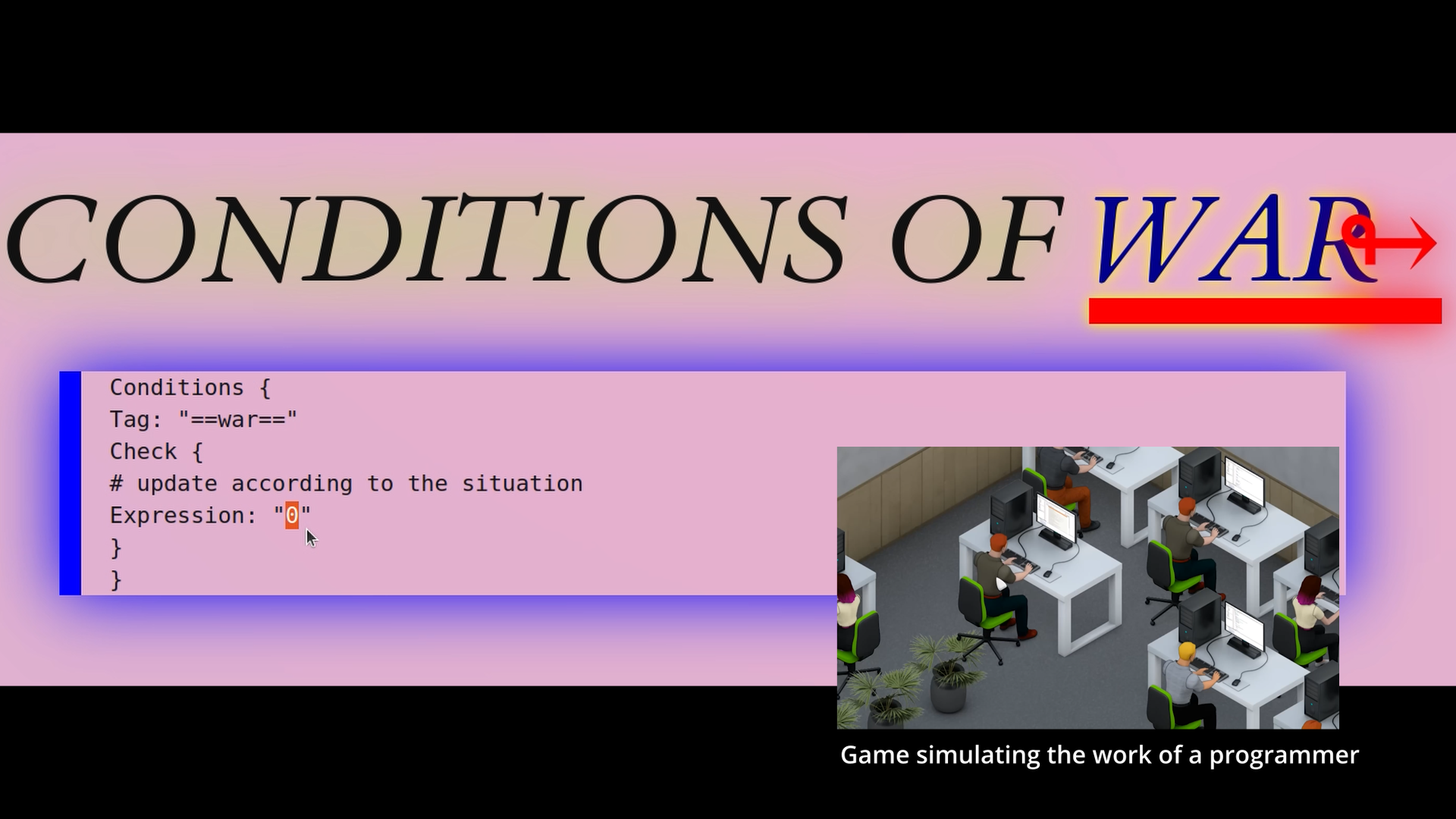
Discussion at the Conference “Feeling Machines: Gender, Technologies, and Capitals”
14–15 May 2025
Contemporary Art Centre (ŠMC), Vilnius
Moderator: Oleksii Minko
Participants: Lera Malchenko (fantastic little splash), Nicolay Spesivtsev and Dzina Zhuk (eeefff), Anna Engelhardt, Mark Cinkevich
In the talk with the artists fantastic little splash, eeefff, Anna Engelhardt and Mark Cinkevich, we will elaborate on the entanglement of digital technologies, colonial infrastructure and body. The body is the destination of technological terror and simultaneously is the medium, element of the infrastructure, and operational part of the algorithm. During the talk, we will discuss how the body is exploited through digital labour, how its emotion is mobilised through (deep)fakes and how digital architecture limits and enables its sensing and cognition. The artistic practices of the participants engage with hidden but influential events and materialities behind the code, data, and infrastructures, showing how they could be turned against the exhaustion, extraction, and expansion that come with the colonial usage of digital technology. Therefore, the panel will focus not only on the oppression and manipulation of bodies but also on imagining and experiencing the collective (and often performative) forms of resistance t(hr)o(ugh) digital technology.
The conference focuses on the socio-political dimensions of emotions, examining how they are deeply embedded within the interplay of gender, technology, and capital. Emotions are not neutral; they are shaped by political, economic, and social contexts, influencing how we re/act, on our ability to co-operate, solidarize, or atomise. Drawing on capital theory, we explore how different forms of individual capital—financial, human, emotional, symbolic, social, and others—impact emotional and gender perspectives. The triad of ‘gender, technologies, and capital’ is central and interdependent, forming complex dynamics.
Algosomatic Session
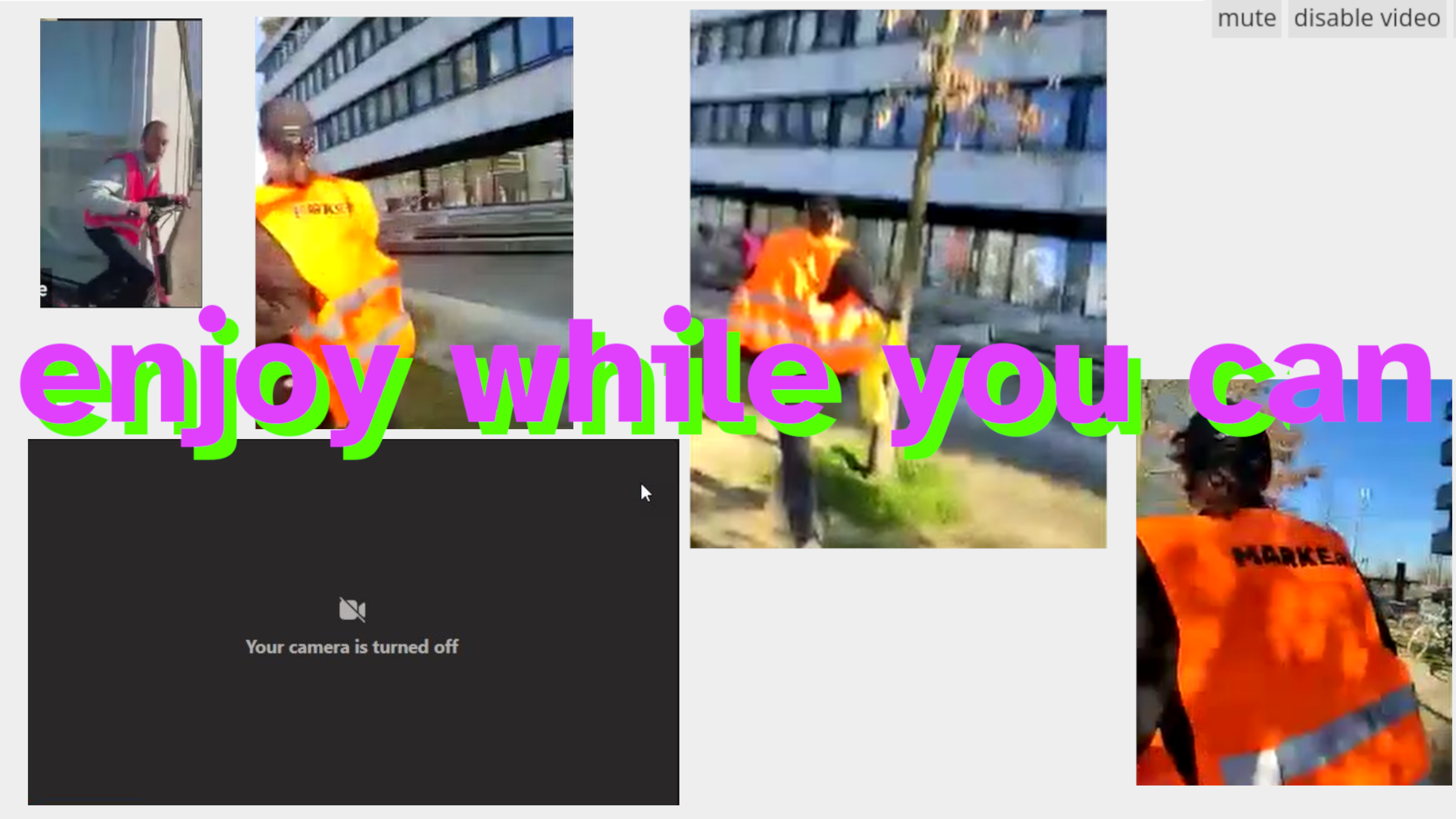
5 Mar 2025
Colloquium & Session
Critical Media Lab Basel (CH)
The session will focus on finding ways to communicate privatized expert engineering knowledge through collective experiments and sharing bodily knowledge. To do so, the duo eeefff proposes to reenact the inners of algorithms. We will embody the formal choreography and rhythms of data flows and perform different visible and non-visible conflict positions clashing together in computational systems.
The script of the session will be built around everyday machinic operations, actions and tasks performed thousands of times per day. Riding a taxi. Looking for a partner. Taking measures against scooter “frauds” or those who do not pay for their ride. Moderating and labelling data. Punishing those who are too late at the delivery spot. Routines for calculating paths and surge prices for the fulfillment of desires and logistical needs. Mapping territories. You will choose your role(s) in this algo-aided landscape. The starting point will be the very specific codes and material artefacts. The workshop group will look closely into distant temporalities, work regimes, slip errors, leisure and punishment on a distance, and hardcoded tricks supporting them.
This session is part of the ongoing School of algorithmic solidarity, initiated by eeefff in 2022 to explore the relations between infrastructural time, algorithmic abstractions, and bodies.
Didactic materials for Can Colonialism Be Encoded?
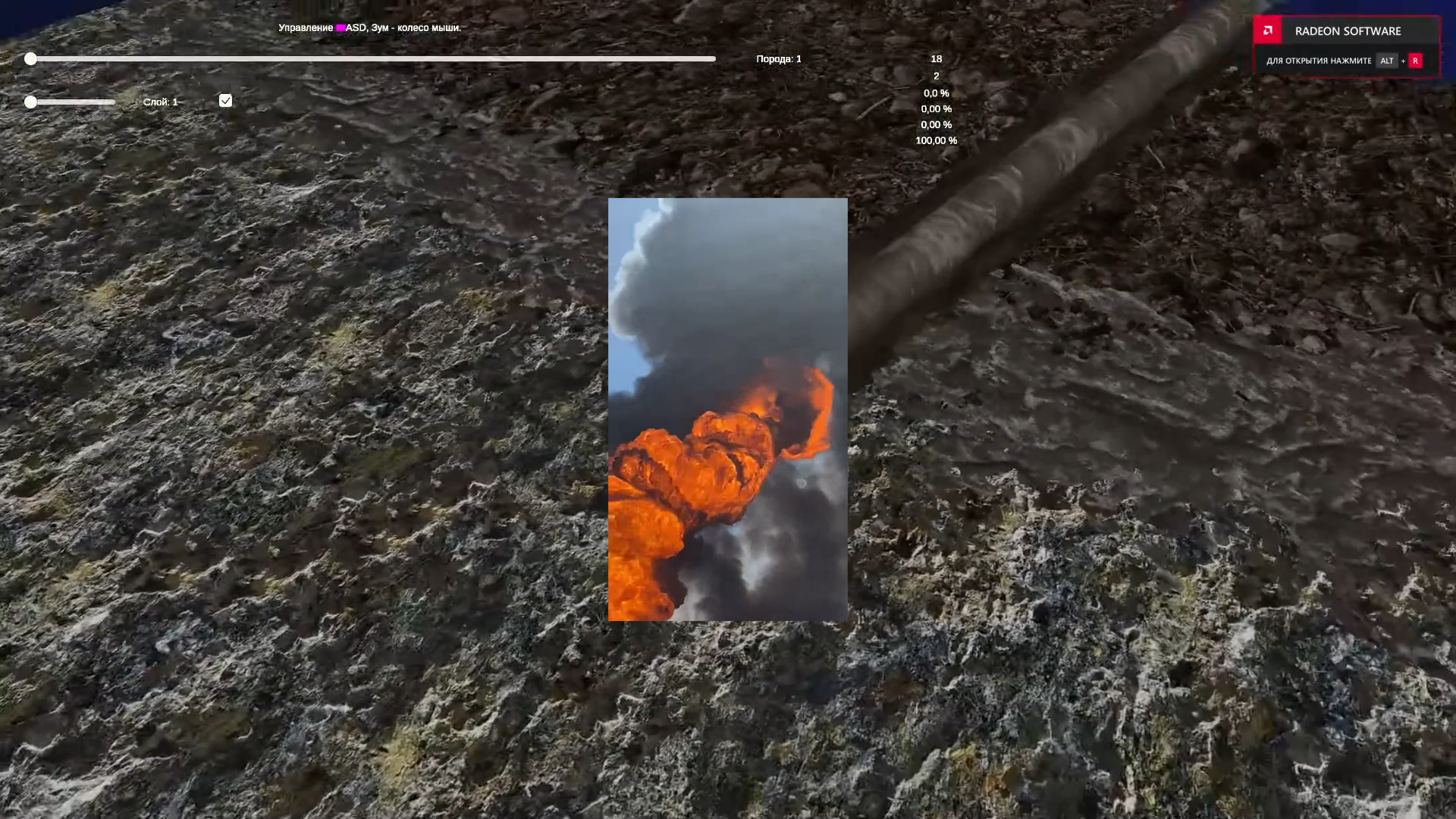
24 Feb 2025
UKRAINATV stream initiative / 2025
screening
We invite you to participate in a hybrid project that commemorates (and reminds the world, which in its persistent existence tends to forget) the ongoing tragedy. On Feb. 24, 2022, Russia invaded Ukraine, starting a full-scale war. But we want to talk about the present and the future, decolonisation, reconstruction, cross-border and transdisciplinary collaborations, decentralisation, hybridity, horizontal flows of power and ideas… For many of us, spending this time together is a good and constructive experience that gives hope for moving beyond difficult memories, for others, it is an opportunity for acts of solidarity, support, and testimony that we remember and stay together. For all of us, let it be a booster for life, a creative and magic event linking contradictions and the fragmented world.
The Stream Art Network originates from the activities of UKRAiNATV, a media phenomenon based at StreamArtStudio in Krakow, which is also celebrating its third anniversary at that time. In the shadow of war, in the fire of war, amid growing crises, ideas and new collaborative practices emerge. So, we invite you to join our 24-hour live streaming x hybrid multi-event across platforms and SAN channels, streamed from local venues.
School of Algorithmic Solidarity

Talk
13-16 FEBRUARY 2025
KONSTFESTEN Festival @ Kin Museum of Contemporary Art, Kiruna (SE)
Presentations by artists Salad Hilowle on a new project, Mats Wikström on the Råneå biennial, Amol Patil, artist-in-residence at Kin, and eeefff on digital solidarity. Artist and curator Andjeas Ejiksson introduces the traveling exhibition A Box in a Box in a Box: Thoughts and Art by Staffan Westerberg.
Salad Hilowle on The Black Beach—Visual archives between Swedish and Caribbean horizons.
The Black Beach: Visual Archives Between Swedish and Caribbean Horizons uses testimonies, maps, and archival fragments to artistically explore life in the former Swedish colony of Saint Barthélemy. Inspired by Sten Nordenskiöld’s silent film The Friendly Island (1952), the project examines how artistic research can expand and critique the colonial archive’s restrictive and racist narratives.
Salad Hilowle is an artist and filmmaker based in Stockholm. He was born in Mogadishu in 1986 and moved to Gävle eight years later. He uses a research-based approach that highlights forgotten or hidden stories throughout art history and popular culture, exploring the representation of Afro-Swedes in cultural history. Through the research of archival records, Hilowle traces overlooked subjects and tells alternative stories. He is doing a commission for Kin in 2026.
The Råneå Biennial and Råneå konsthall: The Very Local and the Not So Very Local Mats Wikström, artist and musician, artistic director for the biennale since 2018 and the art hall since 2022. Råneå biennalen and Råneå konsthall are collaborating with Kin on several projects.
Amol Patil is a performance and visual artist based in India. Inspired by his grandfather and father who were both writers, Patil works with drawings, objects, video, and performance using his family’s archive as a starting point. His work probes the current situation of workers and the prevalence of casteism whilst striving to connect the past, present, and possible futures. Patil works with the urban and human environment surrounding him, focusing on the reality of the community, the Dalits, to which he belongs. He is doing a residency at Kin in February 2025 and he will participate in a group exhibition in 2026.
School of Algorithmic Solidarity: eeefff The school of algorithmic solidarity proposes to clash together the relations between the digital and the bodily, the infrastructural and the imaginative, and to experiment with quickly-assembled forms of communality and commoning.
eeefff (Minsk/Berlin) is a collaboration between Nicolay (Kolja) Spesivtsev and Dzina Zhuk. Since 2013, they have created software-based projects, networks, and collective situations that critically explore digital labor, value extraction, and community formation.
A Box in a Box in a Box Andjeas Ejiksson, artist, writer, and filmmaker based in Stockholm, presents the exhibition A Box in a Box in a Box, which features seven suitcases containing fragments of the multifaceted works of theatre practitioner Staffan Westerberg. The exhibition was initiated and produced by Kin.
Algosomatic Session: how to act on a distance, to race conditions, to sleep with algorithms?
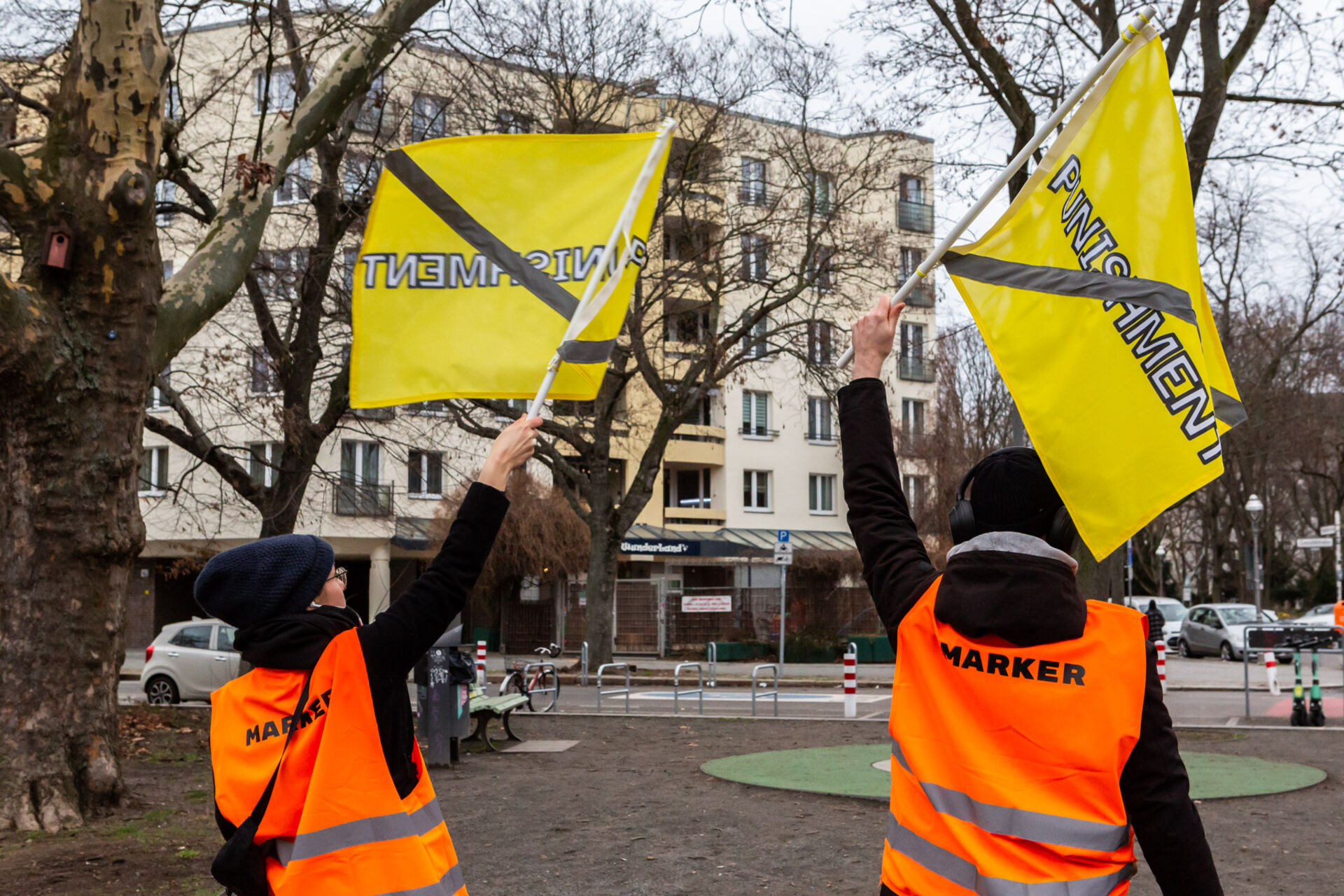
30.01.25
(near) near but — far. transmediale 2025, Berlin (DE)
Workshop
The session will focus on finding ways to communicate privatized expert engineering knowledge through collective experiments and sharing bodily knowledge. To do so, the duo eeefff proposes to reenact the inners of algorithms. We will embody the formal choreography and rhythms of data flows and perform different visible and non-visible conflict positions clashing together in computational systems.
The script of the session will be built around everyday machinic operations, actions and tasks performed thousands of times per day. Riding a taxi. Looking for a partner. Taking measures against scooter “frauds” or those who do not pay for their ride. Moderating and labelling data. Punishing those who are too late at the delivery spot. Routines for calculating paths and surge prices for the fulfillment of desires and logistical needs. Mapping territories. You will choose your role(s) in this algo-aided landscape. The starting point will be the very specific codes and material artefacts. The workshop group will look closely into distant temporalities, work regimes, slip errors, leisure and punishment on a distance, and hardcoded tricks supporting them.
This session is part of the ongoing School of algorithmic solidarity, initiated by eeefff in 2022 to explore the relations between infrastructural time, algorithmic abstractions, and bodies.
photo by Laura Fiorio
Something More Felt than Known: Bodies Troubling the Digital
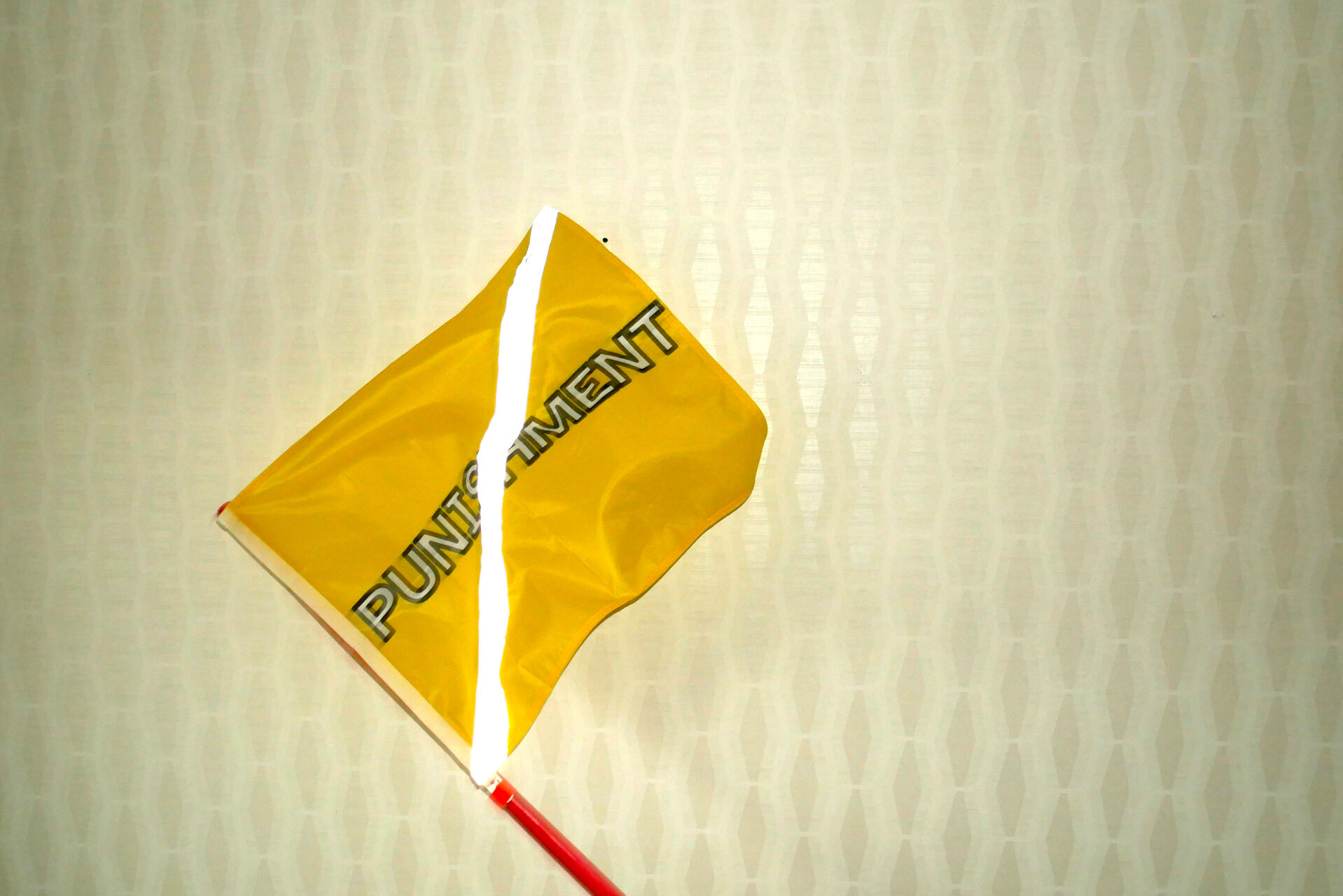
02.02.25
(near) near but — far. transmediale 2025, Berlin (DE)
Conversation with David Issac Hecht, Shintaro Miyazaki, eeefff, Alexis Convento
Digital infrastructures and algorithmic systems increasingly structure our bodily rhythms, from gig economy labor to data processing workflows. Yet these same systems that impose their rhythms also create opportunities for alternative forms of movement, consciousness, and solidarity.
In a wide-ranging conversation, David Issac Hecht, Alexis Convento, eeefff, and Shintaro Miyazaki explore how proximity to digital infrastructure reveals both its material impact on bodies and possibilities for resistance. Rather than turning away from digitality, they propose studying its transformative effects while developing “counter-algorhythms” - embodied practices that generate felt, collective experiences outside dominant digital paradigms. By examining the relationship between physical presence, digital systems, and social consciousness, they point toward commons-based approaches that could create new spaces for bodies to move, relate, and generate knowledge together.
Their discussion will suggest that while digital rhythms are imposed upon us, collective practices can help us access and create forms of closeness that transcend troubling aspects of digitality, opening pathways to more equitable and embodied futures.
This conversation draws upon two workshops from the Prologue, Acting and Knowing Together in the World: A Territorial Exploration of the Unknown as a Path Towards Closeness, hosted by David Isaach Hecht and Alexis Convento, and the Algosomatic Sessions: To sleep with algorithms, hosted by eeefff.
Entanglement of Infrastructures: Civilian Systems under the Pressures of Militarization
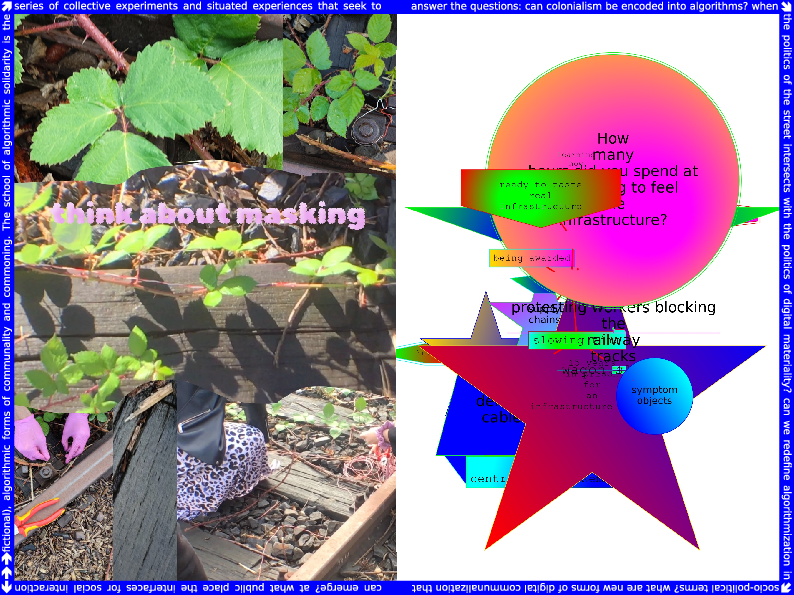
05.02.25
online @ AWC
online presentation of the first issue of AWC Journal
participants: Natasha Chychasova UA, eeefff BY/DE, Tatiana Kochubinska UA, Oleksii Minko UA, Hanna Paniutsich BY/GB, Antonina Stebur BY/PL
How do war and violence transform infrastructures designed for civilian life? What happens when homes, roads, digital networks, and ecological systems are absorbed into military strategies? Can artistic and forensic methodologies reclaim infrastructures from war’s logic? The first issue of AWC Journal explores how war reshapes infrastructures across physical, social, digital, and ecological domains, exposing their deep entanglement with power, control, and survival. It examines the blurred boundaries between civilian and military systems, revealing how logistics, communication networks, housing, and even environmental landscapes are weaponized in times of conflict. At the same time, it looks at creative strategies that challenge these militarized structures—acts of sabotage, counter-mapping, and speculative storytelling that expose, disrupt, and reclaim infrastructures from the logic of war.
The presentation will feature insights from the journal’s editor-in-chief Antonina Stebur, co-editor Tatiana Kochubinska, as well as contributions from Oleksii Minko, Natasha Chychasova, eeefff, and Hanna Paniutsich. Together, we’ll discuss the complexities of militarization’s impact on various systems and the growing interdependencies between civilian and military domains. The event will provide a deeper understanding of the physical, social, cultural, and ecological effects of militarization, and how these forces are shaping our world demonstrating its connectedness and interdependency.
● 2024 →
Can Colonialism be Encoded?
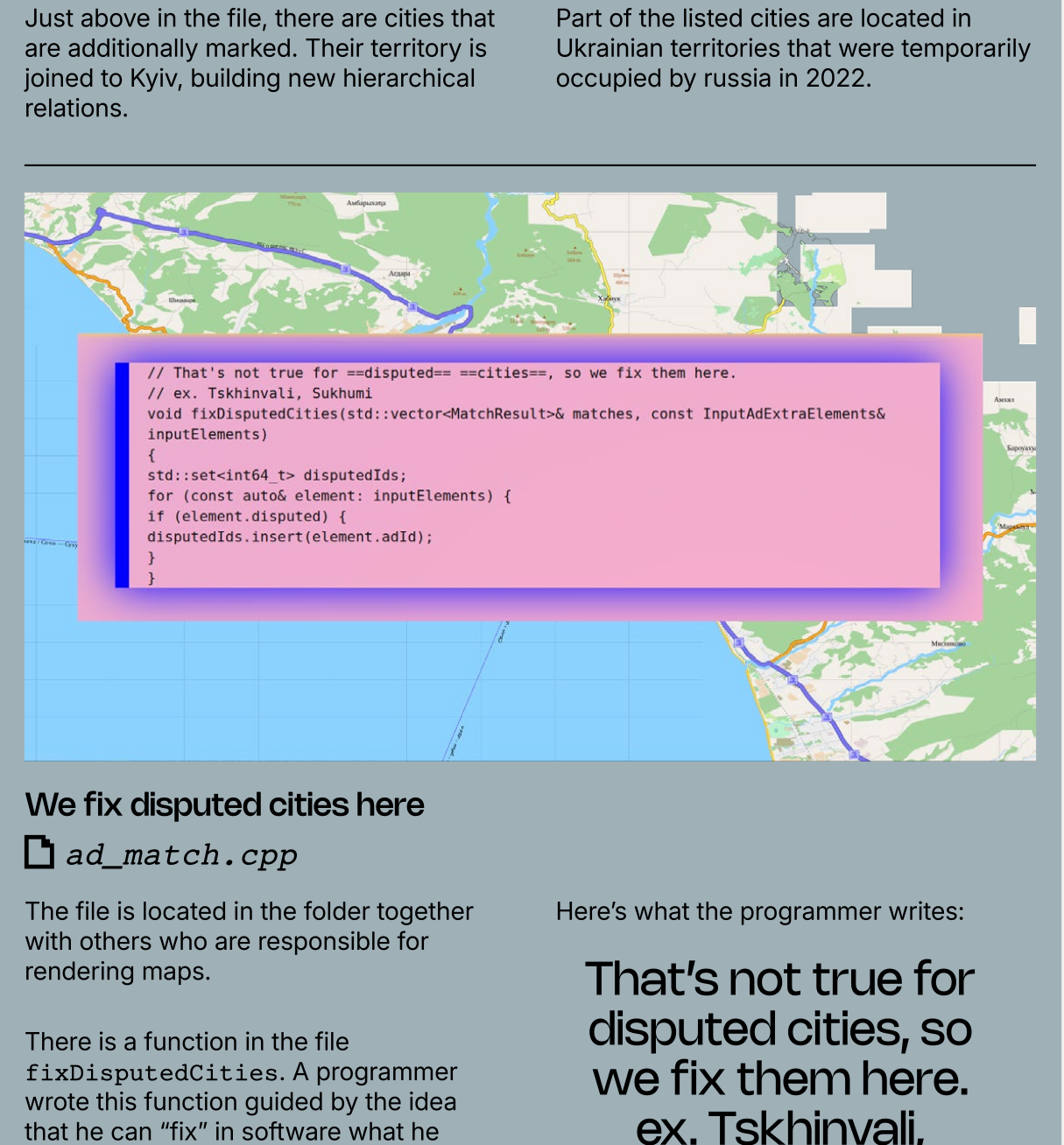
Dec 2024
AWC Journal #1
Script for didactic videos at Entanglement of Infrastructures: Civilian Systems under the Pressures of Militarization
This text is looking into the recent leaked source code of the biggest IT corporation, which is very close to russian government. The source codes of the Yandex company were copied in July 2022 and published on the Internet on January 25, 2023. The size of the leak is 44.71 gigabytes. Yandex services, whose algorithms were published, include maps, electronic assistant, taxi, web search engine, mail, cloud storage of documents, marketplace, travel agency, electronic payments, and delivery — tools that can cover needs of a modern paying user.
Below is a script for the video that was made as supplementary material for sessions of collective reading of the code in the frame of the School of Algorithmic Solidarity. The script consists of excerpts from the leaked algorithms, screenshots from the video materials, as well as short texts that position the algorithms in a broader, not only technical, context.
How do war and violence transform infrastructures designed for civilian life? What happens when homes, roads, digital networks, and ecological systems are absorbed into military strategies? Can artistic and forensic methodologies reclaim infrastructures from war’s logic?
The first issue of AWC Journal explores how war reshapes infrastructures across physical, social, digital, and ecological domains, exposing their deep entanglement with power, control, and survival. It examines the blurred boundaries between civilian and military systems, revealing how logistics, communication networks, housing, and even environmental landscapes are weaponized in times of conflict. At the same time, it looks at creative strategies that challenge these militarized structures — acts of sabotage, counter-mapping, and speculative storytelling that expose, disrupt, and reclaim infrastructures from the logic of war.
By making visible the hidden forces that shape our surroundings, this issue invites readers to critically rethink infrastructures as sites of contestation. Through a transdisciplinary lens, AWC Journal seeks to unravel these urgent questions, situating infrastructures as both battlegrounds and spaces of potential futures.
Contributors: Anonymous, Natasha Chychasova, Antonia Dika, eeefff, Nazar Golianych, Liza Goncharenko, Daria Hetmanova, Sonya Isupova, Aigerim Kapar, Tatiana Kochubinska, Maryna Konieva, Oleksii Minko, Oleksandr Osipov, Hanna Paniutsich, Nomeda & Gediminas Urbonas Editorial Team
Editor-in-Chief: Antonina Stebur (European Humanities University)
Co-Editor: Tatiana Kochubinska (independent curator)
Copy Editor: Alana Felton (Ph.D. Candidate, Yale University)
Designer: Andrei Stseburaka
Translator: lisa deikun
Terms and Conditions
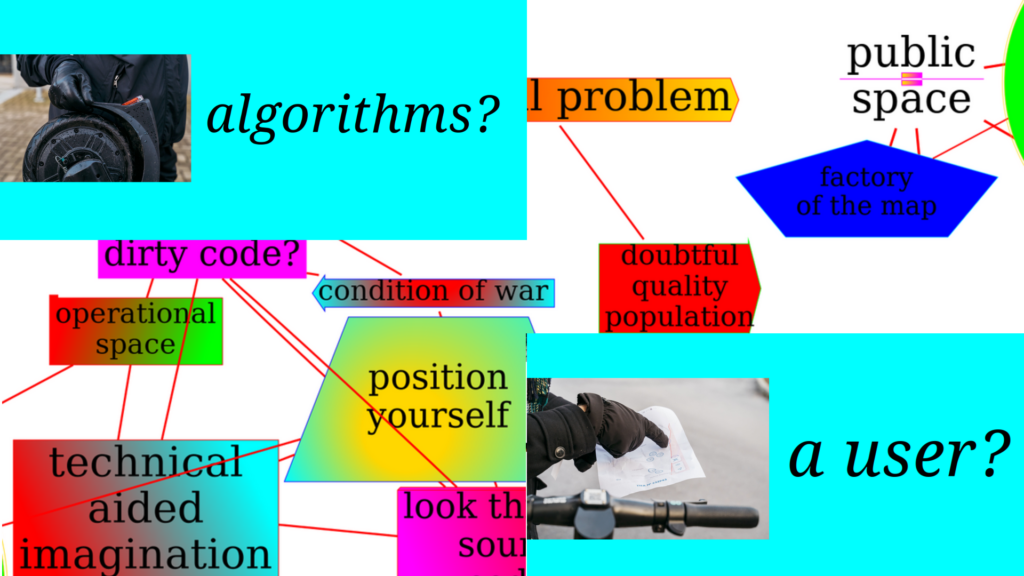
Expanded Cinema @ Harun Farocki Institut and HGB, Leipzig (DE)
26 Nov 2024
Workshop
How do algorithmic, economic and bodily rhythms overlap? – a walking and reading session with „The school of algorithmic solidarity“
eeeefff invites you to a two-part session: The first part will be a walking session connected to a collective exploration of the city by looking at the intersection of legal processes, bodily experience and platform or „sharing“ economies. We will walk through Leipzig, playing with the decomposition of material objects, interfaces and protocols, considering what the resistance of algorithms might do to our bodies and vice versa.
The second part will be a reading session combined with a dive into the programming code, which will allow us to think about the infrastructural level of the functioning of platform economies, who is in charge of what, what (il)legal matters are on stage. We will read through different modes of acting on distance, following the leakage that covers a multitude of services that form the horizon of activity of the subject of today – starting from electronic assistants, mail, cloud storage, interfaces of management of affective and logistical work, as well as interfaces of affective and infrastructural workers: namely taxi drivers, call centers and delivery workers.
No necessary programming or any other skills are needed.
Track “Contesting ‘Green’ Coloniality”
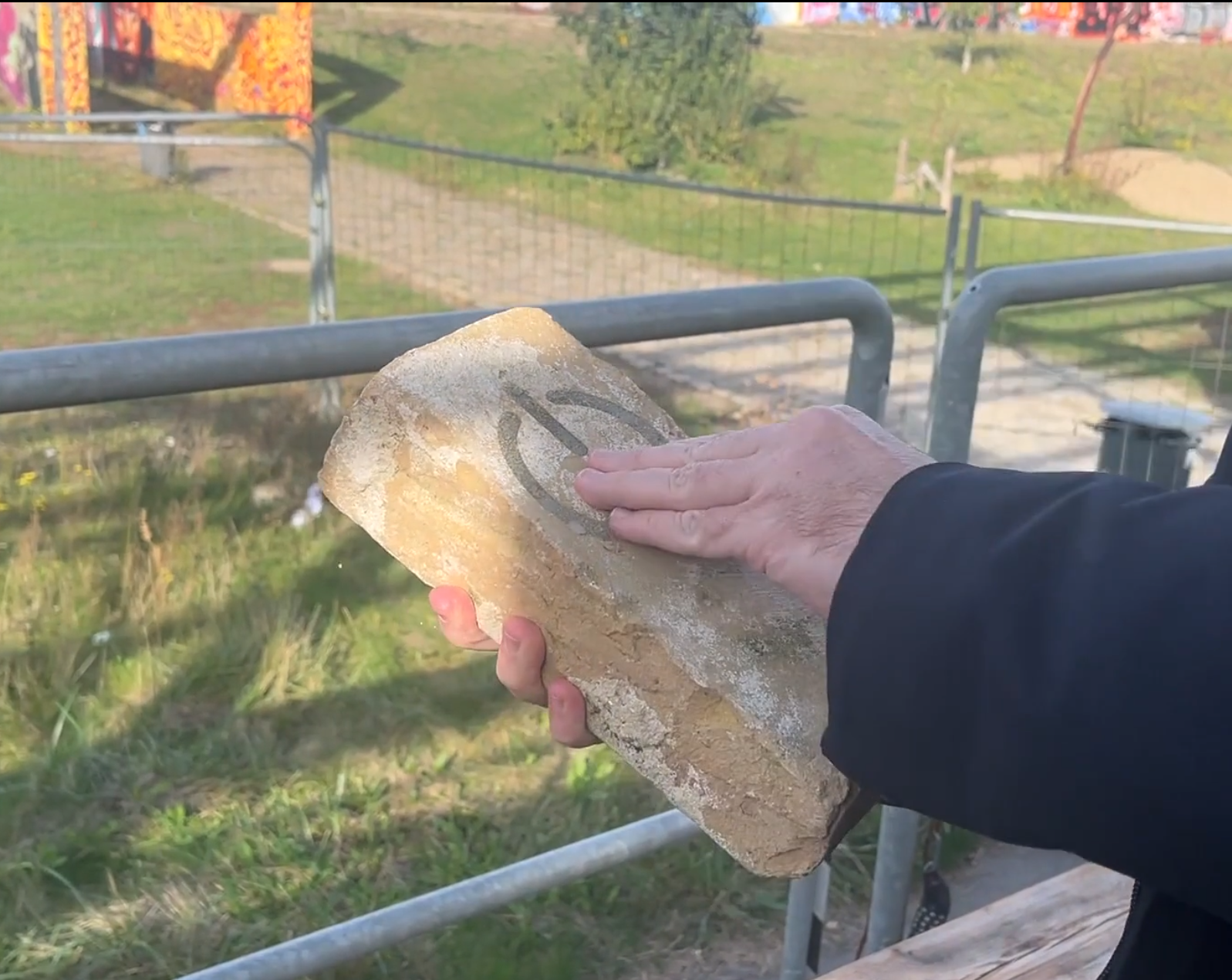
17 - 19 Oct 2024
KIN CITY conference, Berlin (DE)
facilitatiion of the laboratory
Much of the world’s population now depends on cities as places to live. But for a growing number of people, cities are not safe places. Threats range from massive pollution to heat waves and rising sea levels. Cities are largely responsible for these problems. As ‘engines of growth,’ cities drive colonial capitalist globalization. One consequence of this process: devastated ecosystems return the stress they have been subjected to, for example in the form of the increasing violence of climate change.
How can we politicize the dual role of cities as both drivers and ‘victims’ of the disasters of our time? How can we reclaim and reinvent cities as infrastructures of both human and other-than-human life? How can we connect urban and ecological struggles? At “Kin City” researchers, artists, and activists sought answers. View the documentation: audio, video, photos, and workshop projects. You can also scroll through the program below to access recordings of individual program items.
WORK HARD! PLAY HARD! working group: Decentric Circles of Leisure Unrest
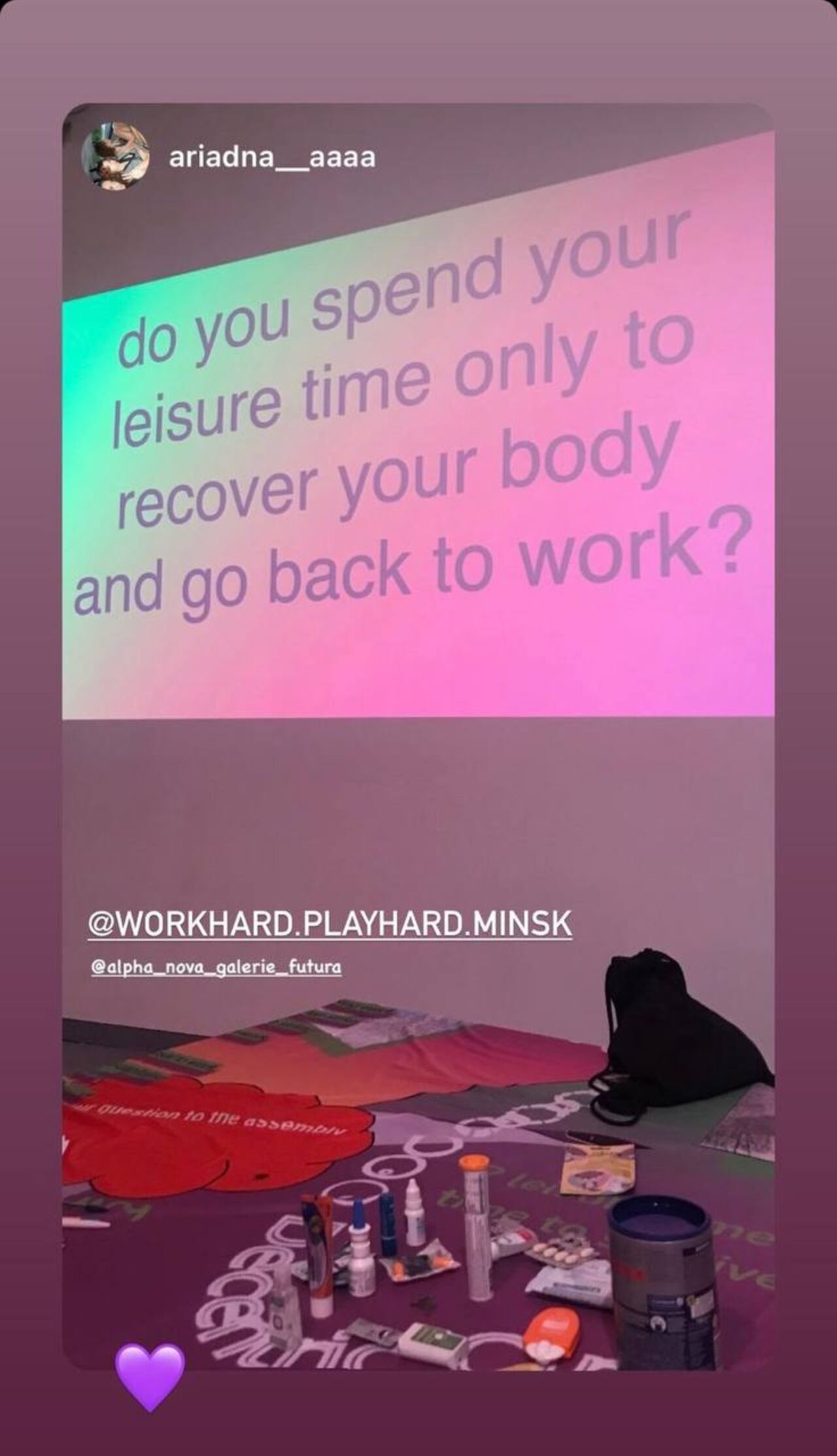
20 Oct 2024
alpha nova & galerie futura, Berlin (DE)
Assembly
Work Hard! Play Hard! working group proposes an assembly of tools, intuitions, magnetisms, tricks, songs and deep hangouts. Assembly is a circulation of conversations and questions, occasionally interrupted by spontaneous contributions — a gesture, poem, moving practice, track, score or anything else. They imagine assembly not only as an anarchist tool of decision making with its own dynamics, discipline and patient velocities, but also as a medium – of struggle, of joy, of invention and speculation, of listening and performing. Seen not only as a flow of conversations, but also as decentric circles that derive from similar places but have various radius: thematically, spatially and involving temporalities of different kinds. The Assembly will focus on Decentric Circles of Leisure Unrest tackling questions, affections, and experiences on the ways how one can recuperate and regenerate, sorrow and organize, fight back and show teeth of creativity, embrace exhaustion and be together. We will circle and assemble around notions of human strike, time strike, non-work, refusal to work, anti-capitalist leisure, burnout and survival, leisure on a periphery of empires, querness of time, and others with the help of protocols developed by Work Hard! Play Hard! working group.
WORK HARD! PLAY HARD! working group (Dzina Zhuk, Aleksei Borisionok, Olia Sosnovskaya, Nicolay Spesivtsev) deals with work, leisure, collective practices and communal living, non-institutional infrastructures and knowledges. The group organised the annual event series WORK HARD! PLAY HARD in Minsk (2016-2020), the performative seminars FATIGUE AND PHARMACHOREOGRAPHY (2017-2019), “STRIKING-EVENT” (2022-2023), and assembly DECENTRIC CIRCLES in Warsaw (2024).
Can Colonialism be encoded?
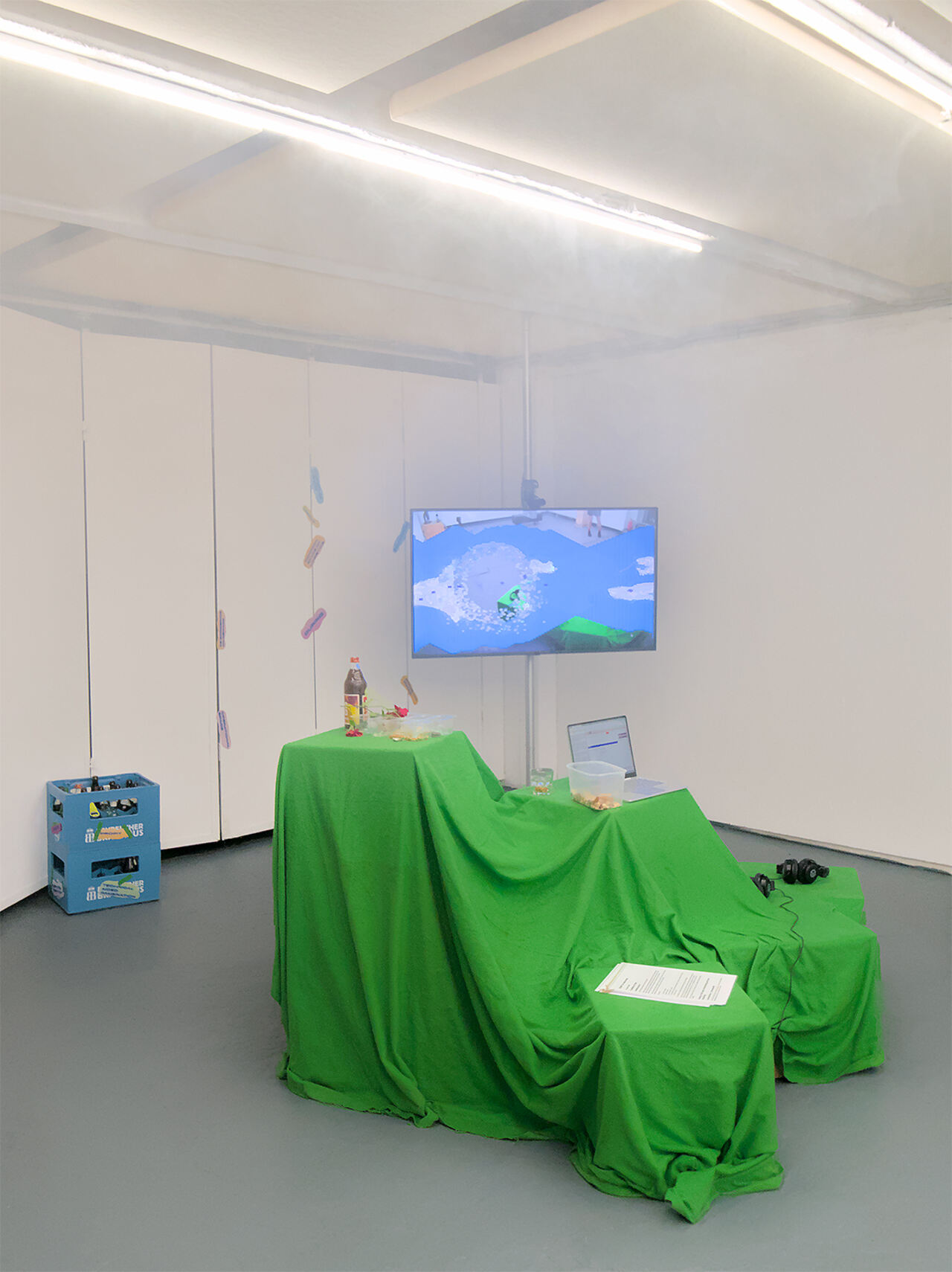
05 Sep – 19 Oct 2024
exhibition “Alt Nets”
panke.gallery, Berlin (DE)
The group exhibition Alt Nets at panke.gallery brings together artistic positions that explore the intersection of community networks, low tech and permacomputing. The relation between these concepts lies in their shared values of community empowerment, sustainability, and accessibility. They represent different aspects of grassroots efforts to reclaim control over technology and communication infrastructure, while also promoting environmental stewardship and social justice/equality. Central to the exhibition is the recognition of the qualities derived from grounding artistic practices in existing contexts, conditions, and communities. Unlike the solutions proposed by technocratic elites, which often overlook collective efforts and community organization, the artists featured in Alt Nets prioritize nurturing and strengthening the communities they grew from.
Find more details on the project website: https://findselecttransform.world/
Curators: Noemi Garay and Sakrowski
Artists: Everest Pipkin (US), Tega Brain/Benedetta Piantella/Alex Nathanson (US), James Bridle (GRC/GB), Matthias Fritsch (Berlin), Alice Yuan Zhang (US), eeefff (BLR, Berlin), Ursula Endlicher (AT/US)
Additional workshops by: Liaizon Wakest, Ola Bonati & Brendan Howell
Decentric Circles of Leisure Unrest (as members of WH!PH! working group)
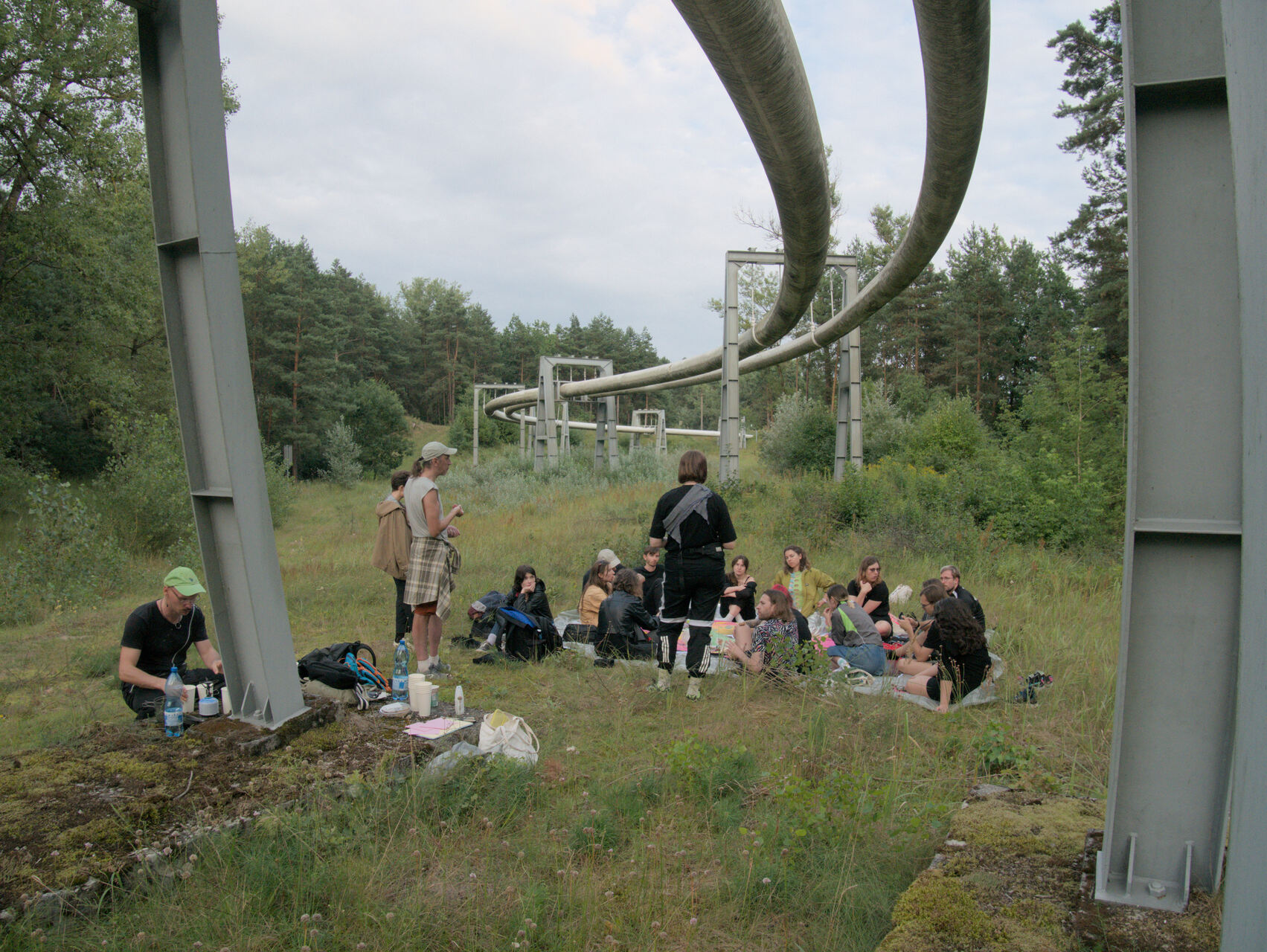
25 — 28 Jul 2024
Warsaw (PL)
A program of contributions + invitation for spontaneous inputs during assemblies
In the course of the never stopping crisis of imperial warfare of Russia against Ukraine, destruction of networks of solidarities in Belarus, and multiple crises that are unfolding around the globe, driven by the entanglement of multiple imperialisms – in Artsakh, Palestine, Peru, Congo, Iran, Syria, Sudan, Kazakhstan, Belavezha Forest to name just a few – we are in need to think of the ways of surviving, struggling and supporting each other, of taking care of the existing and weaving new alliances. We propose to discuss, remember and make use of many things that we have been practising for centuries – mutual aid, solidarity, sabotage, striking – against the power of capital, police state, colonial dispossession and social deregulation. Building on the legacies and now-struggles of our comrades, we feel urgency to meet to regenerate, to archive, to define tools, to have a moment together. We would like to open the space of the assembly. As a horizontal space of discussions, as polyphony of contributions, as shared time. We propose an assembly of tools, intuitions, magnetisms, tricks, songs and deep hangouts. We imagine assembly not only as an anarchist tool of decision making with its own dynamics, discipline and patient velocities, but also as a medium – of struggle, of joy, of listening and performing. We see assembly not only as a flow of conversations, but also as decentric circles that derive from similar places but have various radius: thematically, spatially and involving temporalities of different kinds. Keeping in mind this as a structure for organising assembly days in Warsaw, we think that each circle can include both pre-programmed and spontaneous contributions during assemblies.
Participation in the assemblies is open for all. Assemblies will be shaped around following Decentric Circles:
֯ ◌ْ◌۟◌۠◌⃘◌⃙◌⃚◌⃝⚆⚈ Decentric Circles Beyond Centres
redefinitions of solidarities, east-south, post-socialisms, sabotage, nonwestern imperialisms, hacking, cyber partisaning, geometries of imperialisms, sensing of dissensus, westernmost east, logistics, offshore-nearshore, outsourcing gradients, rural-urban divide, landscape dramaturgy, unevenness
֯ ◌ْ◌۟◌۠◌⃘◌⃙◌⃚◌⃝⚆⚈ Decentric Circles of Anarchy
yard assemblies, self-publishing, mutual aid, indymedia legacies, weaving, fugitive infrastructures, comradeship, anarchopunk, contradictions of vertical / contradictions of horizontal, post-anarchism, affinities, economies of peripheries
֯ ◌ْ◌۟◌۠◌⃘◌⃙◌⃚◌⃝⚆⚈ Decentric Circles of Immeasurability
scales, grids, projections, minor-, perpendicular-, intersection, materiality of circles we are in, commons of fantasies, walking, deep time / quick time, extraction, invasive infrastructures, (anti)psychiatric practices, something that is not possible to measure, away from solutionism and growth, how to go through the circles, de-centering as joyful practice, trans*feminist futures, Belavezha forest, anti-Frontex, exile bureaucracy
֯ ◌ْ◌۟◌۠◌⃘◌⃙◌⃚◌⃝⚆⚈ Decentric Сircles of Leisure Unrest
striking event, human strike, time strike, non-work, refusal to work, anti-capitalist leisure, burnout and around, time to survive, leisure on a periphery of empires, practices of co-presence, spare time, political dance floor, queer time
Working language of the event is English. Depending on needs, whispering translation to other languages can be possible.
Contributions: ATOM, Azar Mahmoudian, Gleb Michałowski and Urszula Kozak, Hanna Grześkiewicz / SONIC TOMORROW, Iryna Loskot & Oleksii Minko, Joanna Zabielska, Kasia Wolinska, Kuba Gawkowski, Lera and Ania, Mark Cinkevich, Matthieu Levet and Lucie Pinier, Museum of Stones, Mycelium & Yulia Krivich, Oleksii Minko, Post Brothers, Serena Lee, Tytus Szabelski-Różniak & Hubert Karmiński, Vera Zalutskaya and Kirila Cvetkovska, music by Olga Markowska, ysotopic xpecies
Working group:
Aleksei Borisionok curated series of exhibitions and events, connected to the issue of the event and writes about culture and politics for various magazines.
eeefff (Nicolay Spesivtsev and Dzina Zhuk) works with emotional effects of the new economic regimes driven by computation, materiality of sensibility, affects within creative industries, frictions between user interfaces and protocols, test settings for collective imaginaries.
Olia Sosnovskaya works with text, performative and visual practices; develops interest in the problematics of celebration, affect and the political.
School of Algorithmic Solidarity
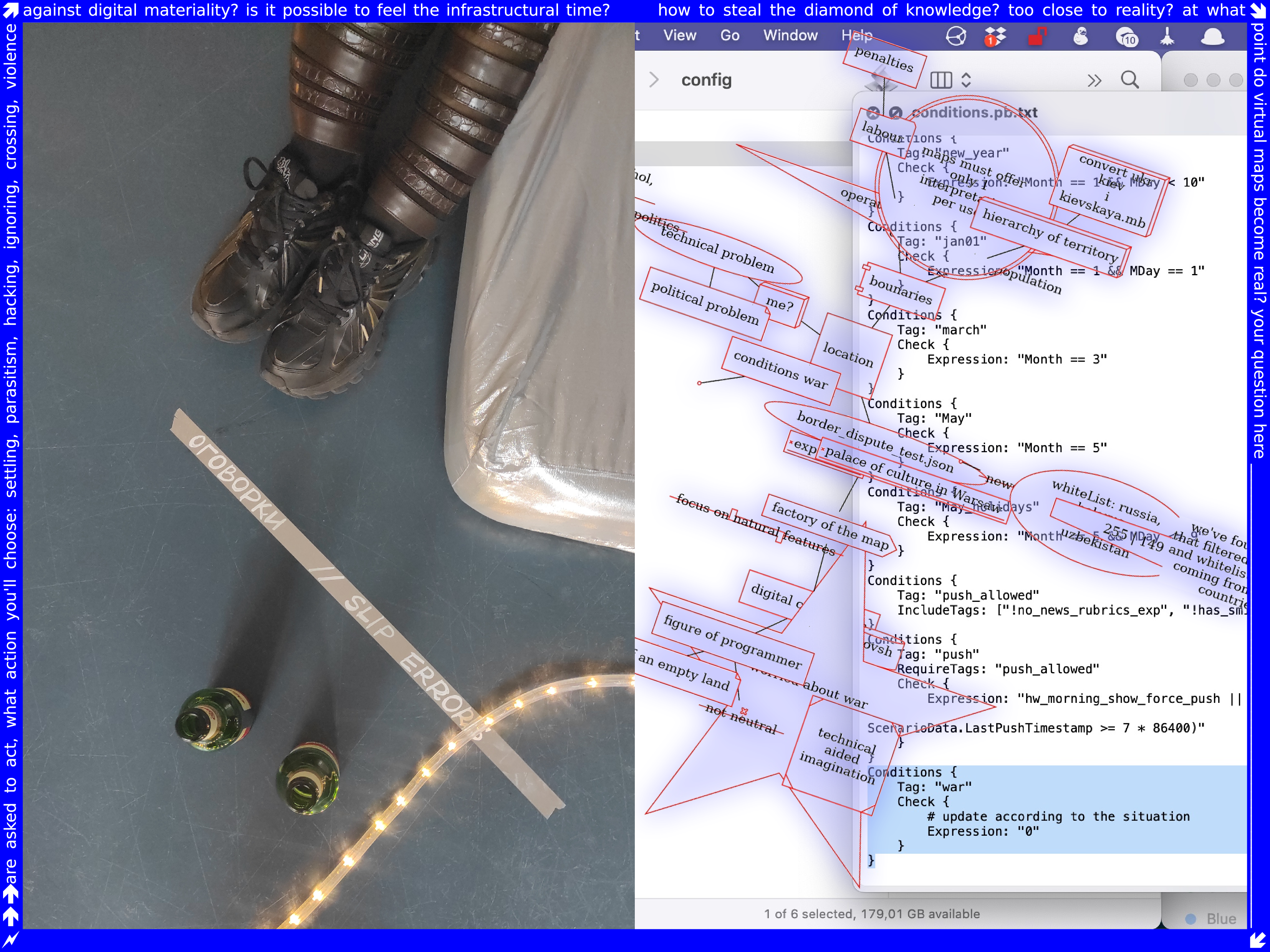
June 2024
Sowing Unrest: Biennale Matter of Art 2024, Prague (CZ)
visual narrative
Sowing Unrest – the Biennale Reader was published on the occasion of the third Biennale Matter of Art. With newly commissioned as well as republished essays, conversations, poems, and artistic contributions, it grafts the two curatorial threads of the biennale—Aleksei Borisionok’s interest in workers’ movements and Katalin Erdődi’s focus on rural change—in order to talk about the past, present, and future of political movements across the rural–urban divide. How do people in rural areas organize to effect change in society? How can people strike and achieve their political demands? How can care be organized as a basis for solidarity and mutual aid? We are curious about the various ways in which unrest—a state of dissatisfaction, disturbance, and agitation—can grow in unexpected places.
Texts: Kateryna Aliinyk, Aleksei Borisionok, Ramona Duminicioiu, Katalin Erdődi, Fernando García-Dory, Kateřina Kolářová, Tomasz Rakowski, Marta Romankiv, Galina Rymbu, Olia Sosnovskaya, Alex Toshkov, Tomáš Uhnák, Maja Vusilović
Visual Essays: Orla Barry, eeefff, Katheryna Lysovenko, Tamás Kaszás
The reader was edited by Aleksei Borisionok and Katalin Erdődi, curators of the Biennale Matter of Art 2024.
Session of The School of Algorithmic Solidarity in frame of decolonial research laboratory “Mycelium”
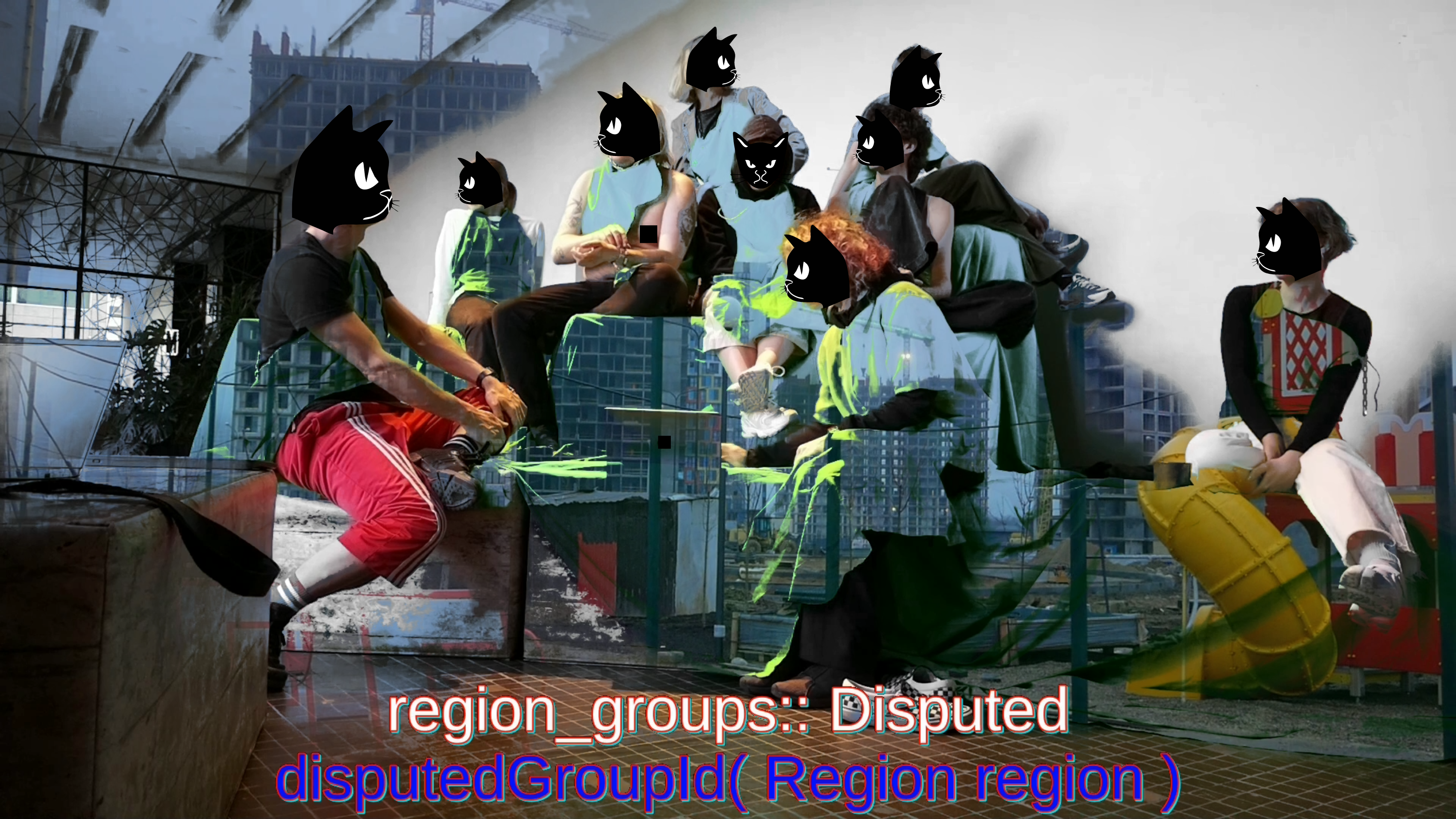
15 May 2024
Solidarny Dom Kultury “Słonecznik”, Warsaw (PL)
Reading-Session
Can Colonialism Be Encoded into Algorithms?
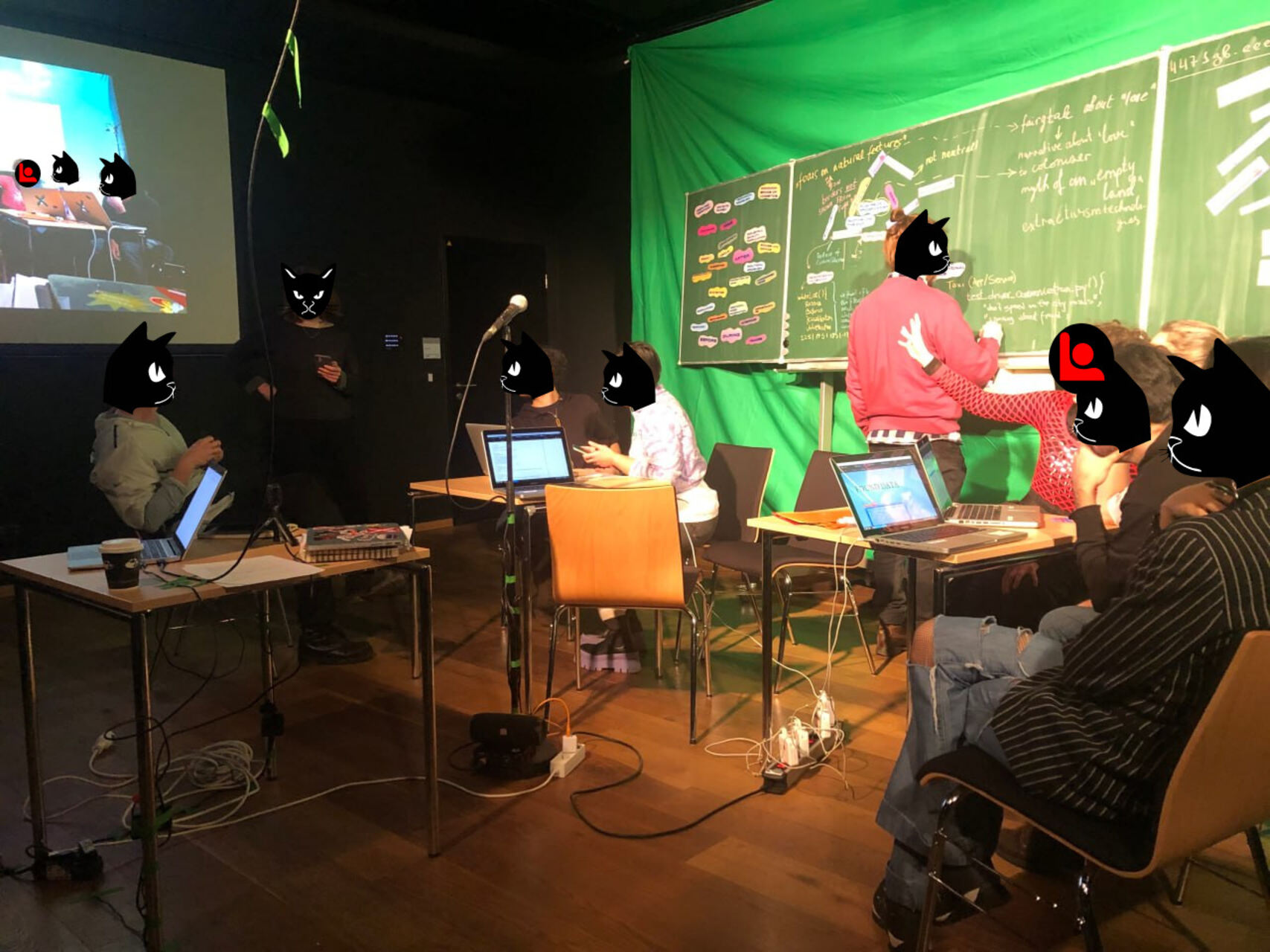
10 May 2024
AMRO 2024, Linz (AT)
Reading-Session
The session will look into the recent leaked source code of biggest IT corporation which is very close to russian government. The source codes of the “Yandex” company were copied in July 2022 and published in the Internet on January 25, 2023. The size of the leakage is 44,71 gigabytes. An artistic duo eeefff proposes to read the code collectively, diving into:
encoded ownership on territories,
exceptional cases,
patterns of digital colonialism,
how-to-spell constructedness,
“pure web,”
encoded violence,
fairy tales about oil,
Conditions: {
Tag: "war"
Check {
# update according to the situation
Expression: "0"
}
}
/* If Russia (country) from Russia's point of view (001) contains Crimea and from Ukraine's point of view (UA) doesn't contain Crimea, we build 2 variants of Russia. It means, that countryToRecognitionSubjects contains Russia [001, UA]. */AMRO24 - Festival dedicated to Art, Hacktivism and Open Culture. Art Meets Radical Openness is a biennial community festival for art, hacktivism and open cultures. It provides a space for discussion and resistance against technological monoculture, and for sharing and learning together on contemporary issues of our networked times.
Can Colonialism Be Encoded into Algorithms?
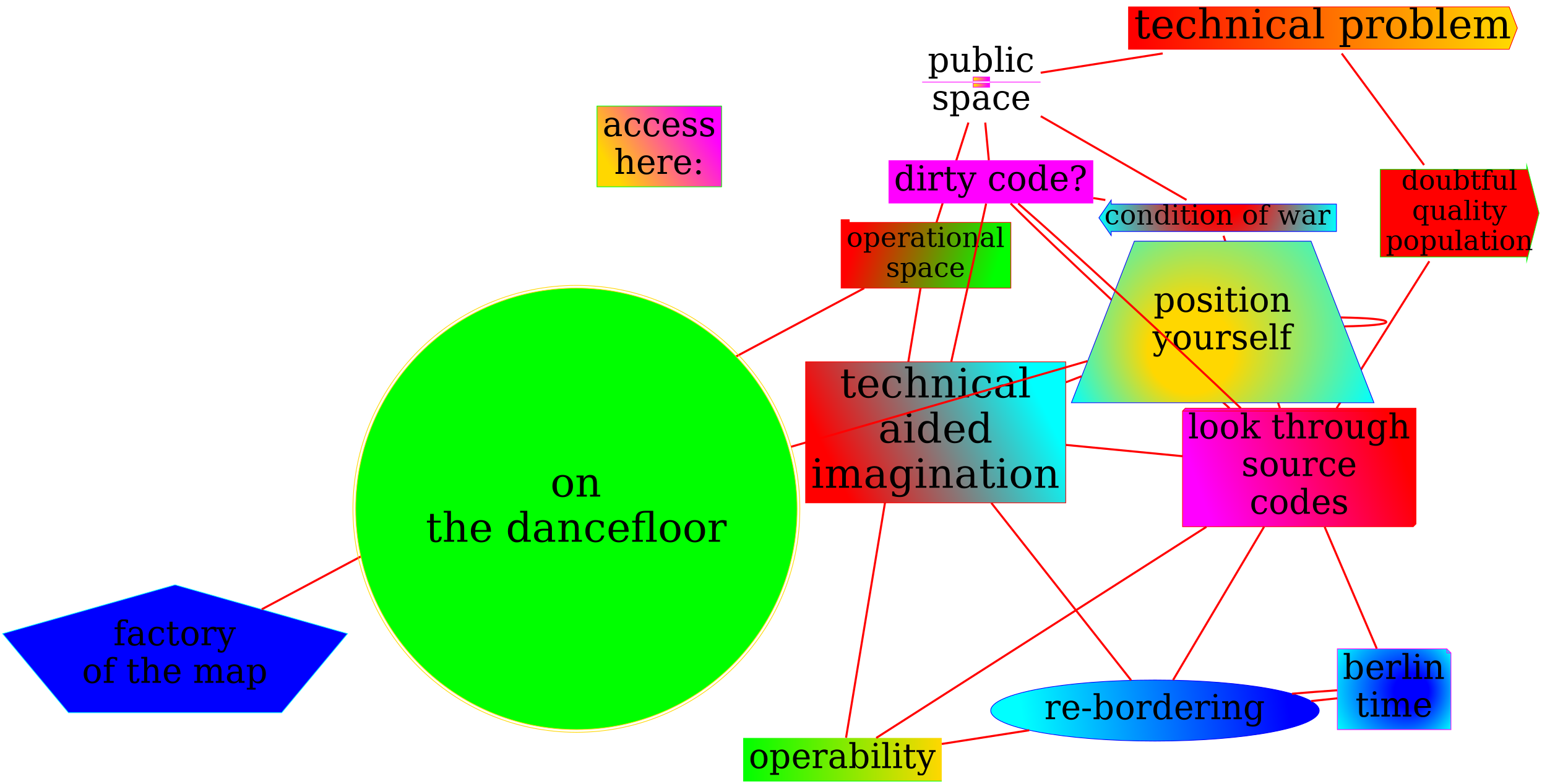
09 May 2024
AMRO 2024, Linz (AT)
Talk
AMRO24 - Festival dedicated to Art, Hacktivism and Open Culture
EEEFFF (Berlin/Minsk) will host a workshop during the festival in which they will analyse Yandex’s algorithm and uncover forms of coded discrimination. They will present their insights in this talk.
Art Meets Radical Openness is a biennial community festival for art, hacktivism and open cultures. It provides a space for discussion and resistance against technological monoculture, and for sharing and learning together on contemporary issues of our networked times.
42 cooling fans @ Obsolet exhibition
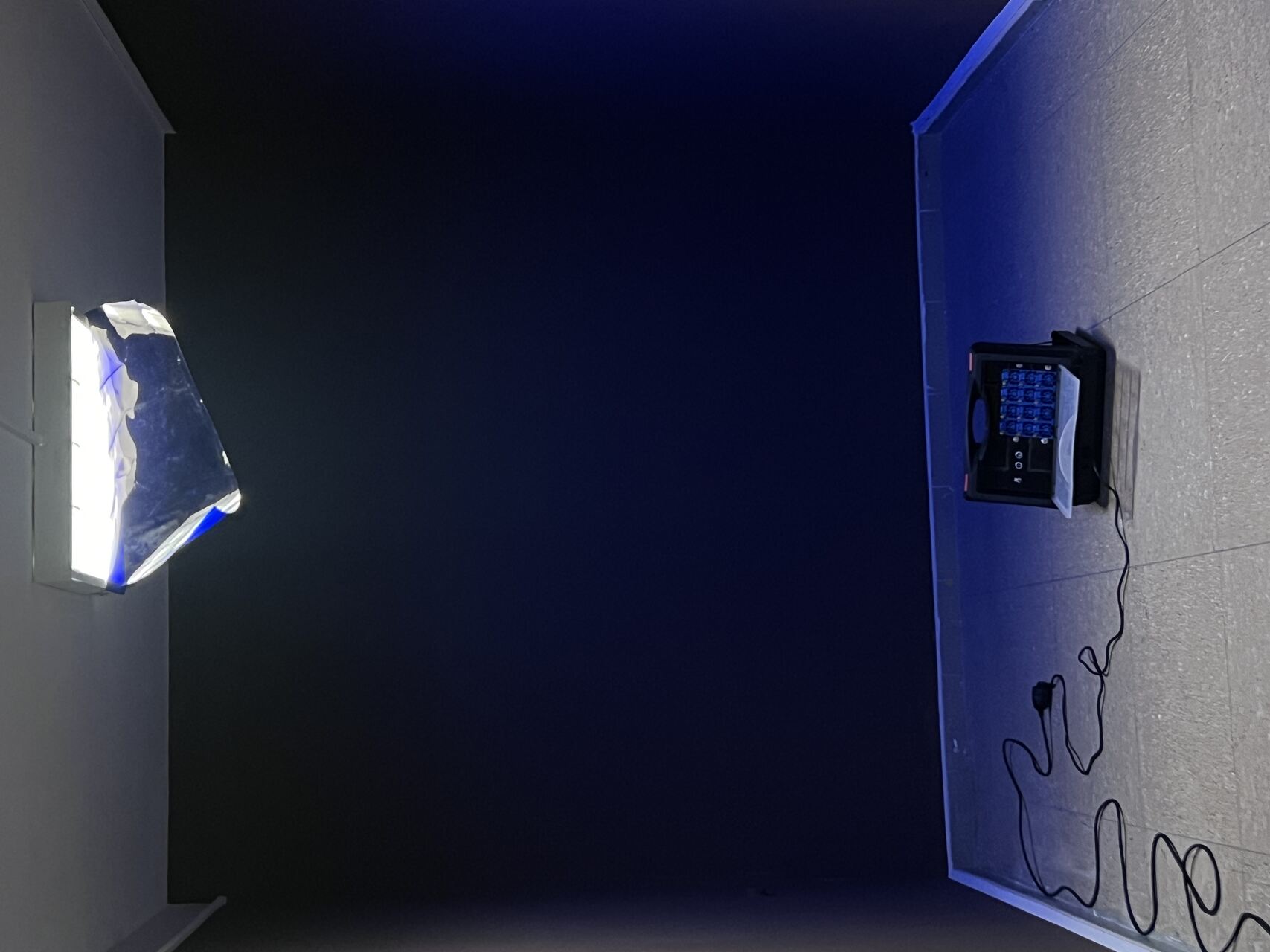
17 Feb - 26 Mar 2025
Projektraum Galerie M, Berlin (DE)
group exhibition
Can colonialism be encoded?

23 Feb 2024
Critical Data Lab of Humboldt University Berlin (DE)
Laboratory
“Yandex is an artificial intelligence company… we use machine learning technology to create very smart products.” This and much more is known about Yandex. It is also known that Russia’s largest IT company is very close to the Kremlin.
Not so long ago, the company’s source code was leaked – 44.71 gigabytes in total. It was copied in July 2022 and published on the Internet on January 25, 2023, allowing completely new insights.
The artist duo eeefff proposes to study the code. Together with BG and CDL, eeefff are opening a one-day School of Algorithmic Solidarity at the Humboldt University in Berlin. They will prepare a tool to search the code and enable searchers to delve into the following areas: coded ownership of territories, incidents, patterns of digital colonialism, coded violence, fairy tales about oil, conditions, and more.
The goal is to focus on the infrastructures of coloniality and the infrastructures of solidarity that oppose them.
When is it?
February 23rd (Friday)
The room will be open from 14:00 to 20:00. You can come at any time. Please reserve at least 1.5 hours to walk through the speculative public space environment of the leaked code.
Where?
Humboldt University Berlin
Georgenstraße 47, 0 Floor, Media Theater
For whom?
Activists, artists, researchers and tech-savvy people are welcome. No programming or other skills are required.
What?
eeefff will lead the session, prepare a tool to search inside the code, exercises for rehearsal and collective playing out of the programming code lines.
How to participate?
Please send an email to the School of Algorithmic Solidarity (algosolidarity(at)eeefff(dot)org) and you will receive information and instructions.
What is the School of Algorithmic Solidarity?
The School of Algorithmic Solidarity focuses on the infrastructures of colonialism and the infrastructures of solidarity that oppose them. Specifically, it looks at infrastructural time, algorithmic abstractions, and bodies. In form, it can be a collective experience / radical pedagogical practice / walk to the specific location / LARP protocol / digital togetherness / open-ended situation / affective temporary training zone.
Who is behind it?
eeefff (Minsk/Berlin) are artistic cooperation / made-up institution / cybernetic political brigade / poetic computations / hacking unit / queer time. It is neither one nor all of these. Active since 2013, eeefff creates software-based projects, publications, networks and platforms that critically explore digital labor, value extraction and community formation. Methods include: public actions, online interventions, performative seminars, software and hardware hacking, framing environments and choreographing social situations. Co-organizer of several events, spaces and agencies, including Work Hard! Play Hard!, Flying cooperation, School of Algorithmic Solidarity. More information can be found here.
This project is a collaboration between berlinergazette.de (BG), Critical Data Lab (CDL), and eeefff.
● 2023 →
Economic Orangery
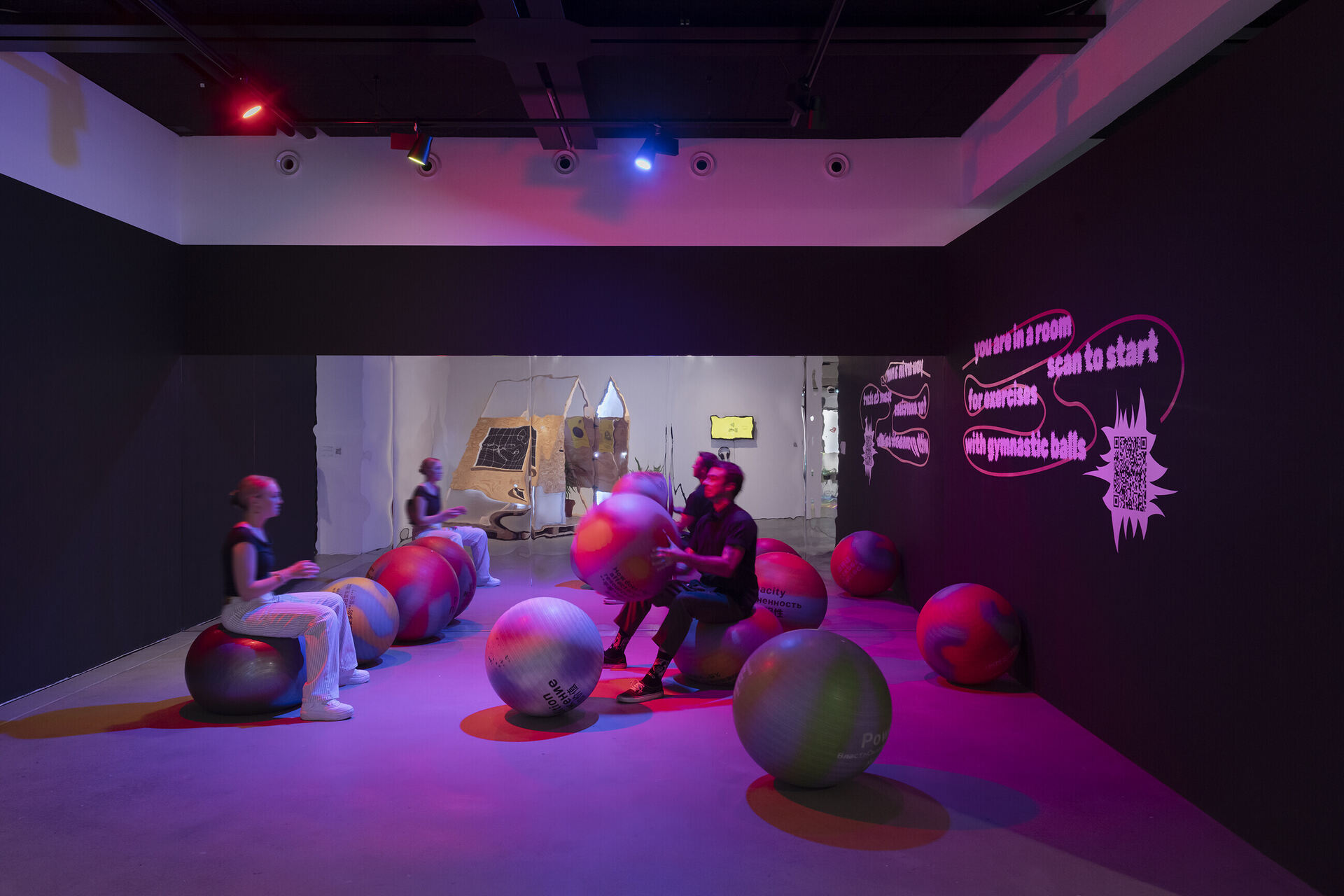
Installation, bot aided exercises with gymnastic ball
TBA, 2023
Haus der elektronischen Kunst, Basel (CH)
This is your companion for doing exercises on gymnastic balls. It will guide you through body activities. First you need to choose the obsession that you’d like to train. And to choose the corresponding gymnastic ball.
Originally it was made as hybrid space for exercises on gymnastic balls. It was installed in Basel and Bejing.
The international group exhibition «Exploring the Decentralized Web – Art on the Blockchain» reviews the recent developments of blockchain and Web3 from an artistic perspective. It addresses an audience curious about art productions that creatively employ blockchain technology or ingeniously exploit the possibilities smart contracts offer. At the same time, the works assembled here invite viewers to reflect on the implications the political sphere and crypto market economies have on each other, as well as many other questions these technologies raise about how they shape our online interactions and impact our economies and societies.
The exhibition marks the conclusion of the project «HEK Connect – cultural participation in the age of a decentralized Internet», funded by the Federal Office of Culture and the departments of Culture Basel-Stadt and BaselLandschaft, which enables HEK’s innovative positioning as a cultural institution in a globally networked digital economy. This also includes the creation of a blockchain-based circle of friends and events, both online and offline, such as panel discussions, workshops, and collectively initiated projects.
The exhibition also connects to HEK’s preceding exhibition, «Collective Worldbuilding – Art in the Metaverse», with its focus on new online worlds, referred to as the metaverse, and the creation of DAOs.
Both exhibitions are accompanied by a combined catalogue with critical texts by experts in the field, offering a comprehensive and accessible analysis of topics related to Web3, blockchains, DAOs, and the metaverse. An extensive educational program accompanies the exhibition, providing opportunities to critically engage with blockchain and Web3 technology and its creativeapplications.
installation view / photo by FranzWamhof
Sensory room with 42 cooling fans
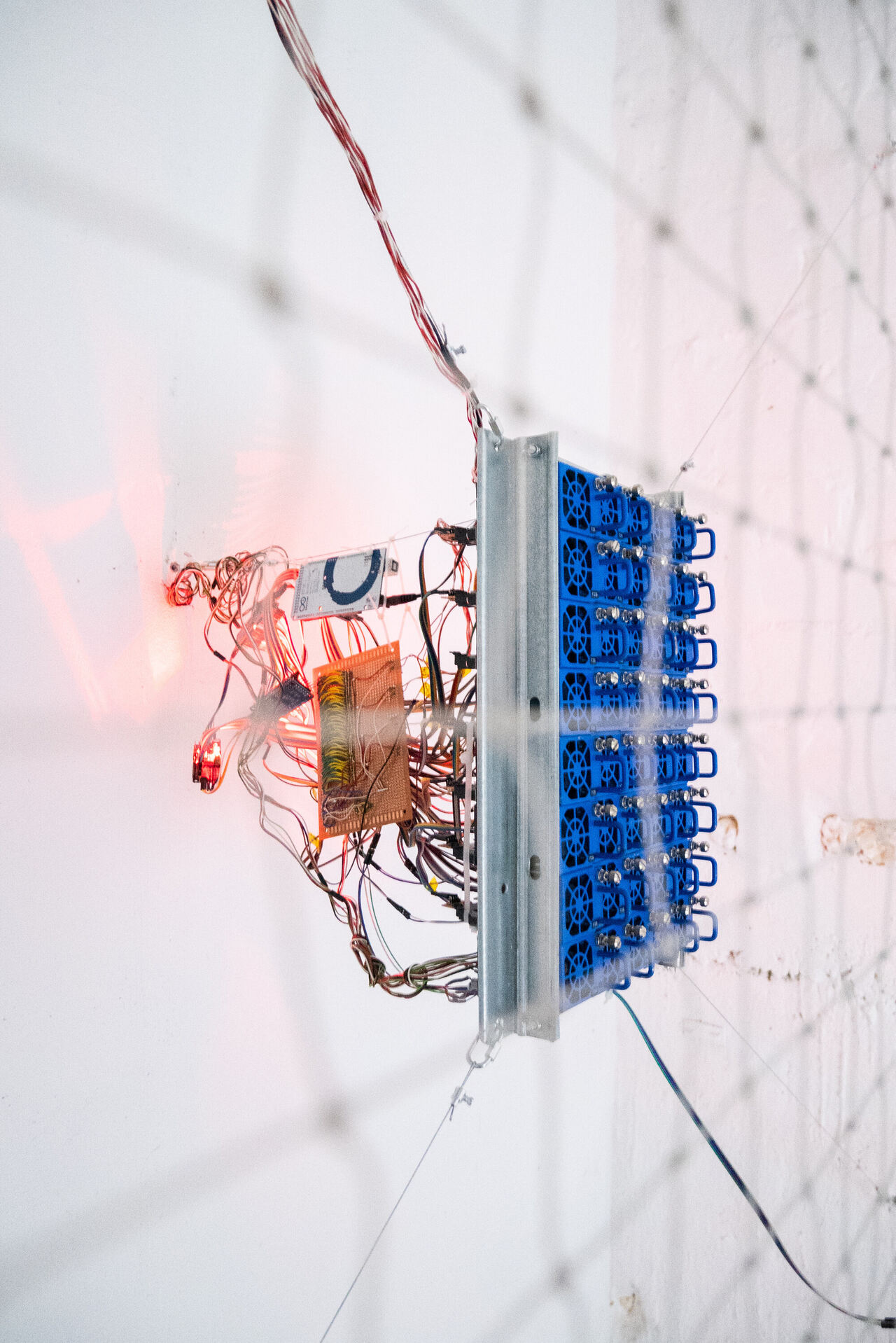
Sep — Oct 2023
Speichern, Potsdam (DE)
Sensory room
infrastructures of “Artficial Intelligence”
November 2023
Laboratory
Academy of Arts, Berlin (DE)
Outsourcing Paradise
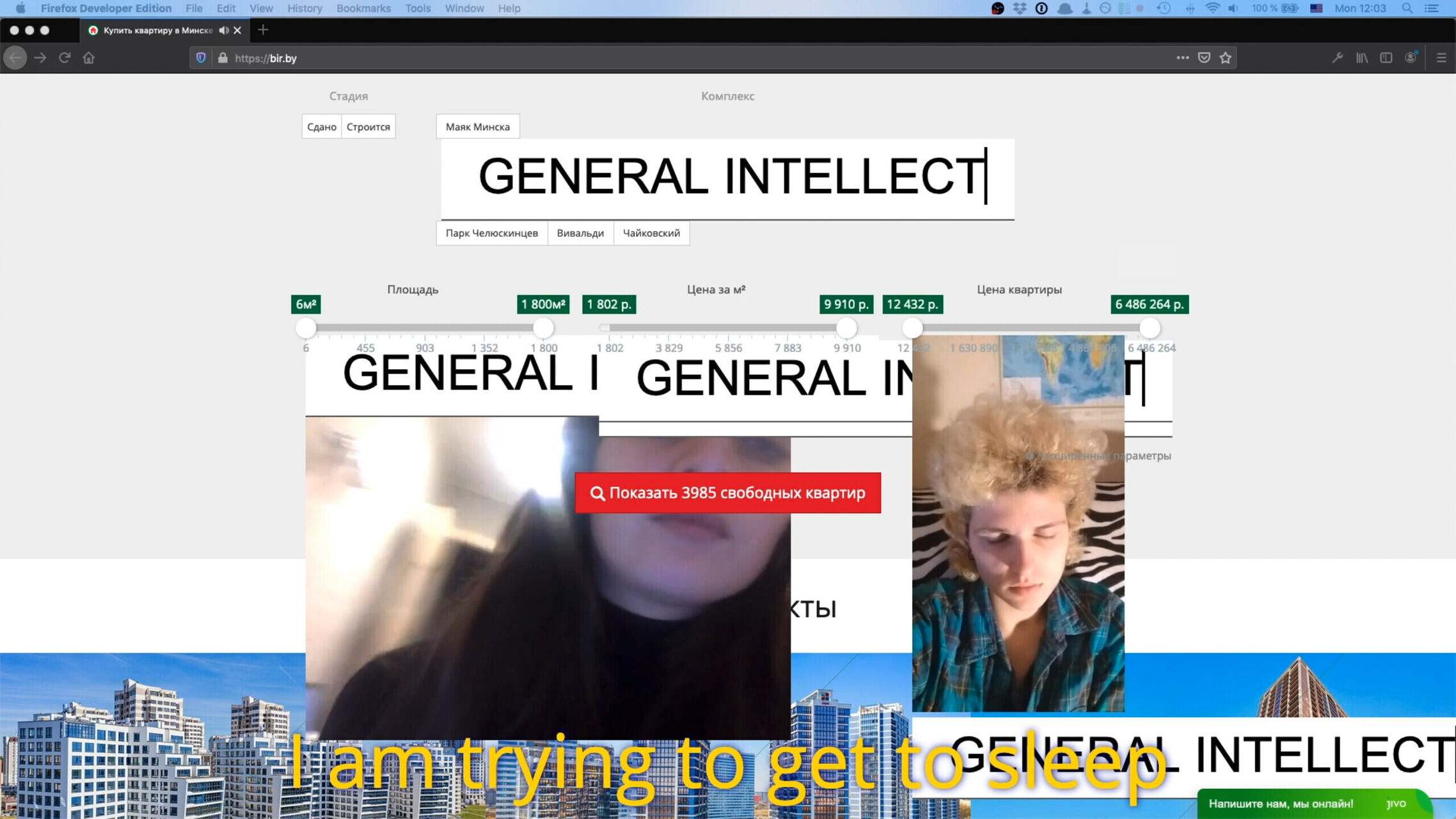
lecture at LABORING IMAGES / IMAGES OF LABOR conference
TBA, 2023
FAMU, Prague (CZ)
LABORING IMAGES / IMAGES OF LABOR – INTERNATIONAL CONFERENCE
10 November 2023, 1PM – 6PM FAMU in Prague, Smetanovo nábř. 2, 116 65 Praha 1, Room U1
Opening Remarks
Images, Saccades and Fixations; The Photographic Elaboration of Computer Vision – Nicolas Malevé (Aarhus University)
Outsourcing paradise(parasite) – eeefff collective
Gig Economy Art and Its Dark Matter – Silvio Lorusso (Lusofóna University & Design Academy Eindhoven)
Serious Work – Helga Lutz, Daniel Eschkoetter, Eva-Maria Gillich (Bielefeld University)
Concluding Remarks & Book Presentation (Jussi Parikka: Operational Images. From the Visual to the Invisual)
Harun Farocki is known for coining the term “operational images”, images which take part in technical operations. Importantly, operational images are images that labor, they are literally working images, fulfilling a task within an operation. For Farocki, operational images take part in automation of vision labor: the eye labor of technicians seated in control rooms, surveillance centers, and military training facilities, monitoring automated systems, is replaced by automated systems that monitor or analyze data. Suchautomated image systems have become ubiquitous. And yet, it seems that automation of vision has increased the demand for the labor of human vision. In fact, machine learning systems demand millions of tagger’s and annotators’ eyes looking at images, their retinas becoming indispensable elements in the human-machine interface. This particular human vision labor is machine-like, dull, repetitive, the kind of work about which it is assumed that it can be, will be or even should be soon replaced by technology, a pointless job.
What is the relationship between labor of vision embedded in machine-human systems, disciplined to be as efficient and productive as possible, and artistic, aesthetic vision? What are the histories of labor of vision and seeing that are part of technical processes? What kind of artistic strategies tackle the current, invisibilized and marginalized vision labor behind machine learning algorithms? How can we continue Farocki’s legacy that problematized the ideological invisibility of labor (image-making labor in particular)? What critical theories grasp the situatedness of humans who perform this sort of labor; in other words in what ways is this labor gendered, classed, and located in peripheries?
too close to reality? at what point do virtual maps become real?
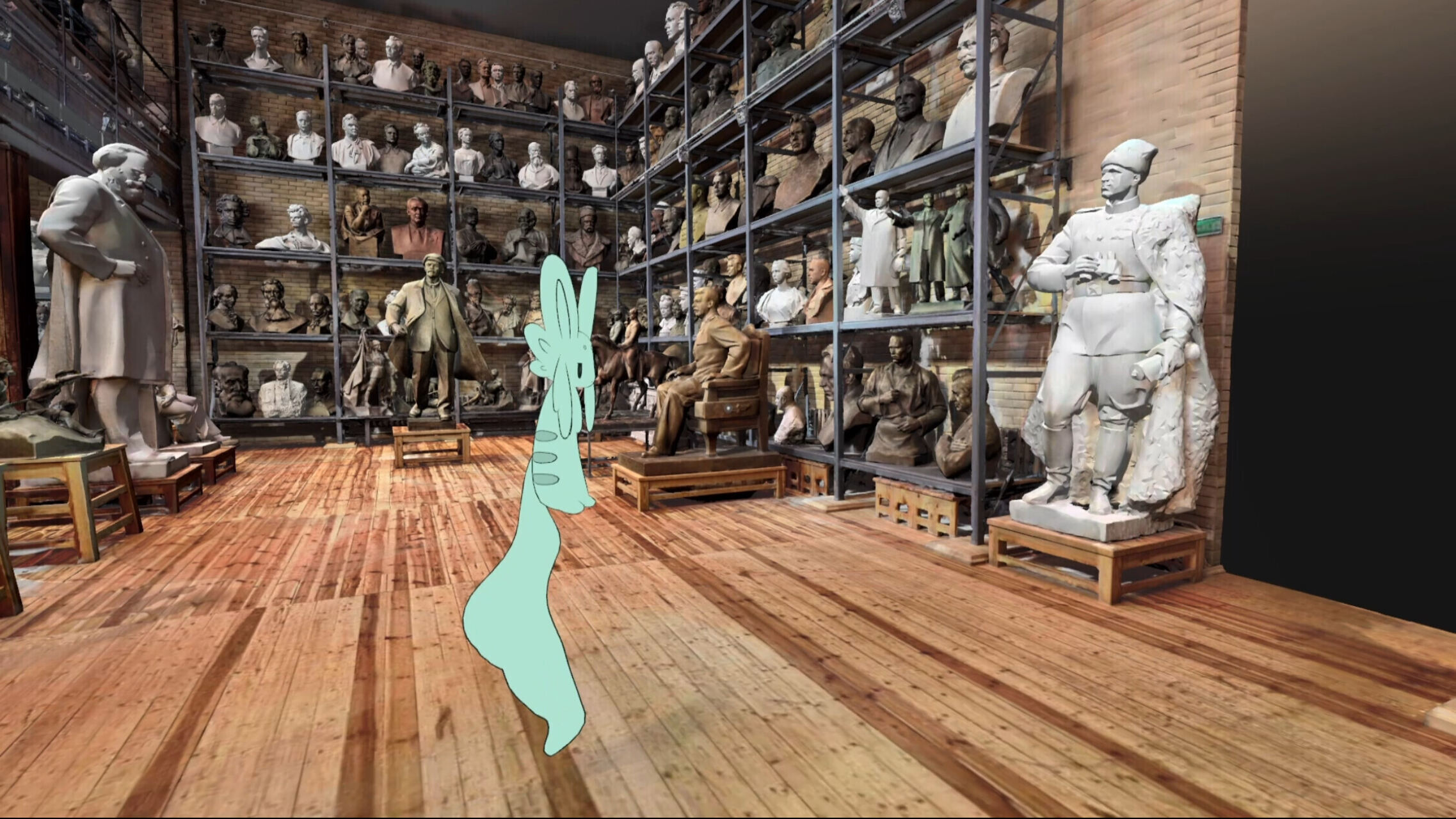
School of Algorithmic Solidarity @ V Kyiv Biennial / together with Clemens von Wedemeyer
October 17–December 17
Augarten Contemporary, Vienna (AT)
The School of Algorithmic Solidarity In collaboration with eeefff (Dzina Zhuk and Nicolay Spesivtsev) Session within the space of Open Objects Open Objects offers virtual entry to a museum in Minsk, Belarus: the former studio of sculptor Zair Azgur contains hundreds of statues from the era of Socialist Realism and beyond. Deploying 3D glasses, visitors can move around the VR space and are confronted with manifestations of Belarus’ complex history under the influence of the Soviet Union.
The studio can be seen as a giant time capsule with remnants of political figures from the communist canon – representing Marx, Lenin, and Stalin – but also some unexpected faces and significant statues from other periods in Belarusian history. In its digital form, the archive invites re-negotiation of its narratives, uncovering buried histories and subjectivity to repair the trauma it evokes. The public program, a collaboration between Clemens von Wedemeyer and eeefff, includes The School of Algorithmic Solidarity by eeefff, to address dispersed co-acting and institutioning. Participants explore socio-political narratives linked to the Azgur Museum, bridging digital platforms and the VR space in Vienna. The school investigates infrastructural time, algorithmic abstractions, and bodies, offering a collective experience and open-ended training zone. Open Objects was originally initiated by Timur Veles and conceived with the support of Samuel Richter. VR Space by CyberRäuber.
Strike Event (as members of WH!PH! working group)
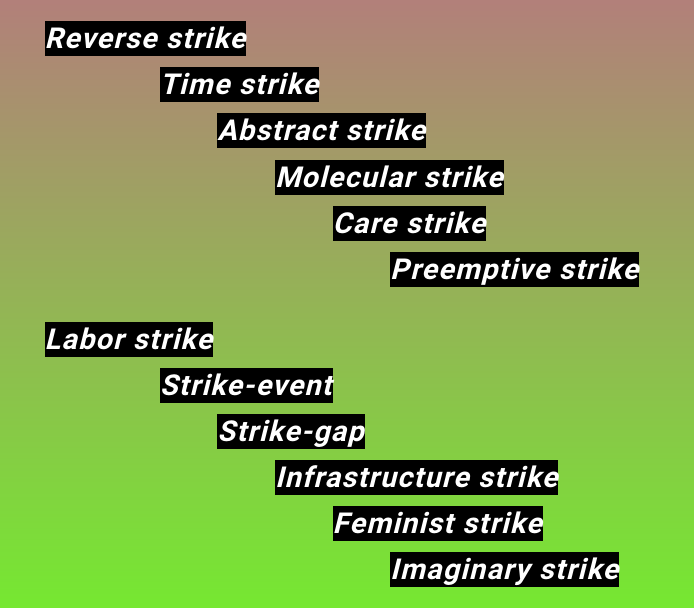
August 2023
PAF Summer University, Saint-Erme (FR)
Performative workshop
how to steal the diamond of knowledge?
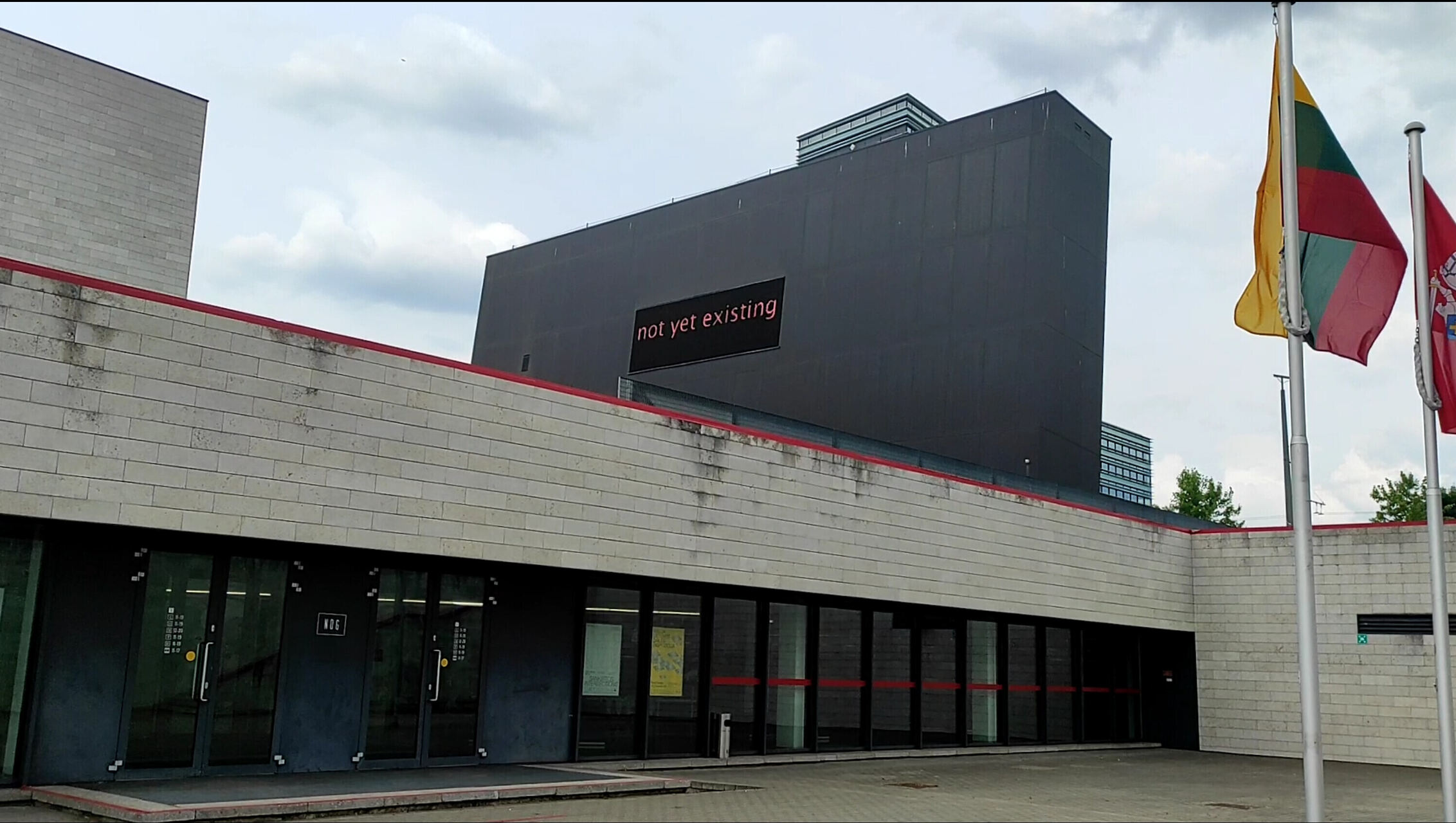
July 2023
NGA, Vilnius (LT)
Performative workshop in frame of If Disrupted, It Becomes Tangible
Infrastructural Strike And Time: how to disturb military transportation

lecture
TBA, June 2023
Fusion festival (DE)
Algorithmic solidarity session
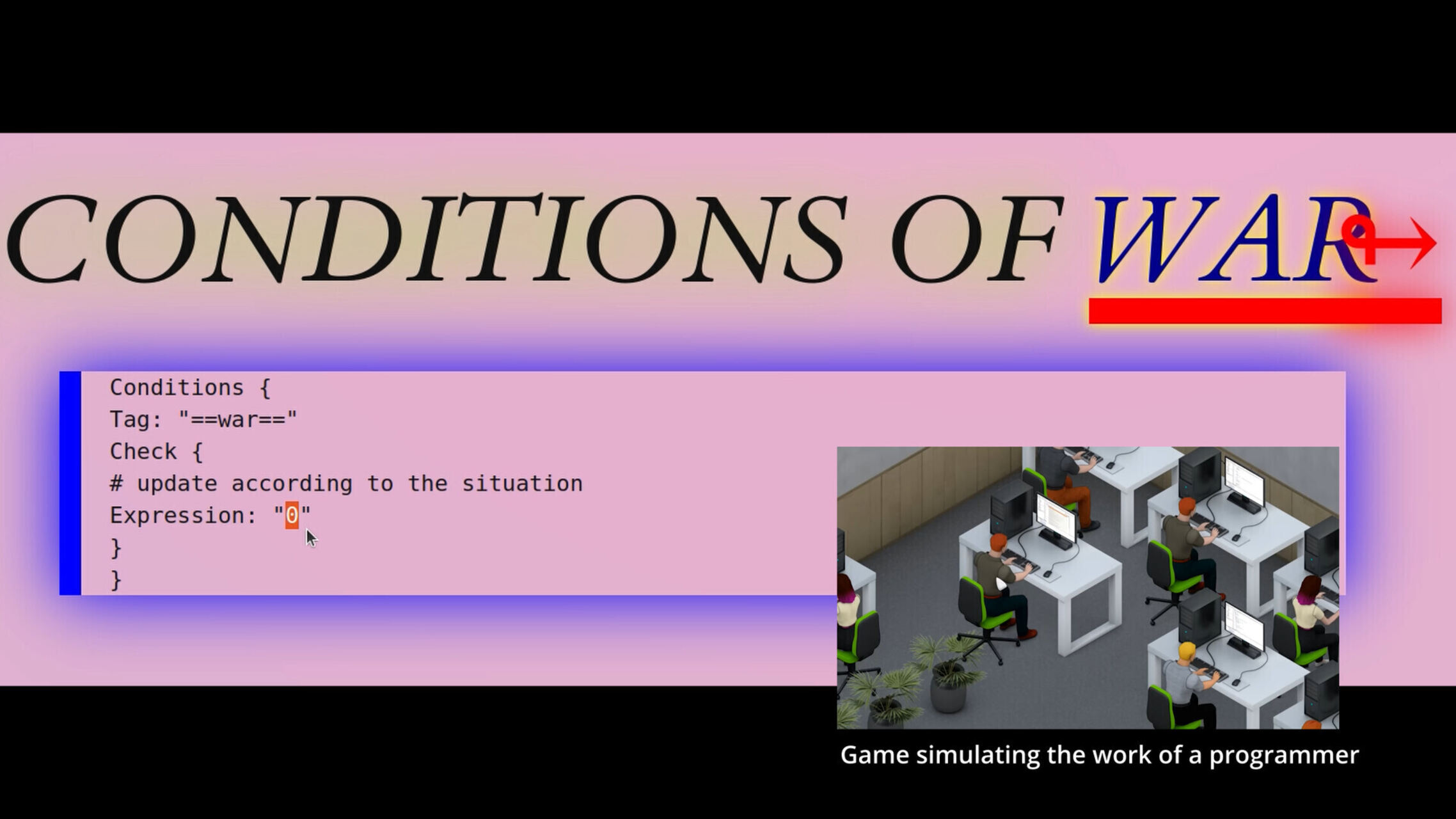
April 2023
[ome] @ Kunstraum Kreuzberg, Berlin (DE)
Reading-session of the leaked code
Tactical Forgetting
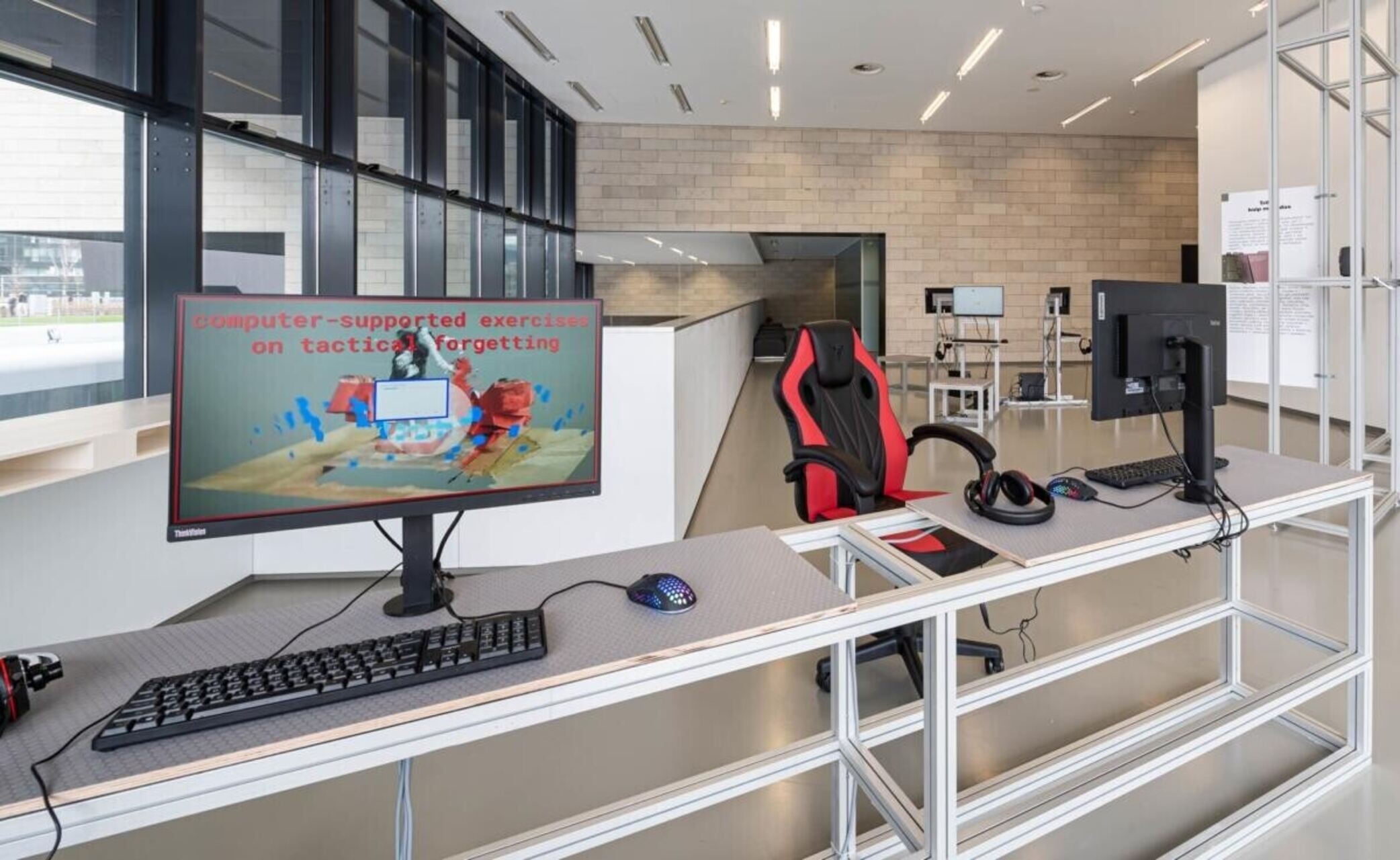
March — June 2023
NGA, Vilnius (LT)
installation @ If Disrupted, It Becomes Tangible
Tactical Forgetting
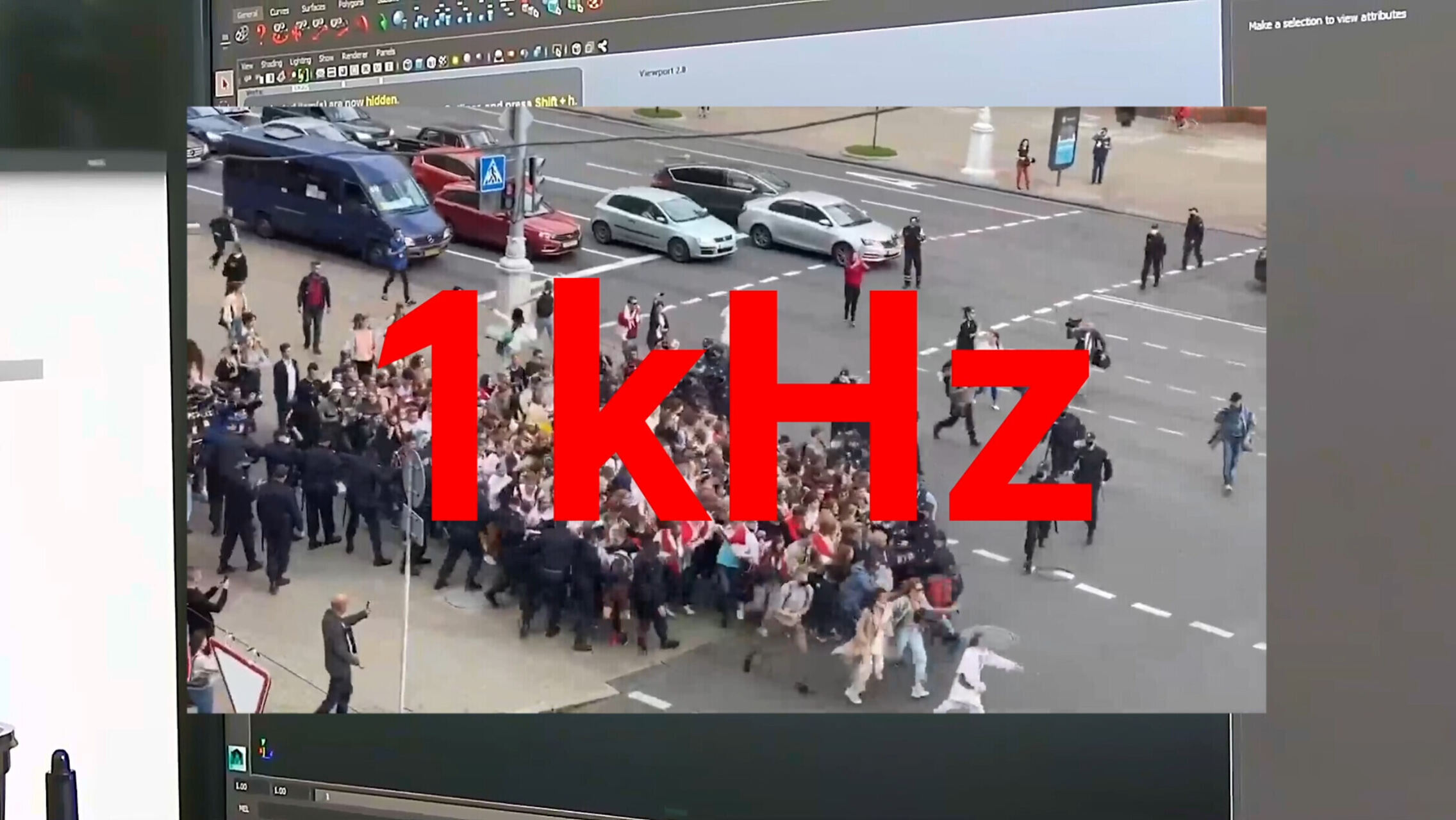
TBA, February 2023
diffrakt / Berlin (DE)
screening at The Common Sensuous | Спільне Чуттєве
Tactical Forgetting
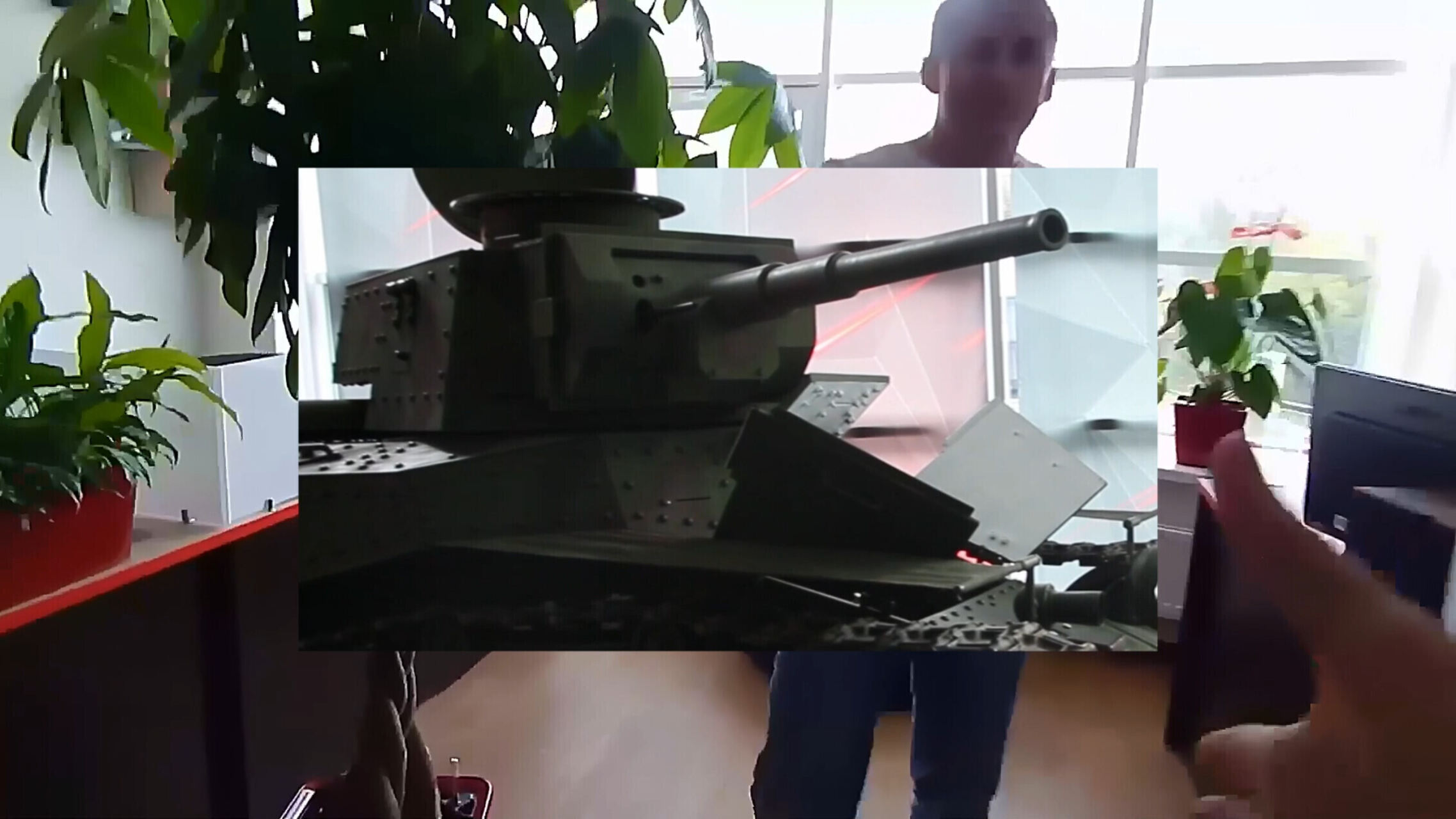
Jan — March 2023
screening at “Mental Ecologies of War”
On Seeing Where There’s So Much To See

TBA Jan 2023
Transmediale 2023, Berlin (DE)
discussion
Navigating past the limitations of human vision, optical media and signals present a form of seeing beyond the visual spectrum. Signals move through cables, data servers and networks – and time and space – transforming and arranging what it sees to make an image. These transformations – effects – when read through the lenses of political control, gender, and race, are intimately tied to – affects – individual and collective bodies and memories.
Speaking to the protocols of signals and their choregraphies, eeefff, Oleksiy Radynski, and Solveig Suess and Louise Amoorewith moderator Elise Misao Hunchuck, explore the production of intimacies, identities, and temporalities that come about through the restriction or access to knowledge, determination of land transformations, displacement of humans and non-humans, tracking software, and the keeping or loss of records.
● 2022 →
Economic Orangery @ Time After Time: The Polychronicity in Blockchain
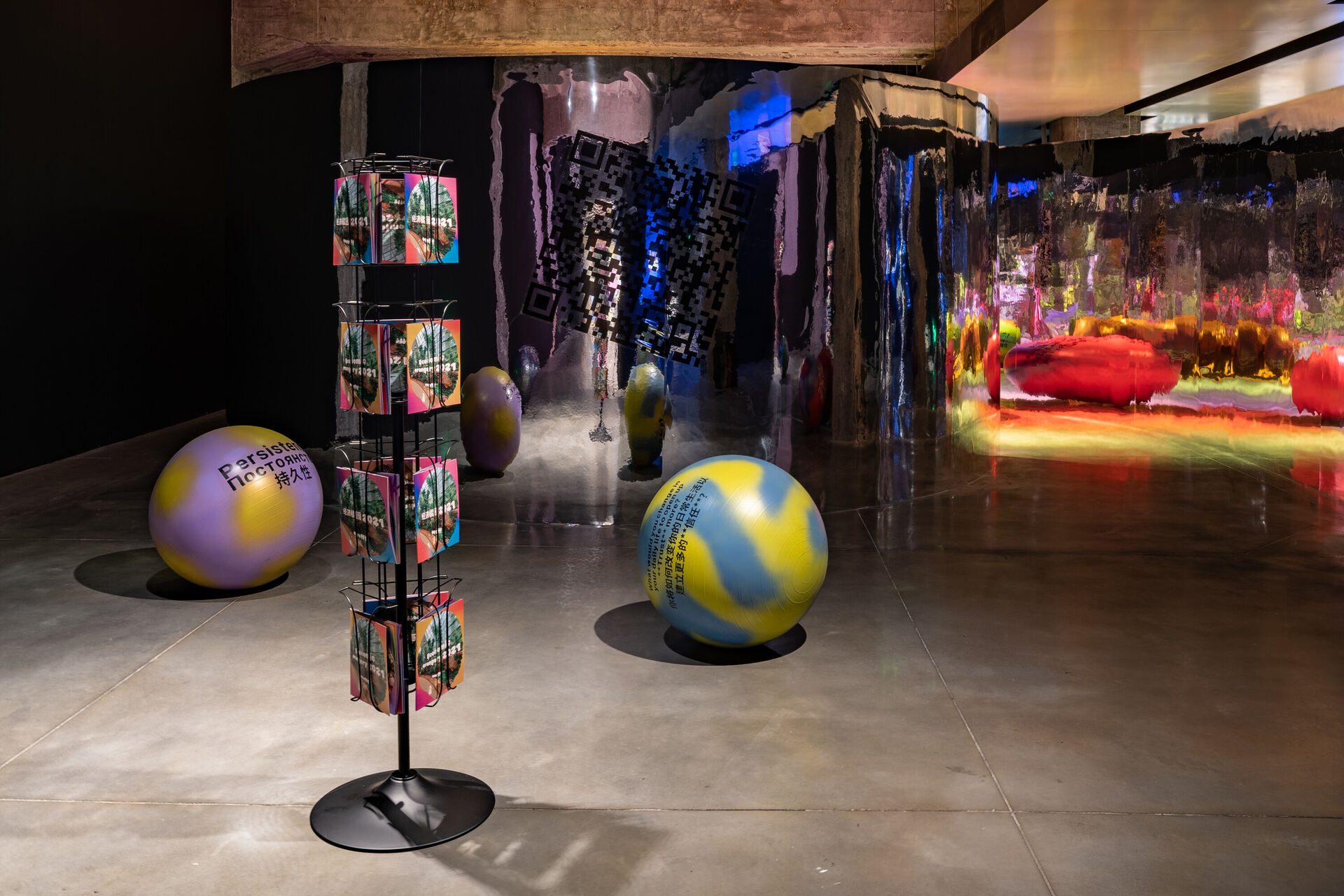
17 Nov 2022 — 31 Mar 2023
Hyundai Motorstudio, Beijing (CN)
Excercises with Gymnastic balls
Hyundai Motorstudio Beijing opens Time After Time: The Polychronicity in Blockchain, an exhibition that philosophically investigates a new timeframe in the data space based on the concept of blockchain, curated by Xin Bi, one of the two awardees of the Hyundai Blue Prize Art+Tech 2022.
Since its establishment in 2017 by Hyundai Motor Company and Hyundai Motorstudio Beijing, the Hyundai Blue Prize Art+Tech has been a prominent platform for recognizing and supporting emerging Chinese curators. By proposing annual themes, it fosters innovative and critical exploration of the major contemporary issues. The theme of the Hyundai Blue Prize Art+Tech 2022 is “Disruptive Futures” to ignite collective discussion on how to build a more diverse and sustainable future for humanity in the age of disruptive technology and drastic changes.
Time After Time: The Polychronicity in Blockchain engages with the theme through a critical and philosophical examination of the notion of time in the digital world. The artworks featured in this exhibition explore continued cyber time and discrete block time from the intersection of computer science, distributed technology, social relationship structures, and literature, exploring how the probabilistic nature of block time offers new opportunities for us to reconsider the possibilities of time and how discrete blocks of time create a myriad of pathways towards innumerable futures.
“Through the Hyundai Blue Prize Art+Tech, we hope to provide a global platform to inspire emerging curators to reflect on the futures we wish to create for humanity,” said DooEun Choi, Hyundai Motor’s Art Director. “The exhibition curated by Xin Bi prompts us to engage in a dialogue regarding various aspects of time and forms of technology in order to ensure a more equitable, healthy, and resilient future.”
The curatorial practice of Xin Bi is centered on the intersection of art, distributed technology, and contemporary socio- and sub-cultures. Xin Bi intends to reconsider the ethical relationship between technological development and ecological balance, as well as the infrastructure and sustainable technologies in the Web 3.0 era, through writing, experimentation, and prototype development.
Time After Time: The Polychronicity in Blockchain focuses on the temporal, social, and political order, the construction of consensus mechanisms, the circulation of energy and emotion, and the temporal slippages in technology time in search of the forks of time and the poetry of technology by constructing three parallel networks of time: Chimera Time, Energy Time, and Spime. Chimera Time (Algorithm-Time) explores the probabilistic nature of time through blockchain technology. Energy Time (Ecology-Time) critically discusses the conflicts and interdependencies between technological development and ecological balance. Spime (Social Connection-Time) merges time and space into one, inspecting the path of political, emotional, and community connections as well as the interpenetration of the digital and physical worlds.
Time After Time: The Polychronicity in Blockchain will continue until March 31, 2023. During the exhibition, visitors are encouraged to pause and envision our shared future at a time of rapid and unexpected changes and engage with the public programs to participate in the discourse.
The call for proposals for the Hyundai Blue Prize Art+Tech 2023 is currently ongoing, and five curators have been shortlisted under the theme of “Decentralized Reworlding”. Hyundai Motor Company will announce the two awardees and their respective proposals in December.
Artists: César Escudero Andaluz, Martín Nadal, Simon Denny in collaboration with Guile Twardowski and Cosmographia, eeefff, Cheng Guo, Helen Knowles, Lee Tzu-tung, Chuang Liu, Nascent (Paul Seidler & Max Hampshire) in cooperation with Amy Ireland, Yuri Pattison, Ruini Shi.
Is it possible to feel the infrastructural time?
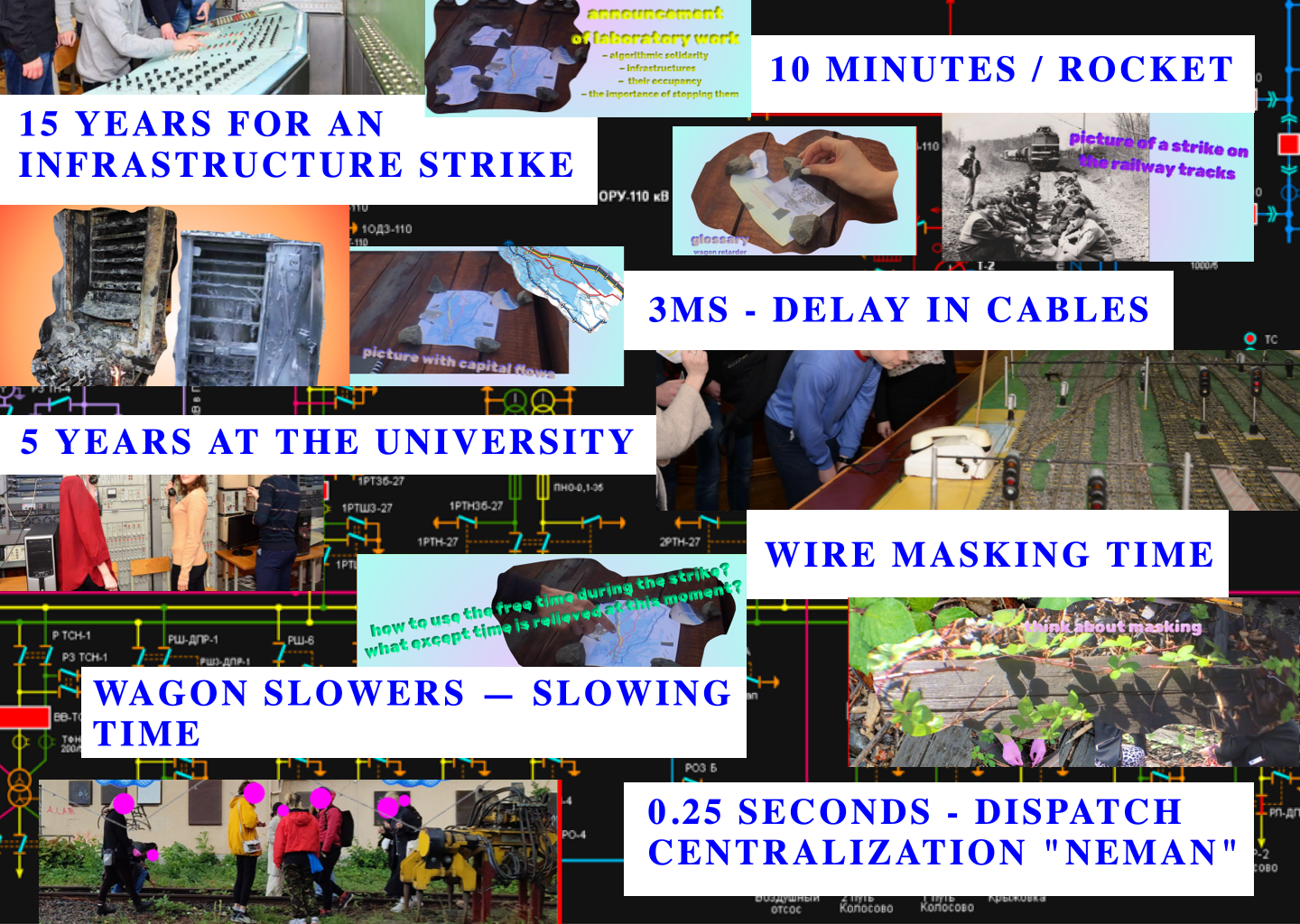
Session of School of Algorithmic Solidarity
17 Sep 2022
Documenta 15, together with INSTAR and antiwarcoalition.art, Kassel (DE)
The workshop ‘Algorithmic Solidarity’ focuses on the infrastructures of coloniality and the infrastructures of solidarity opposed to them. Specifically looking into infrastructural time, algorithmic abstractions and bodies.
The workshop’s choreography is based on the artistic research of Kassel’s infrastructure. After the practical workshop we will provide a discussion of the participants’ experience.
Time After Time: The Polychronicity in Blockchain / Beijing (CN) / 2022
Strike Event (as members of WH!PH! working group)

15 Sep 2022
Performative Seminar
Documenta 15, together with ZK/U, Kassel (DE)
The strike interrupts the logistical chains of oppression, destroys the infrastructures of the dominant temporalities, frees up energy, and provides resources to implement other kinds of relations. Job refusals, gestures of interruption, sabotage, queer time, solidarity. Departing from the fluidity of protest practices, finding ourselves in transit places, in the impossibility of going back [in time and discoursevely], we invite you to see if this movement and instability could be shared.
In light of the recent and ongoing political events — protest movements in Belarus, as well as Russian war against Ukraine, it is important for us to sustain networks of solidarity and support, to prolong collective gestures, to keep the politicization of co-presence and common actions.
Tactical Forgetting
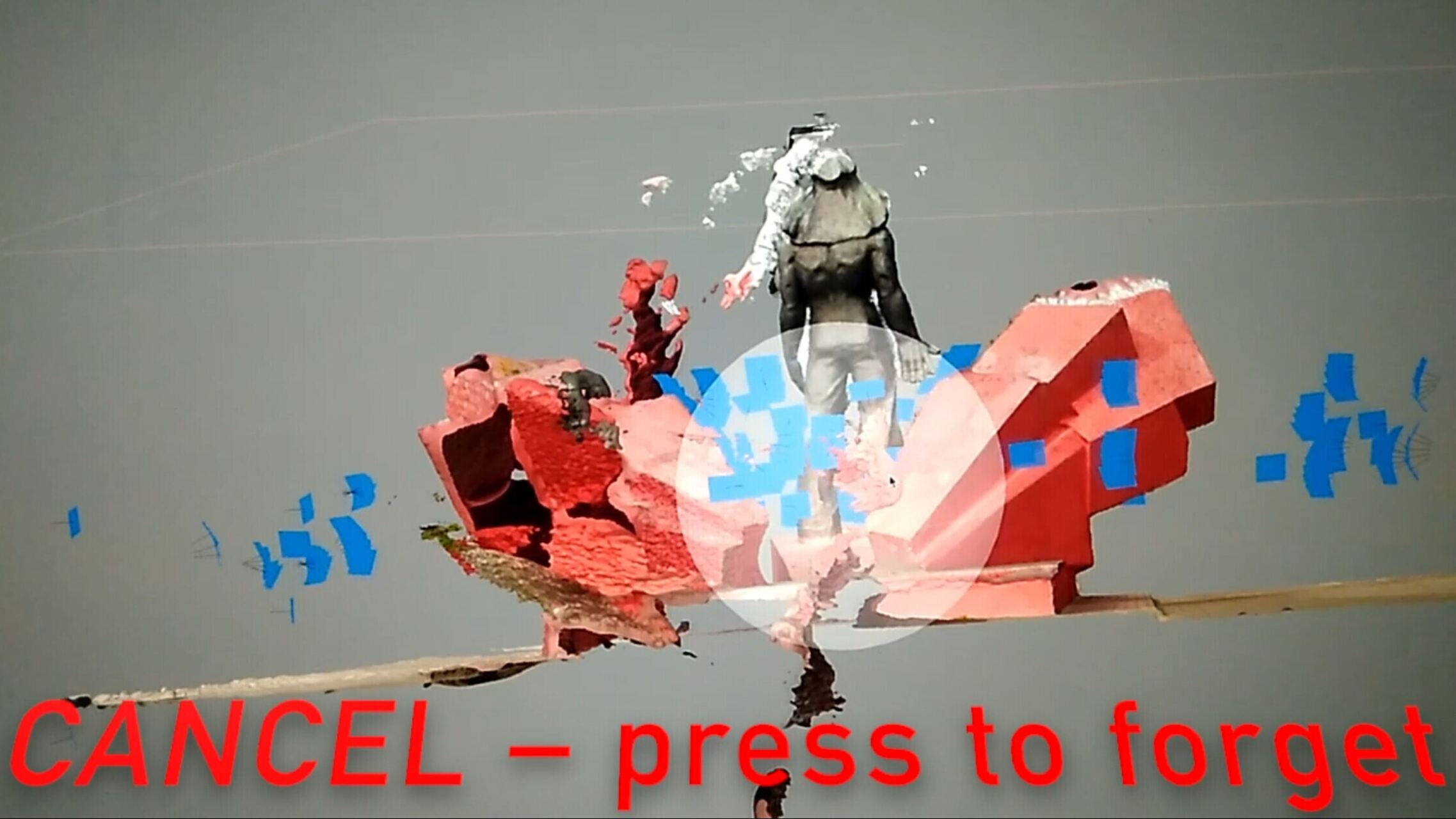
28 May 2022
Performance and discussion
CTM festival in frame of Lockdown Lessons III, Berlin (DE)
The January 2022 event »Radical Friends. Online DAO Summit for Decentralisation of Power and Resources in the Artworld« was one of the central Lockdown Lessons activities. Artists, activists, and academics explored the potential of blockchain technologies for art and civil society. New forms of organisation such as Decentralised Autonomous Organisations (DAOs) enabled by blockchain technologies can play a significant role for artistic and civil society infrastructures. After a short introduction of the DAOWO Global Initiative (Decentralised Autonomous Organisation With Others) by the moderator Sarah Johanna Theurer, curator at the Haus der Kunst and theorist on techno-social theories, and Mario Schruff, programme curator and initiator at the Goethe-Institut London, the participating artist and activist collective eeefff from Minsk will present their performance »Tactical Forgetting«. In it, computer-assisted exercises address digital memory and shared events that are more likely to be forgotten because of their sensitive content or community safety. The artistic intervention/presentation will be followed by a discussion on »Decentralized Strategies for Art and Activism«, which examines the potentials and pitfalls of decentralised digital infrastructures for art and civil society. Speakers Olexii Kuchanskyi – a Kyiv-based researcher, artist and queer writer whose main interests lie in experimental moving image art, its ecological effects, and critical cultures of nature, Radical friends co-curator Penny Rafferty, Mario Schruff, and Dzina Zhuk and Nicolay Spesivtsev (eeefff), reflect on these topics from the perspectives of their own artistic, curatorial, and activist practices
Tactical Forgetting
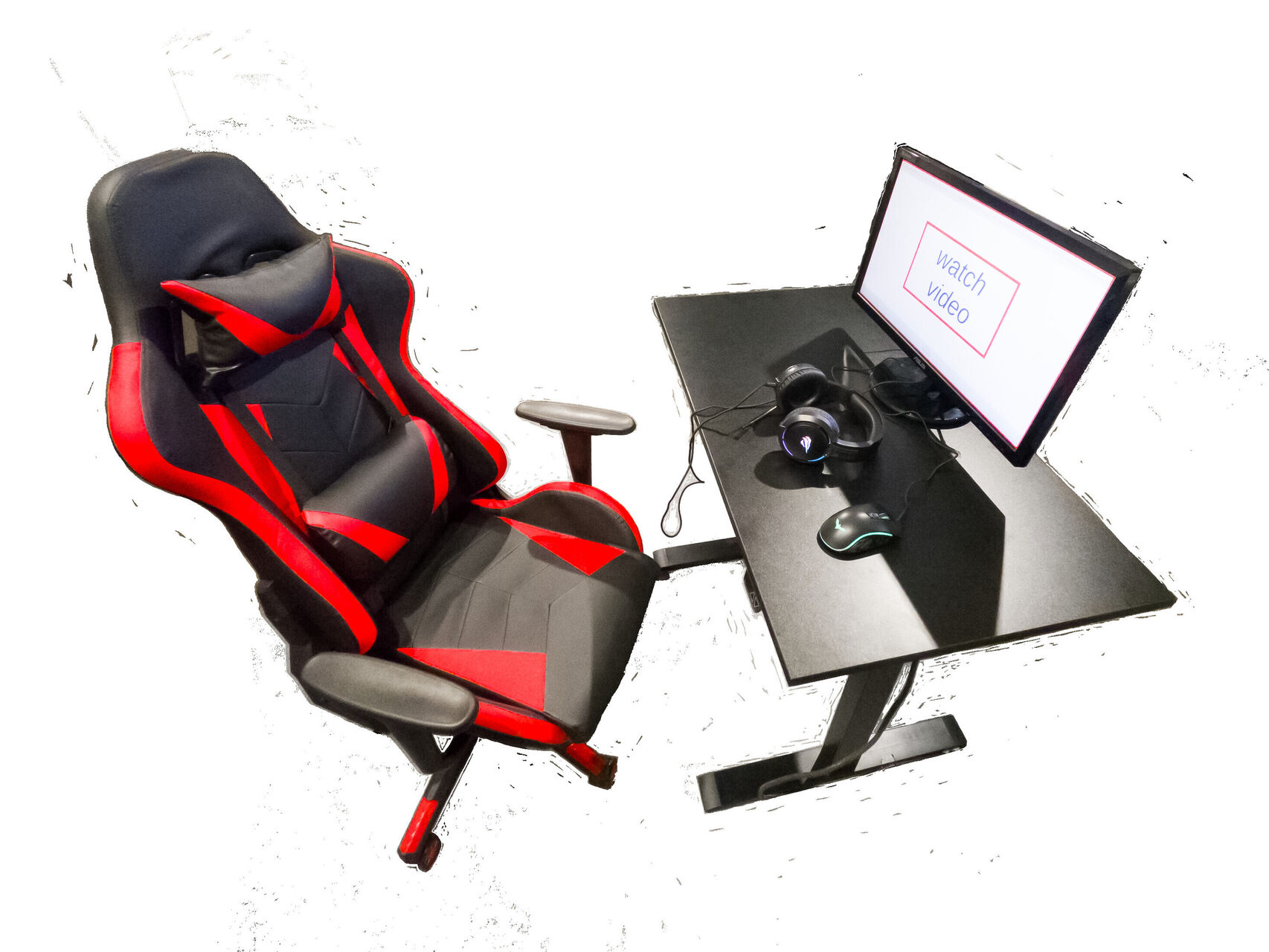
16 Jun 2022
at AMRO festival, Linz (AT)
Performace
Computer-supported exercises are unrolled around digital memory and distributed events that need to be forgotten rather because of their sensitive content, or rather because of community safety.
You are up to explore a training program that is built around memorising based on neutron activity, that is fed with connected elements and various scenarios reflecting Belarusian reality and solidarity infrastructure. With your answers you define how hard you would want to remember or rather to forget the materials you’ve just watched or listened to.
Narratives unfold within different temporalities and spaces: documentary footage of the Labour inspection to a large company in Minsk that develops military computer games, disappeared content from servers of Internet portals, recent usage of Belarusian infrastructure by the Russian federation in the war against Ukraine, railway partisans that are sabotaging railroads in Belarus to disrupt movement of Russian troops, the distributed memory of bodies participating in the revolution and partisan actions, fictional desired economic strikes.
52proposalsforthe20s
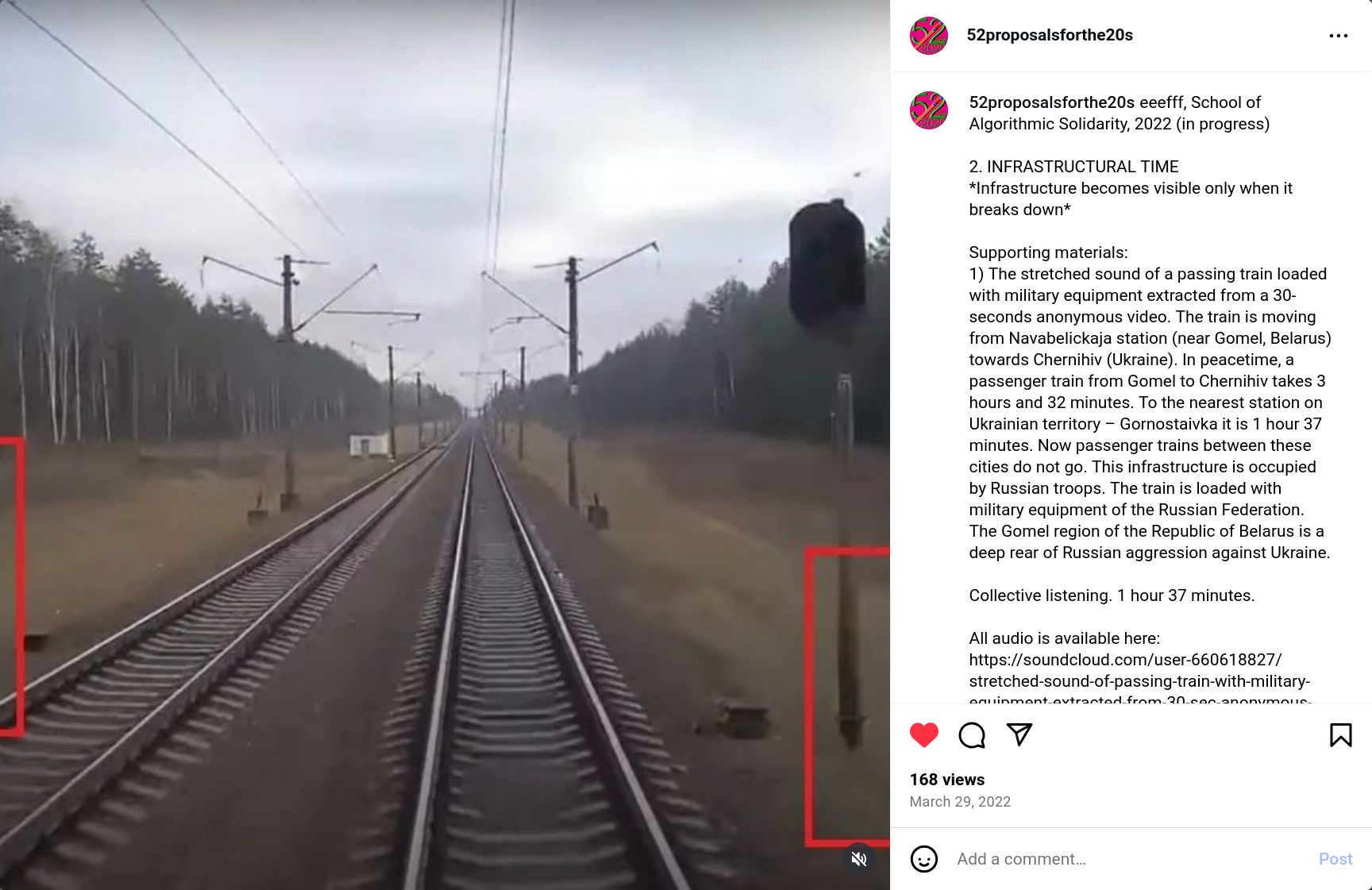
March 2022
residency
online by Maria Lind
Throughout 2022, as in 2020 and 2021, curator Maria Lind invites 52 artists to inhabit this account and make weekly proposals for the 2020s.
Next Cloud
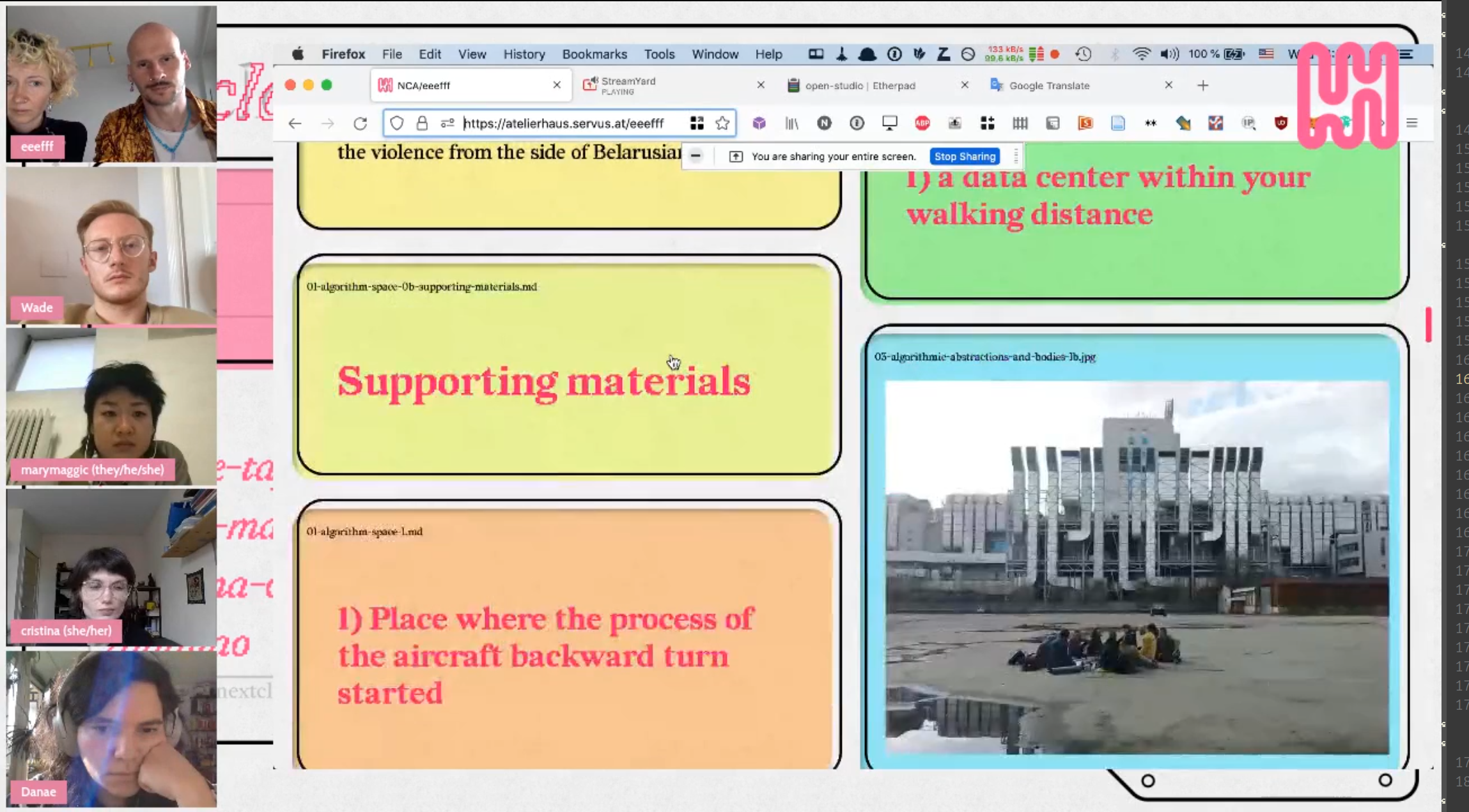
March 2022
Online Residency
With the last UPDATE of our next cloud instance we transformed the “Next Cloud Residency” folder into something wider: an ENTIRE ATELIERHAUS.
Next Cloud Atelierhaus is a one-month online residencies program hosted in the servus.at cloud, in which 5 invited artists will have access to our infrastructure to create a project and engage and collaborate with each other. The participants are invited to use all the tools in the cloud instance, which is a content collaboration platform build around the idea of cooperating with the others: it allows communication channels such as chats and video conference, and it has specific tools to organize group workflows.
From the Residency to the Atelierhaus
Throughout 2021 we have been organizing the “Next Cloud Residency”, consisting of an online folder in our self-hosted cloud, that every month was given to one artist. They could upload new content, or modify and delete what was already there, and thereby engage with each other’s work with an open source and creative commons spirit.
Within The Next Cloud Atelierhaus, servus.at aims at creating a short-term digital institution whose role is to enrich online residencies through online means - fostering digital art and supporting its needs. As a curatorial experiment of self-made institution, the project investigates what can be the role of the Atelierhaus – or the studio house – in the online spaces.
During the residency we will have weekly meetings, studio visits with guests, hangs out activities and a final open studio presentation.
Participating Artists:
Residency (as members of Work Hard! Play Hard! working group together with Olia Sosnovskaya and Aleksei Borisionok)
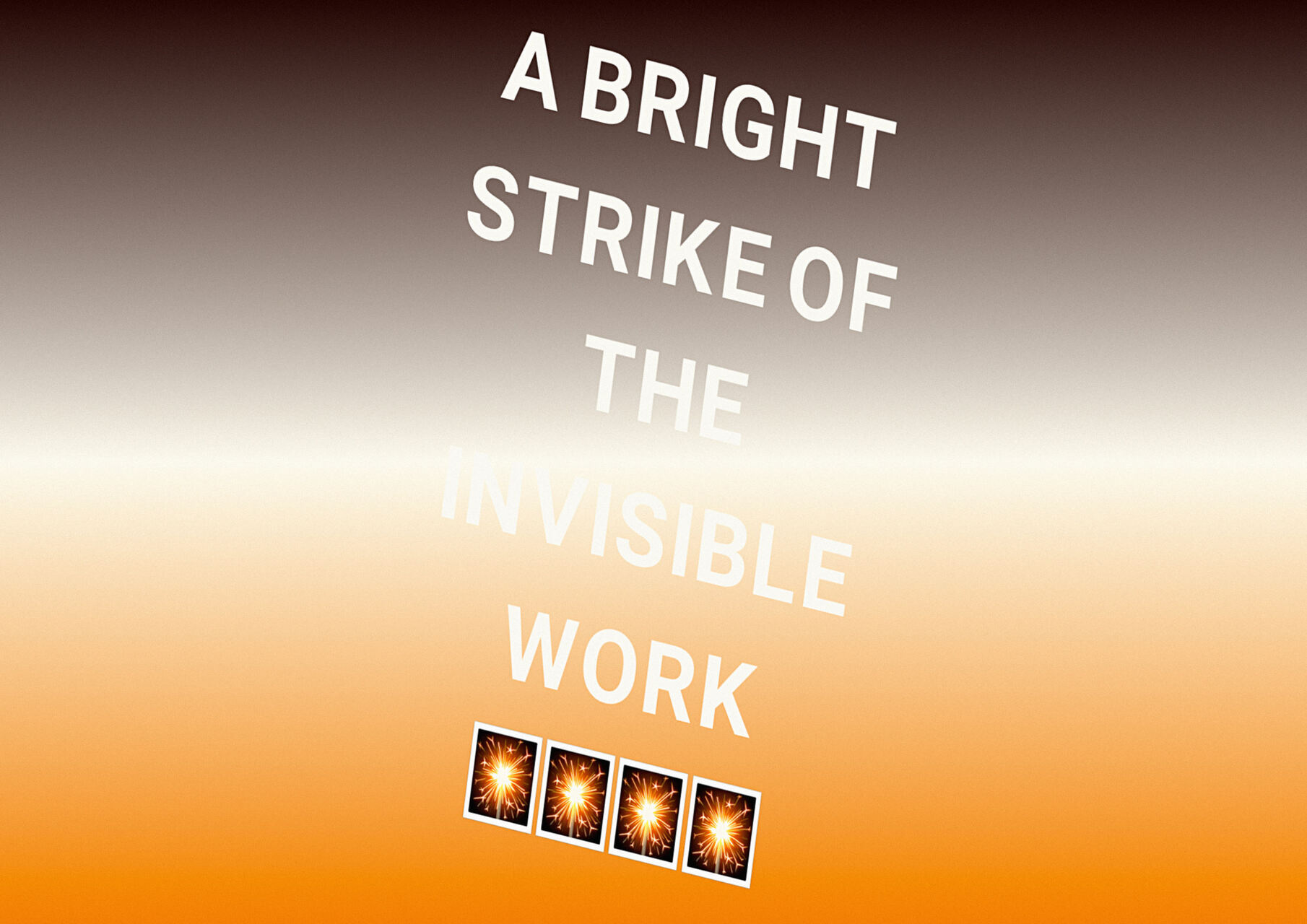
March — April 2022
participation at ZK/U residency program
ZK/U, Berlin (DE)
a network for art, activism and solidarity / 2019 - 2022
The platform CETKA (Russian for ‘net’), launched by ZK/U Berlin, is a place beyond national borders and ordinary cartography: It advocates for social change through artistic and cultural practices and forms the basis of an active civil society in the regions of Belarus, Ukraine, Russia and Germany.
CETKA takes us on a documentary journey into the independent scene in Dnipro and Kirov, highlights participatory urbanism in Vologda and artistic self-organization in North Ossetia. We discover how LGBTQI* activists in Kaliningrad and Belarusian NGOs in exile work and why garages are indispensable for artistic life in Krasnodar.
The exploration of non-formal education brings Brest on the Polish-Belarusian border and Vladivostok on the Pacific closer together. Local identity and architectural heritage play a role in both post-socialist Eisenhüttenstadt and the ancient Russian city of Yaroslavl. CETKA’s navigation works through collective themes, common challenges, and a consensual desire to transform cities for the better.
● →
Discussion during “Fast. Easy. Precarious” exhibition
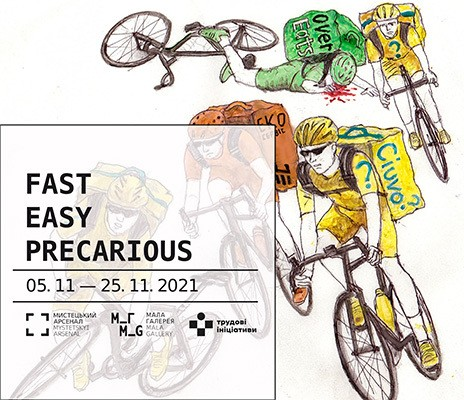
Dec 2021
City Arsenal, Kyiv (UA)
У межах виставки «Швидко. Зручно. Небезпечно» запрошуємо поговорити про час та зайнятість сьогодні та їхні трансформації в минулому та майбутньому.
Дискусія відбудеться у вівторок, 23 листопада, о 19:00.
Поки ми спостерігаємо, як праця поступово стає все більш незахищеною, нові гіг-робочі місця тягнуть за собою і всіх інших у вир непевності. Оуенівська формула розподілу робочого часу, відпочинку і сну на відрізки по вісім годин – здобуток організованої боротьби за працю в минулому – заміщується у масовій культурі на більш інтенсивну експлуатацію у форматі «996». Тим часом, ідеологія успіху, просьюмінґ та всеосяжні комунікації фактично збільшують нашу залученість у трудові процеси до 24/7. Як сповільнити час і де знайти місце для спротиву?
 Захід організовано у співпраці з Гуртком з вивчення нестабільної зайнятості.
Захід організовано у співпраці з Гуртком з вивчення нестабільної зайнятості.
Гурток з вивчення нестабільної зайнятості — неформальне активістське об’єднання, що включено вивчає прекаризацію, зміни у структурі праці сьогодні в Україні та світі, протести та організацію нестабільно зайнятих працівниць і працівників.
 Модераторка дискусії — Ольга Аношкіна.
Модераторка дискусії — Ольга Аношкіна.
Учасники(ці):
 Ілля Власюк, Гурток з вивчення нестабільної зайнятості
Ілля Власюк, Гурток з вивчення нестабільної зайнятості
 eeefff, художнє угрупування, учасники виставки
eeefff, художнє угрупування, учасники виставки
 Олексій Кучанський, культуролог,
Олексій Кучанський, культуролог,
 Олексій Громов, учасник кур’єрського руху.
Олексій Громов, учасник кур’єрського руху.
Задля дотримання безпекових норм, кількість відвідувачів обмежена (20 осіб).
 Щоб потрапити на лекцію, переконайтеся, що маєте з собою (одне на вибір):
Щоб потрапити на лекцію, переконайтеся, що маєте з собою (одне на вибір):
 паперовий або електронний сертифікат в додатку Дія про повну вакцинацію;
паперовий або електронний сертифікат в додатку Дія про повну вакцинацію;
 негативний результат ПЛР або експрес-тесту на антиген коронавірусу SARS-CoV-2 (дійсний 72 години);
негативний результат ПЛР або експрес-тесту на антиген коронавірусу SARS-CoV-2 (дійсний 72 години);
 довідка про одужання в додатку Дія.
довідка про одужання в додатку Дія.
Правила дійсні для осіб віком від 18 років.
 Виставка «Швидко. Зручно. Небезпечно» реалізована за підтримки Центру Солідарності та ГО «Трудові ініціативи».
Виставка «Швидко. Зручно. Небезпечно» реалізована за підтримки Центру Солідарності та ГО «Трудові ініціативи».
Platform Perplex
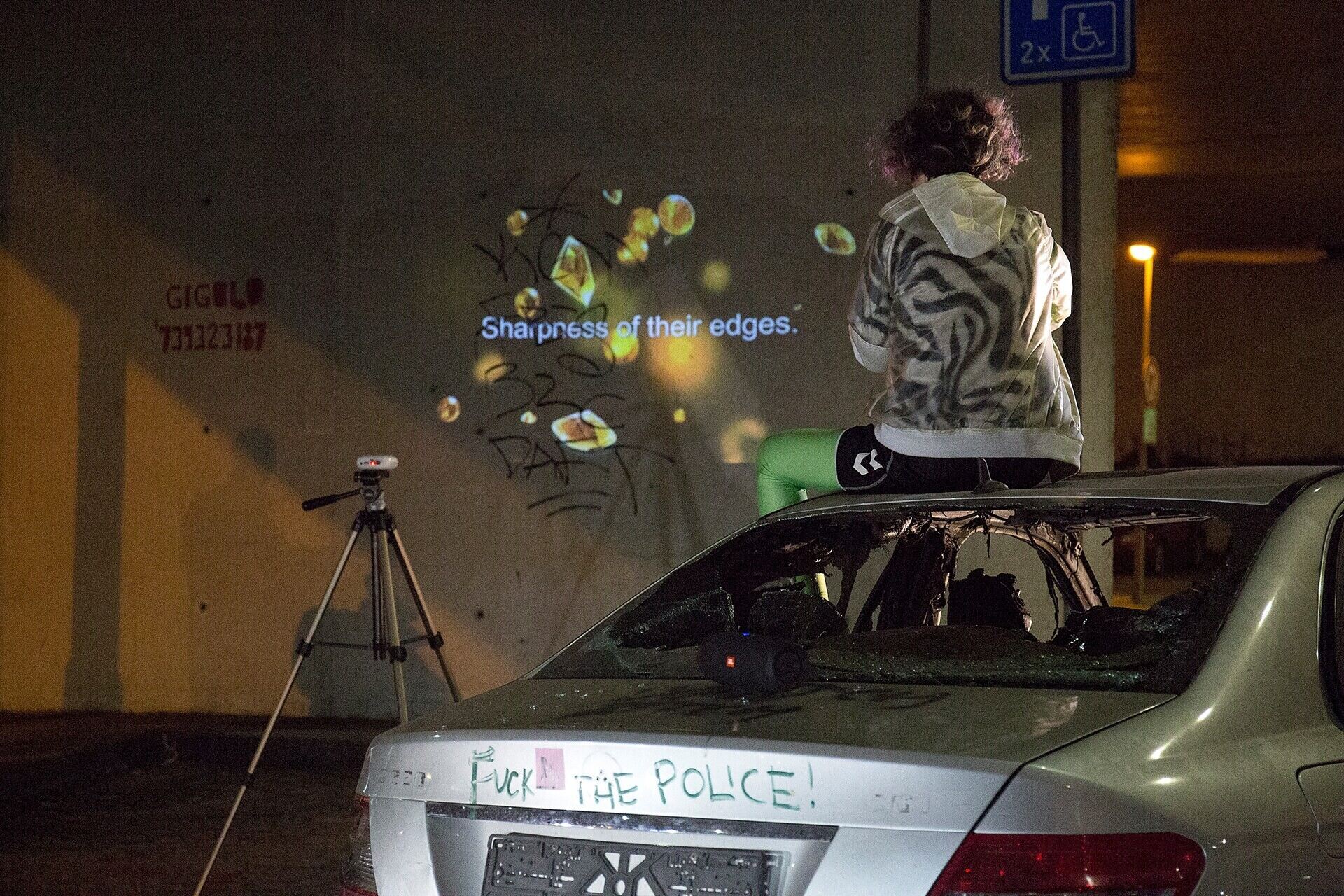
Nov — Dec 2021
City Arsenal, Kyiv (UA)
video @ Fast. Easy. Precarious exhibition
On November 5, the Laboratory of Contemporary Art “Mala Gallery of Mystetskyi Arsenal” opens with a new exhibition “Fast. Easy. Dangerously”.
Modern life is increasingly associated with the use of digital platforms and mobile applications to order services, find housing, work or a partner, taxi service or food delivery. The platforms offer users simplicity, flexibility and efficiency— in one click you can place an order or find a customer, choose a service or number of working hours, work and consume of your choice. However, very often the convenient interface of digital platform hides the schemes of labour operation and the lack of security guarantees for both customers and employees, and the freedom promised by them in practice is dictated by the algorithm.
The spread of the platform, or so-called gig economy, is today perhaps the most threatening global trend in the labour market. Gig economy destroys the established structures of labour relations using the model of fictitious self-employment, based on digital platforms. This implies the most precarious conditions: lack of health insurance, social guarantees and permanent employment, payment for work performed, operation of employees’ own equipment, use of algorithms to coordinate and monitor their actions.
Exhibition “Fast. Easy. Precarious” explores the phenomenon of the gig economy through the analysis of experiences of interaction and cooperation with various digital platforms and understanding the state of precariousness— unprotected and unstable work. By complementing artistic expressions with public program activities, the project aims to create a field for dialogue and solidarity between participants, researchers, activists and spectators.
Participants: Valeria Zubatenko, Borys Kashapov, Nikita Kravtsov, Anna Sorokovaya, Iryna Stasiuk, David Chichkan, eeefff group, SOSka group.
Curator — Hanna Tsyba.
The exhibition is supported by the Solidarity Center and the NGO “Labour Initiatives”.
Economic Orangery
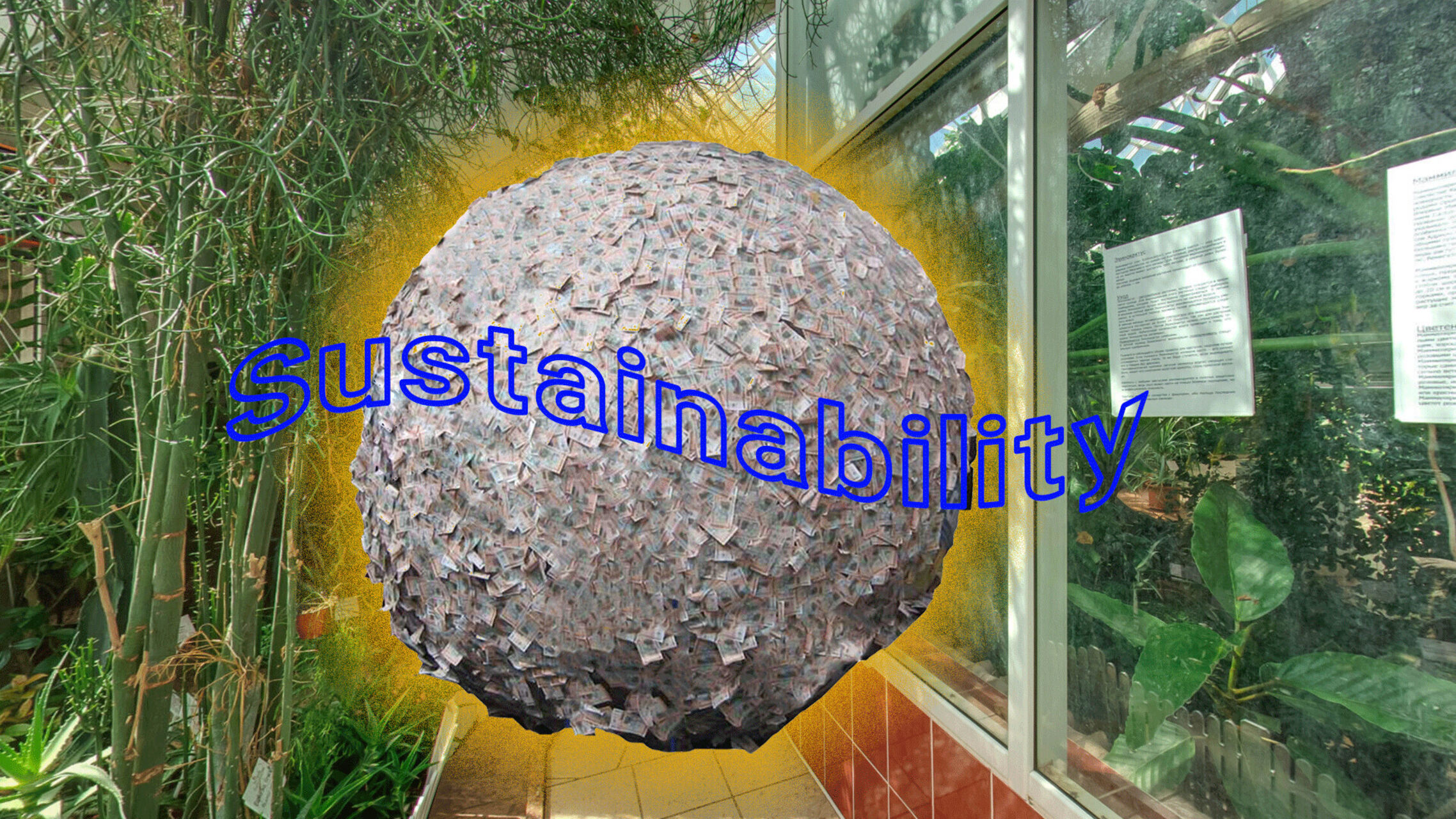
July 2021
Kiel (DE)
Talk @ Futur 3 Festival
the role of urban and digital spaces in protest (experience of Belarus and Ukraine)
Dec 2021
City Arsenal, Kyiv (UA)
Talk in the frame of the exhibition “Every Day. Art. Solidarity. Resistance”
Glitch
Oct — Nov 2021
Château du Feÿ (FR)
3 weeks long residency
Self-residency. As members of Work Hard! Play Hard! working group together with Olia Sosnovskaya and Aleksei Borisionok /
Oct 2021
Kyiv (UA)
self-organised 10 days long residency
Outsourcing Paradise
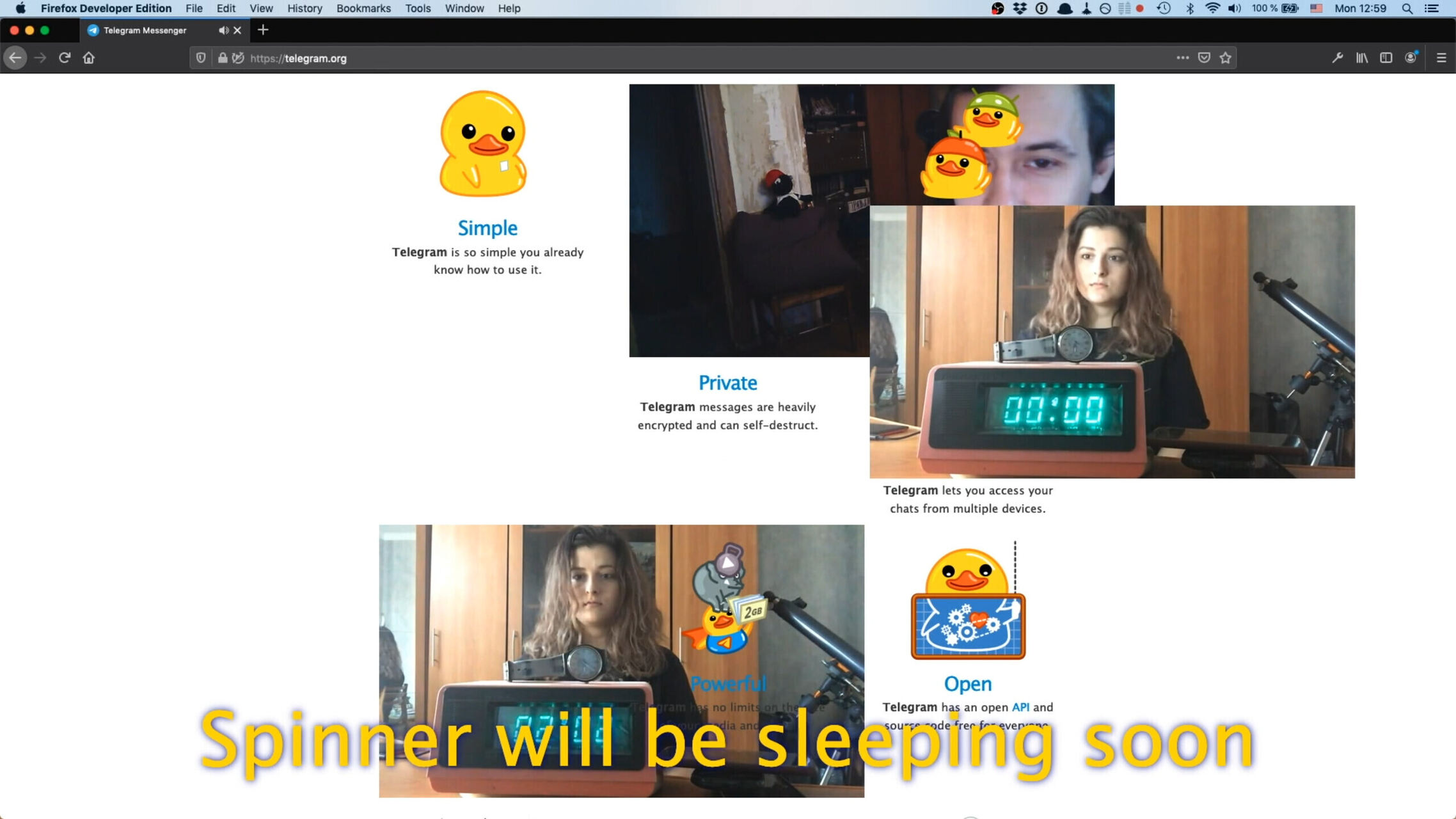
Jul 2021 — Feb 2022
City Arsenal, Kyiv (UA)
video in the environment @ Every Day. Art. Solidarity. Resistance
residency
Aug 2021
Anapa (RU)
in frame of League of Tenders
Algorithmic aided lovers
August 2021
Goethe Institut, Online
Workshop during the Summer School Cultural Management in the Digital Age
Tactical Forgetting

July 2021
Garage MCA, Moscow (RU)
Performative Lecture @ Conference “Museum as research hub”
All you need now is in pinned messages
July 2021
Montag Modus / online
Essay @ “Ecology of Attention”
Economic orangery 2021 or How to occupy production of economic abstraction / / 2021
June 2021
Moscow Art Magazine / print and online
Essay
art production during uprising
April 2021
Yale University (USA)
Lecture @ “Back to Belarus: The State of Art & Protest Today” conference
Residency
Jan — Jul 2021
Moscow (RU)
Outsourcing Paradise

Dec 2020
Haus der Statistik, Berlin (DE), 2020
video in the environment @ SILENT WORKS. Berliner Gazette Winter School
Care During a Crisis
Oct 2020
a talk in frame of online lecture hall
Museum of Future
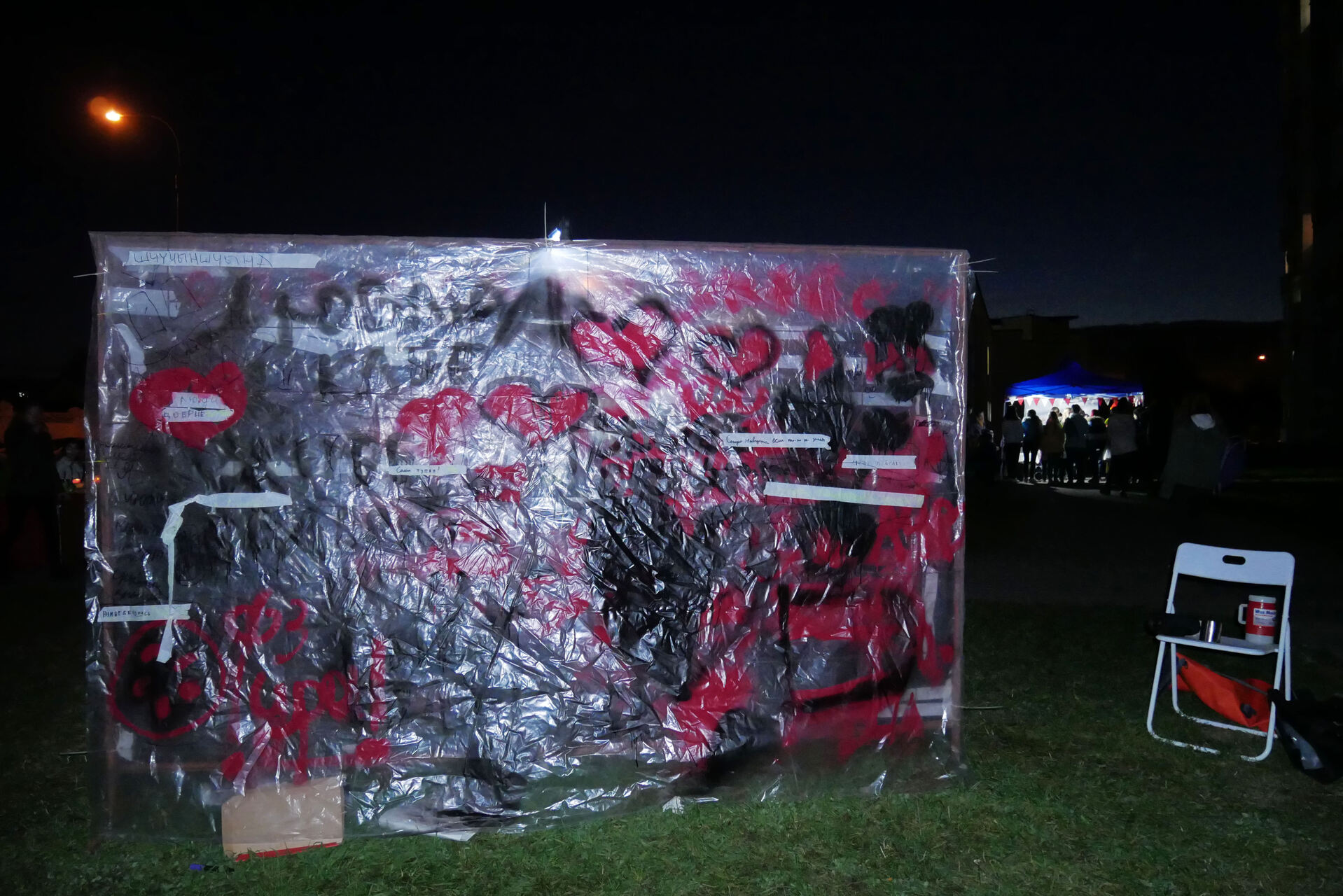
Sep — Nov 2020
Minsk (BY)
street actions during uprising in Belarus
Reenactment of Affect
Aug 2020
Anapa (RU)
action during League of Tenders
Belarus: “Tomorrow should not be the same as today”
Oct 2020
Stockholm (SE) & Online
a talk during A Careful Strike exhibition
Work Hard! Play Hard! Test! Test! Test!
July 2020
online and various places
TBA Lockdown edition
Outsourcing Paradise

May — July 2020
online @ RTV Magazine
visual narrative in RTV Magazine
laboratory
Feb 2020
London (UK)
in frame of DAOWO Global Initiative
Lazy Simulator (as part of (non)work group)
Jan 2020
online @ Status Project
compilation of diverse exercises
Lazy Simulator
Jan 2020
Konstepidemin, Gotheborg (SE)
Performative workshops and installation @ STATUS — Artistic Practice and Social Change
“Who will get tired faster, you or the algorithms?”
Jan 2020
Gotheborg (SE)
Training session @ Status Project (BY / SE) & Ångpannegatans Processer (SE)